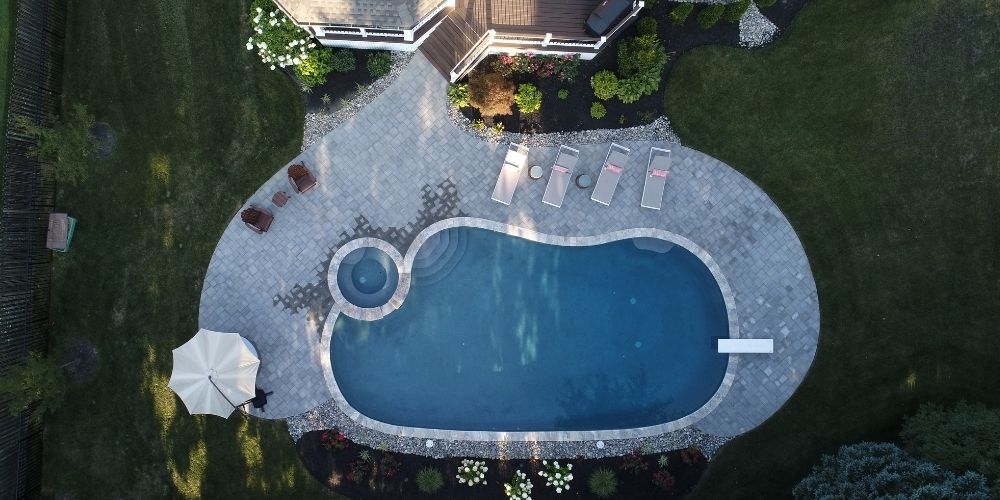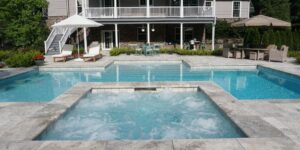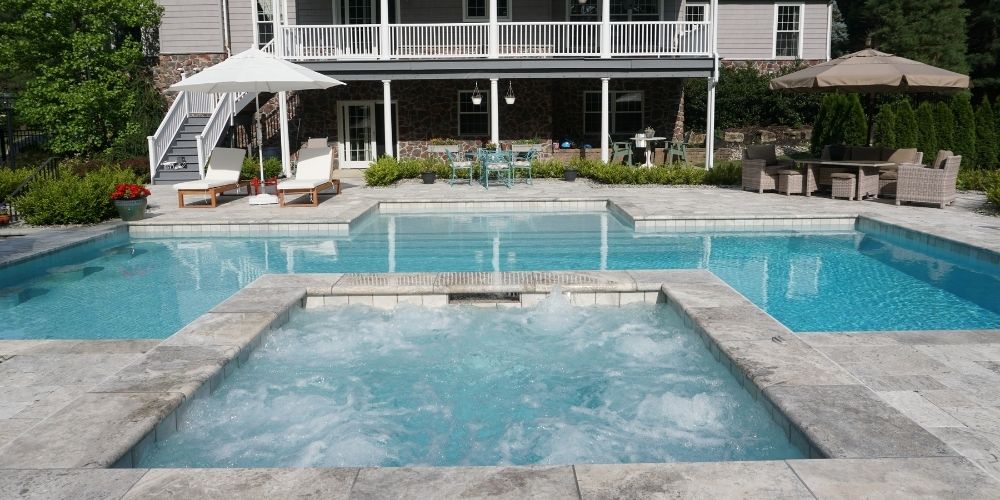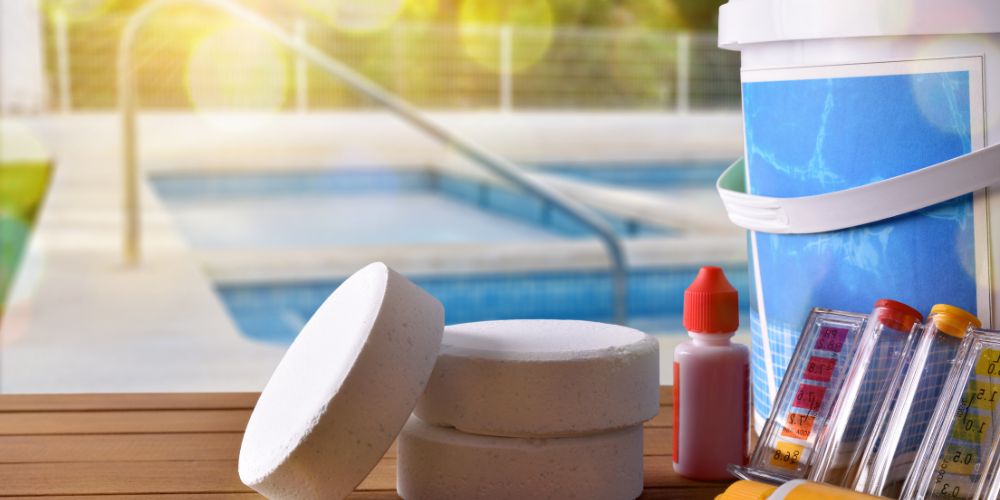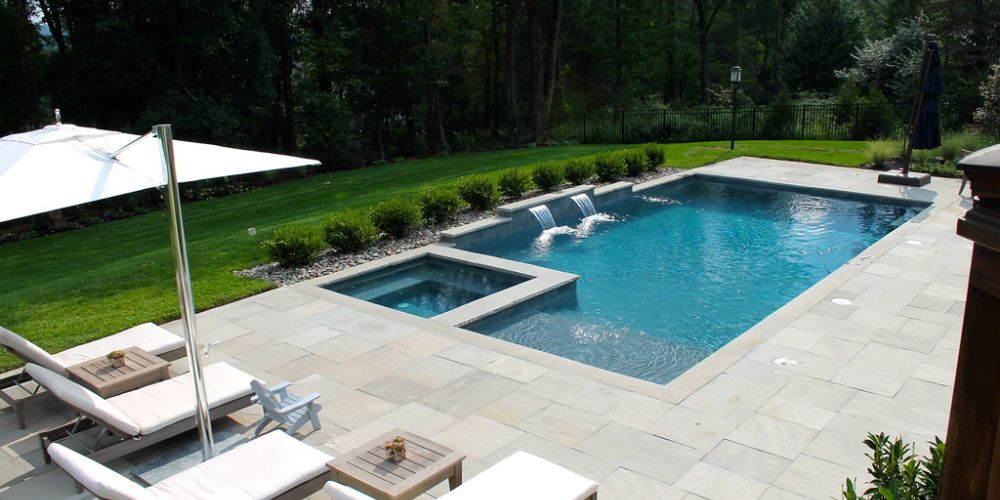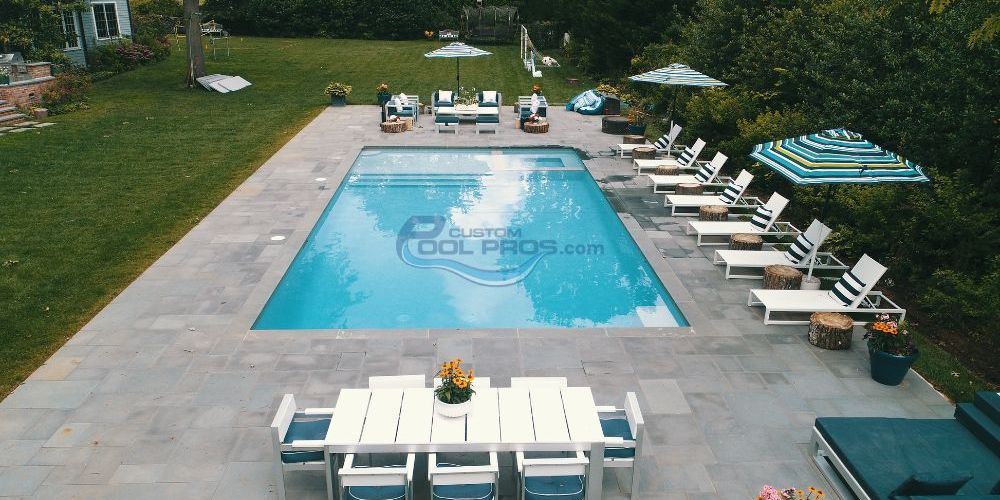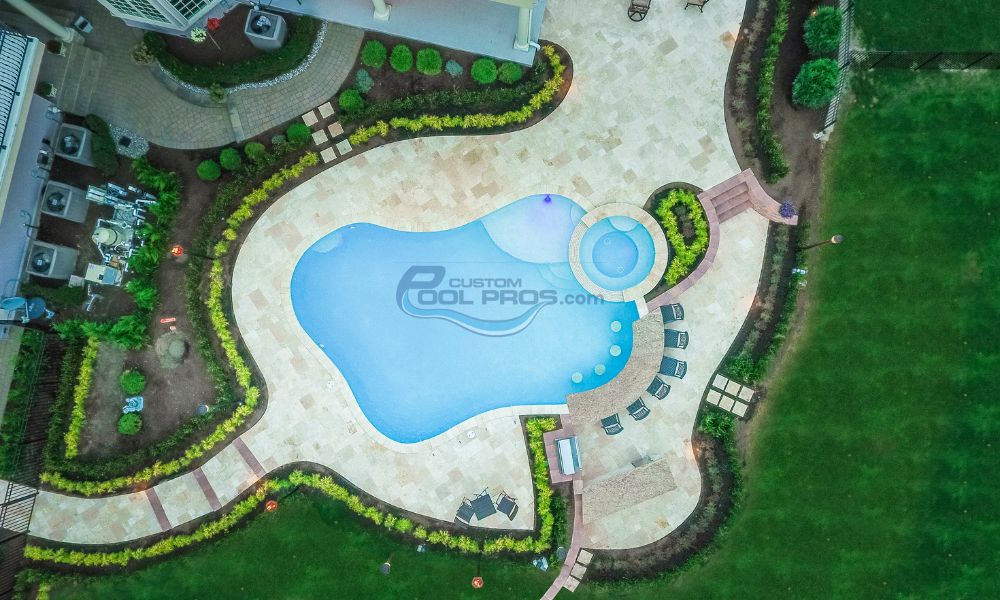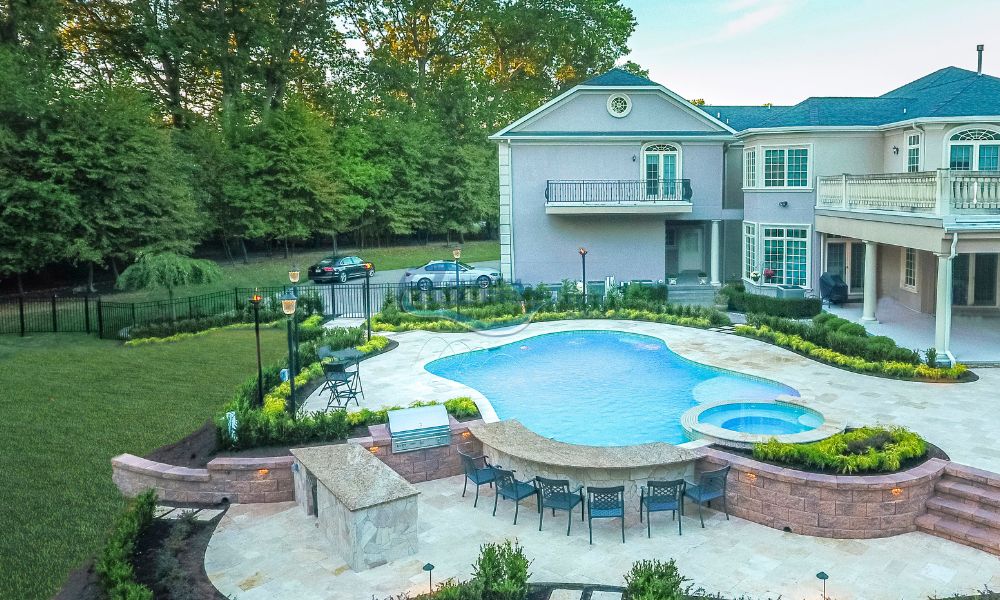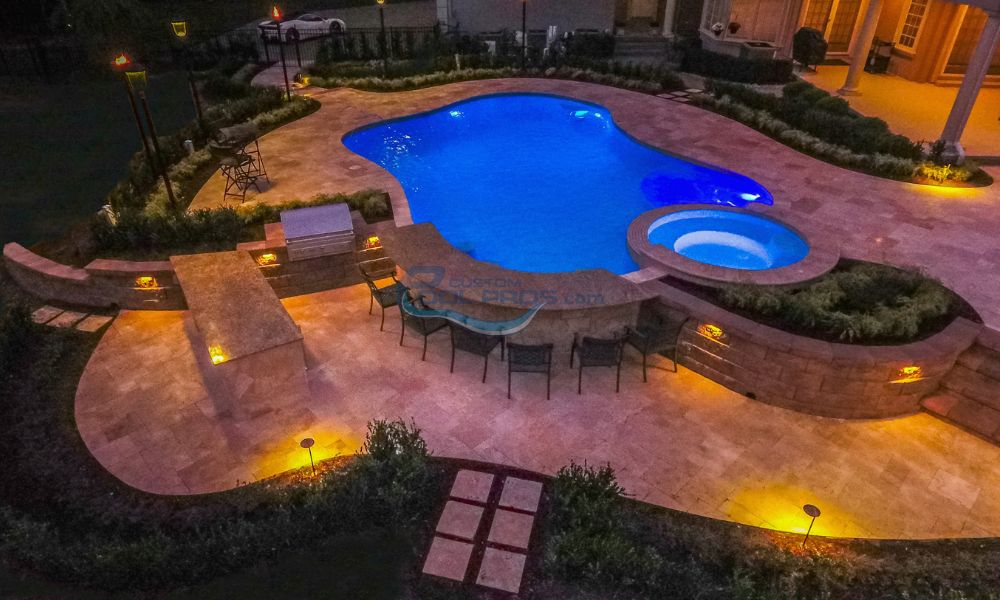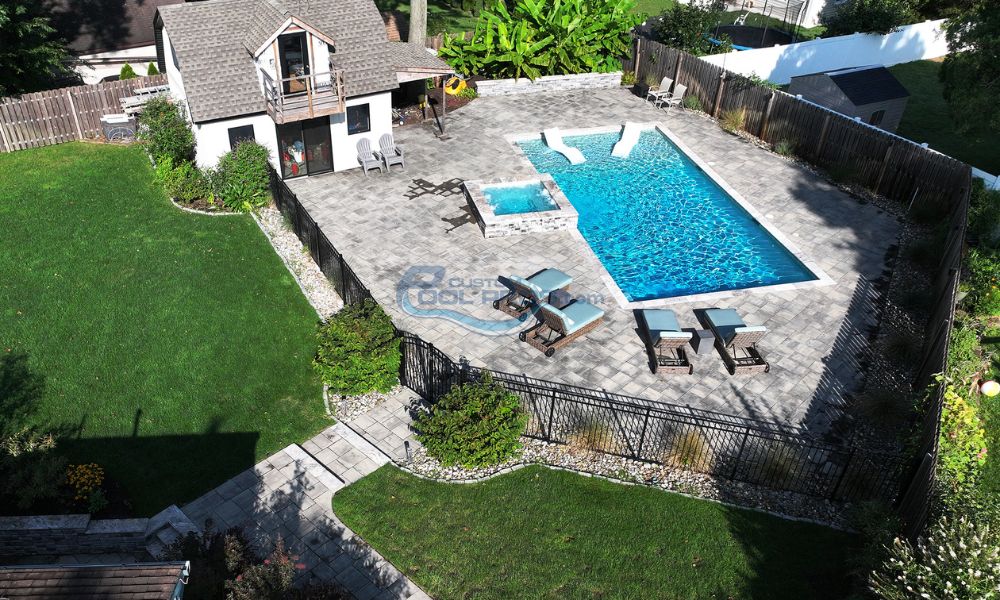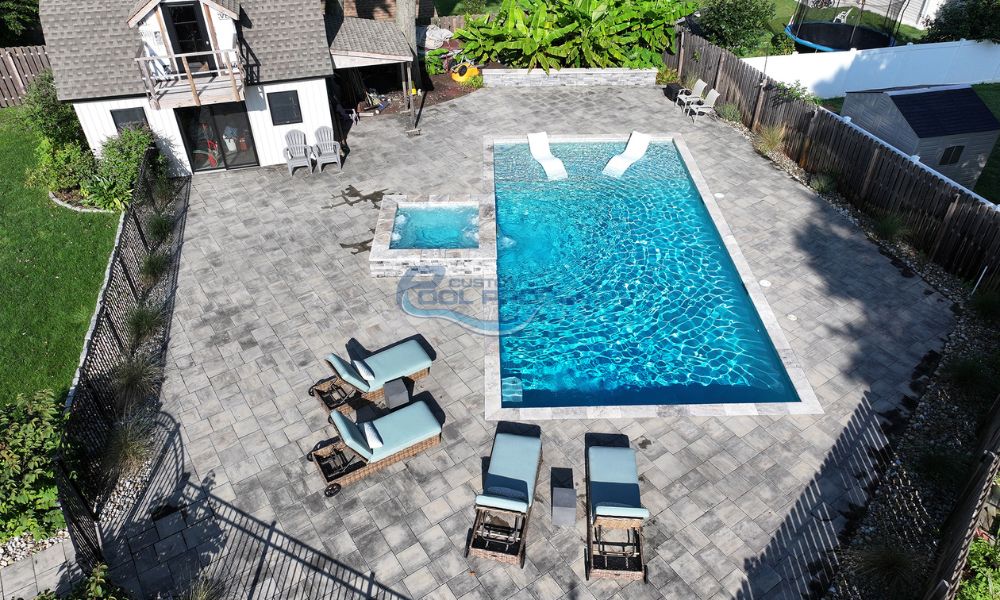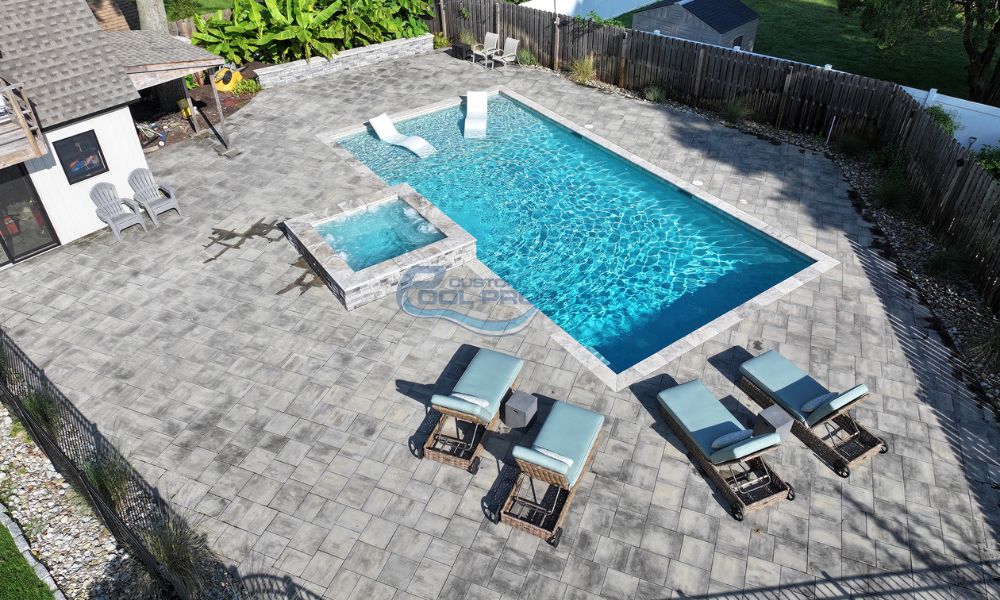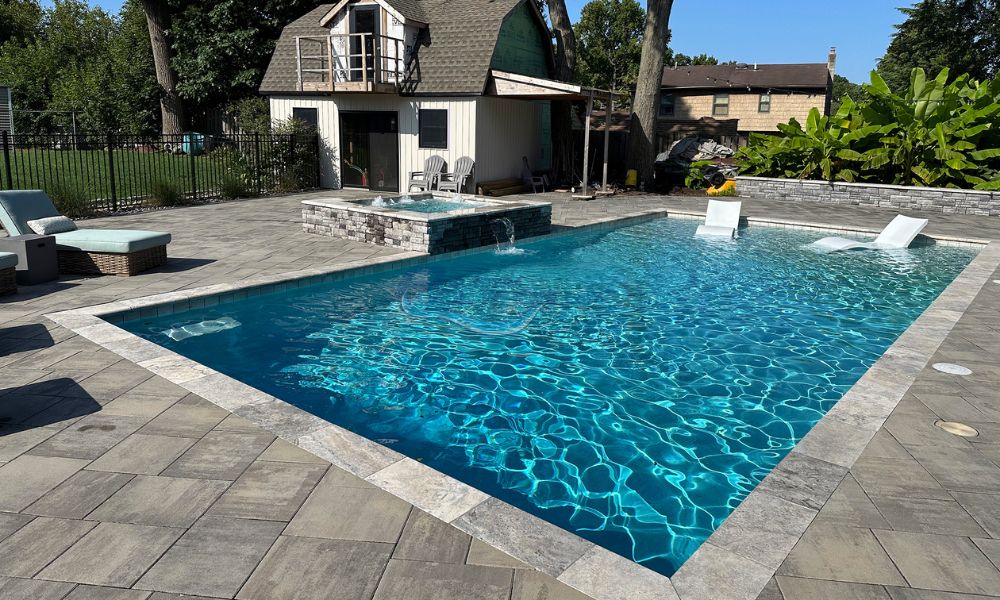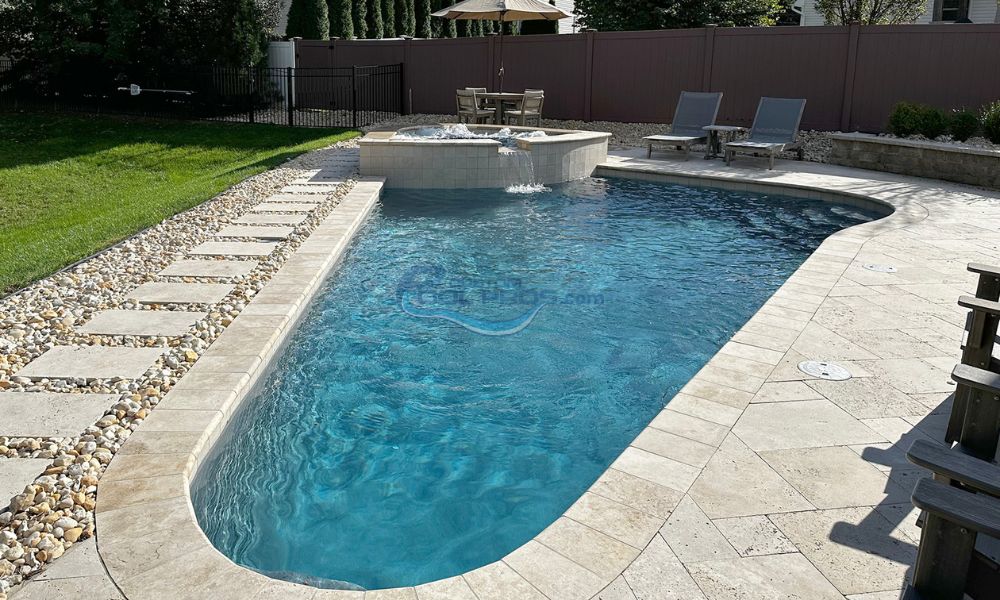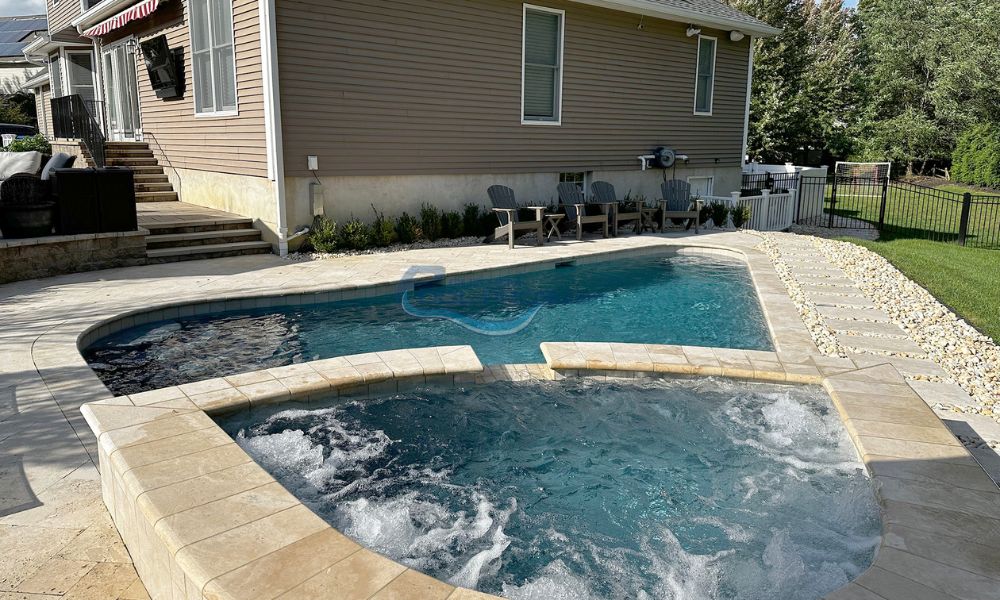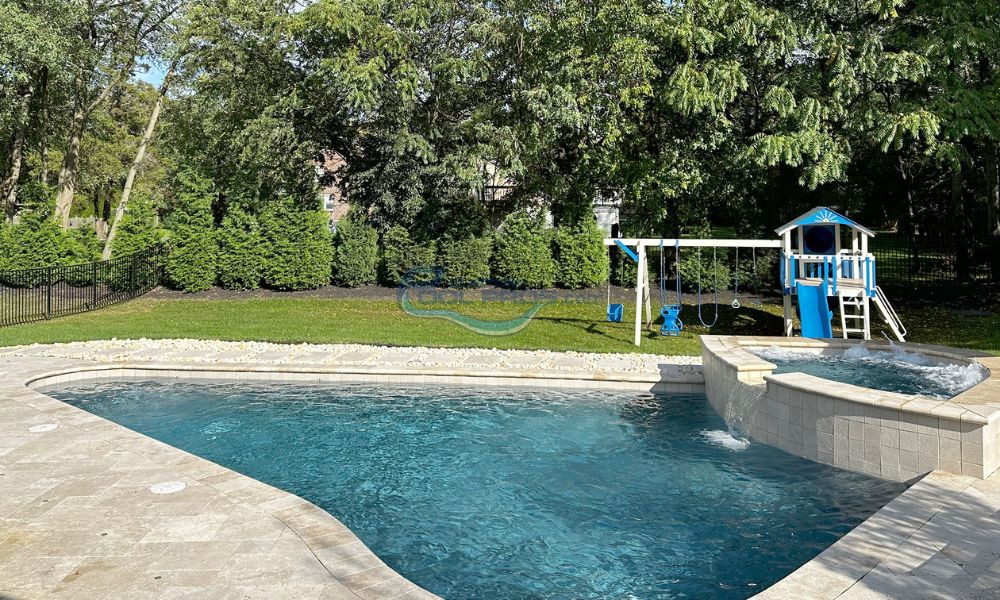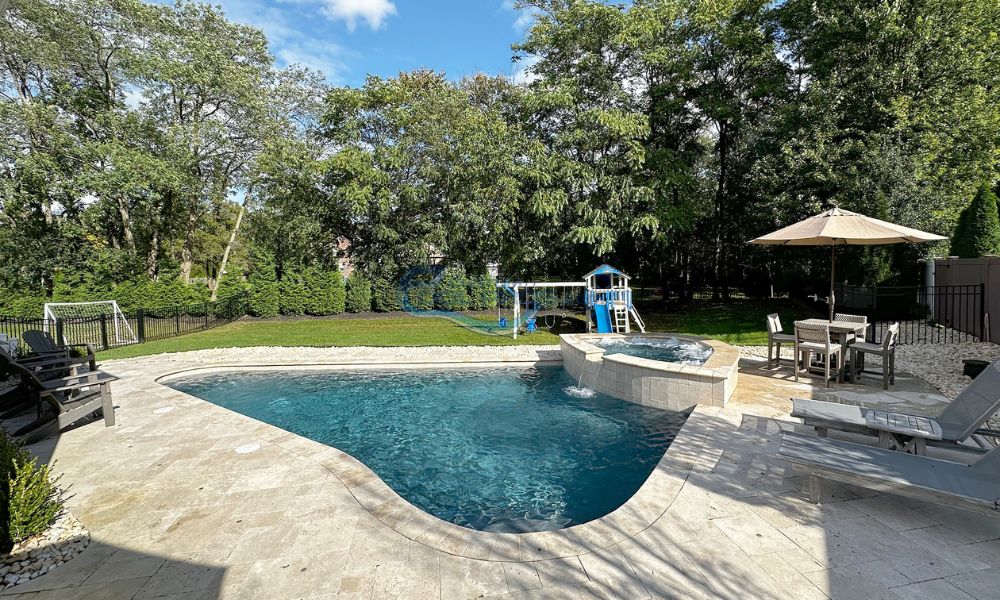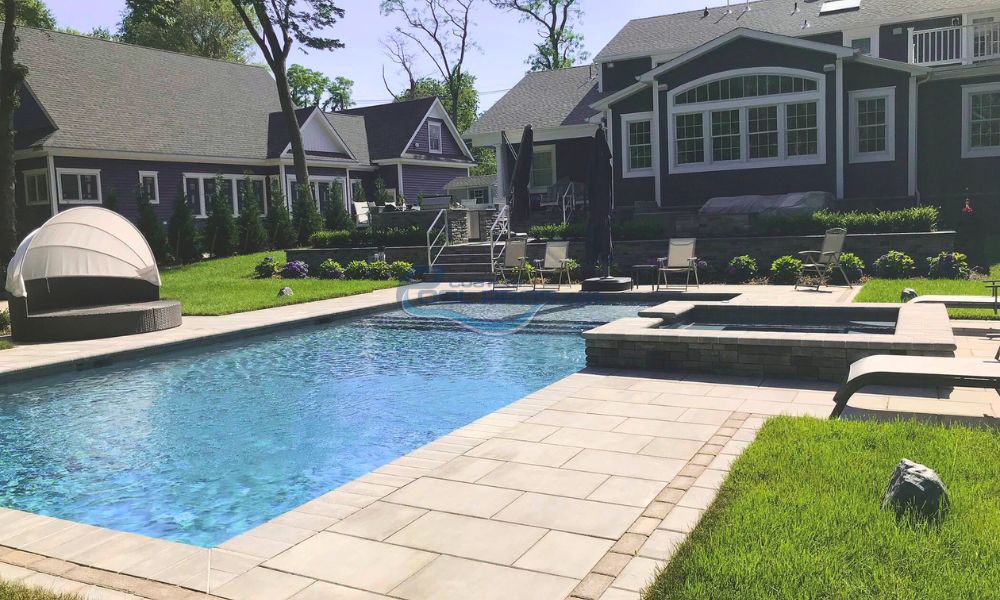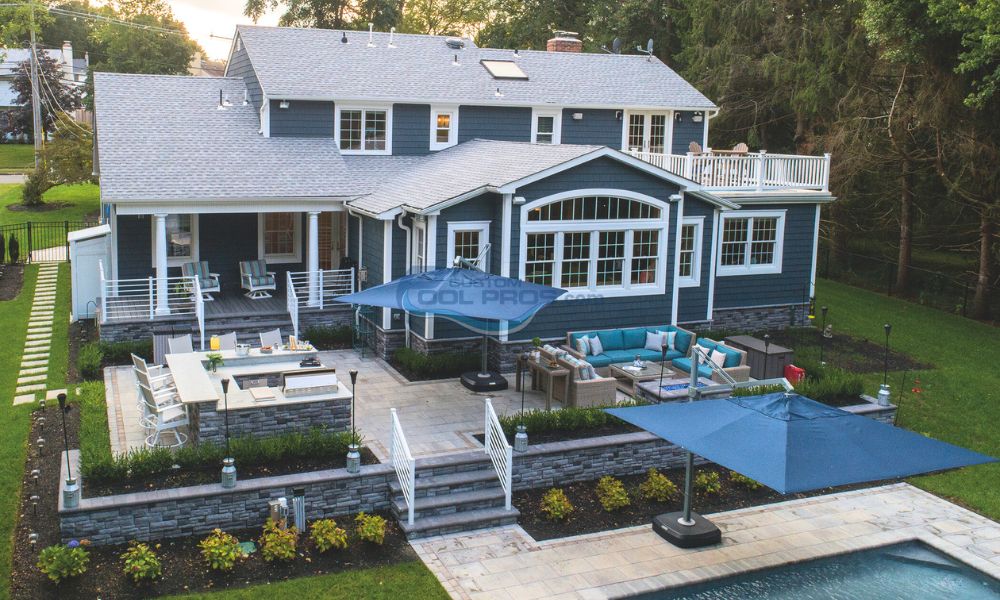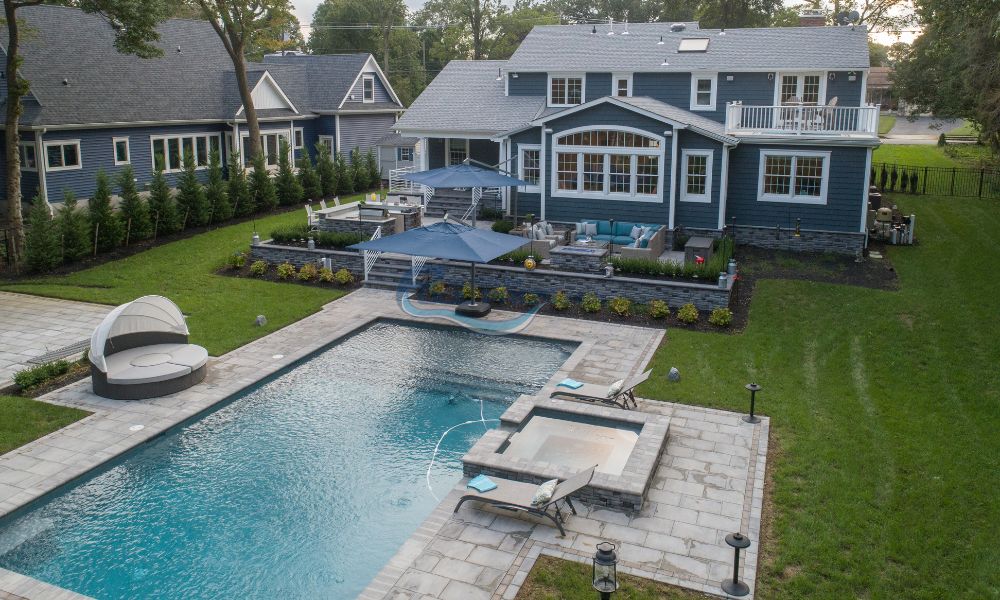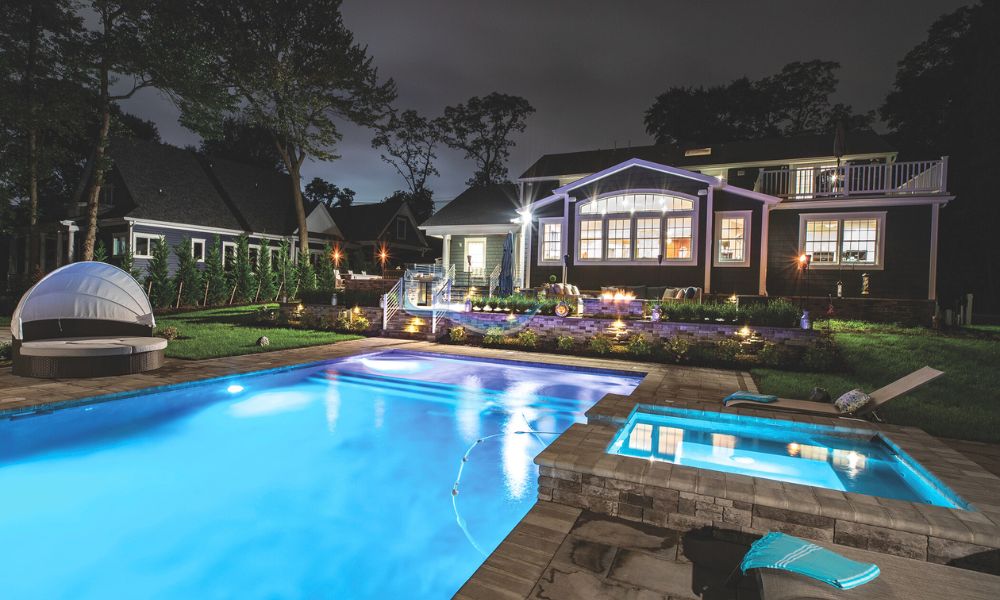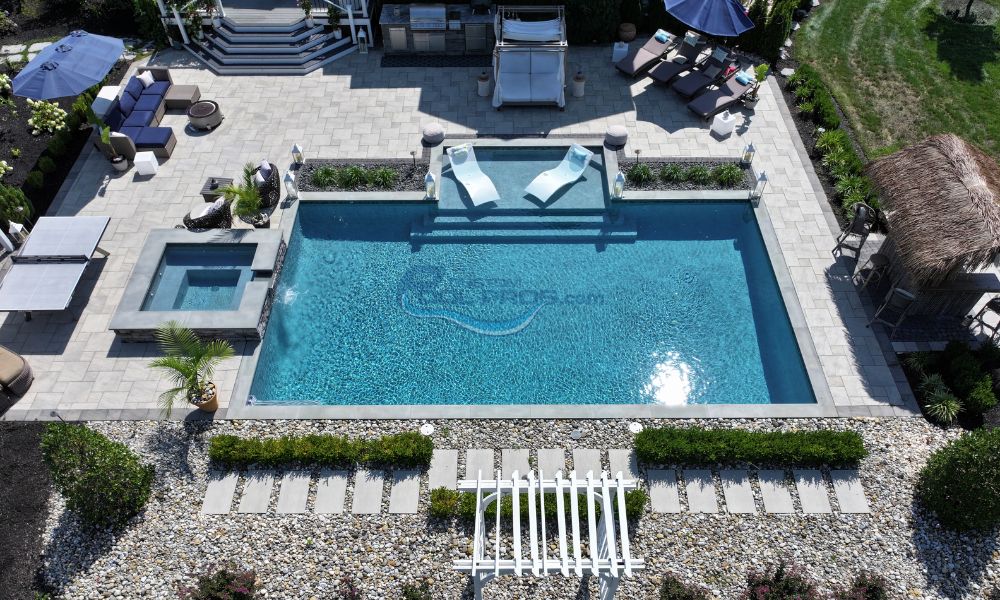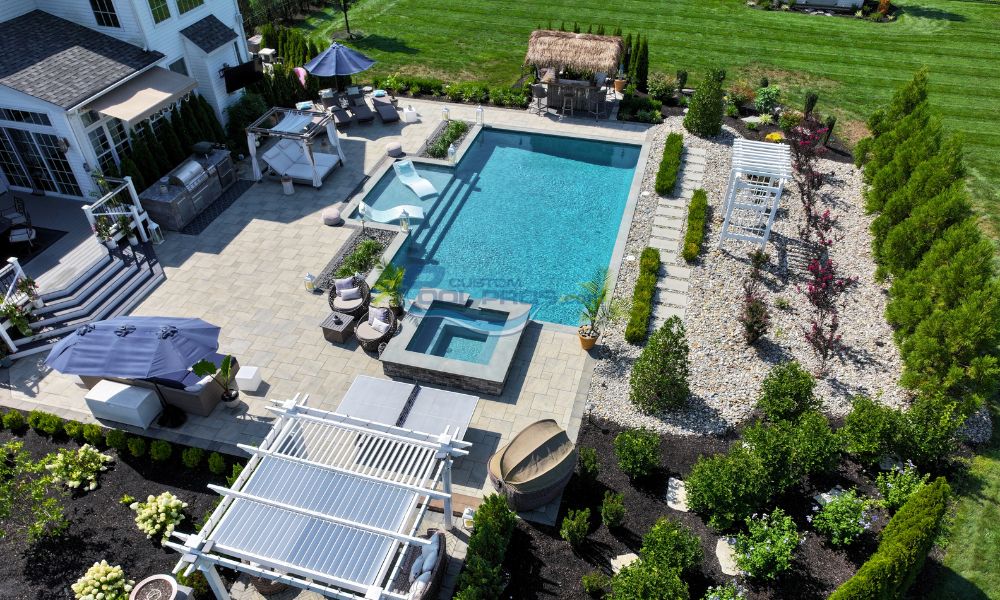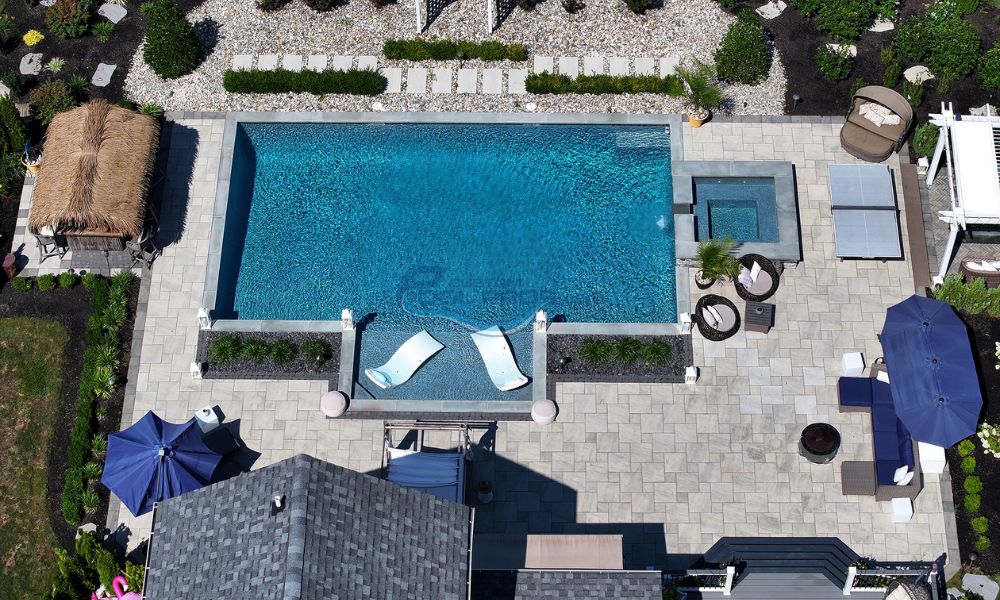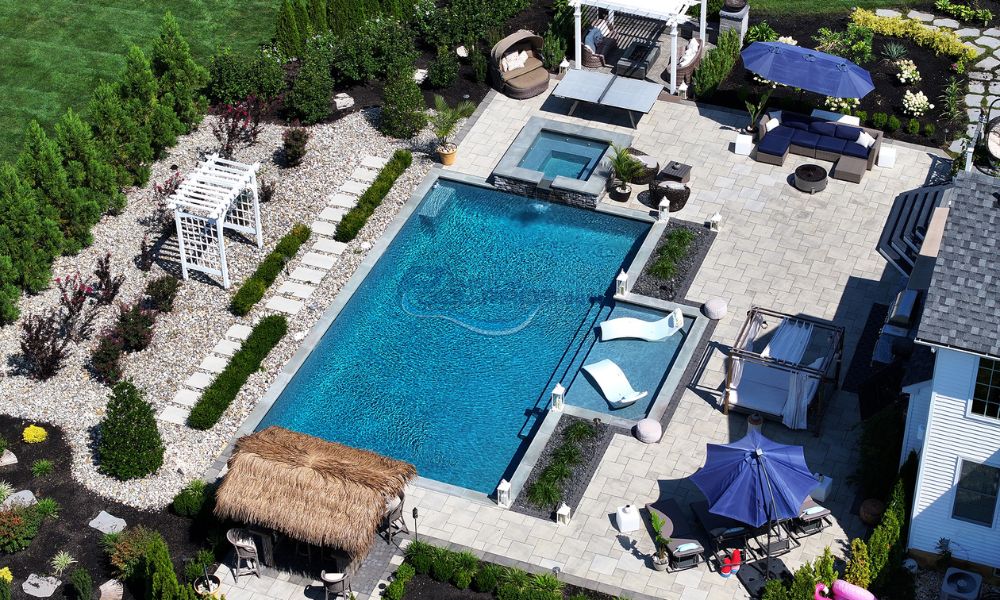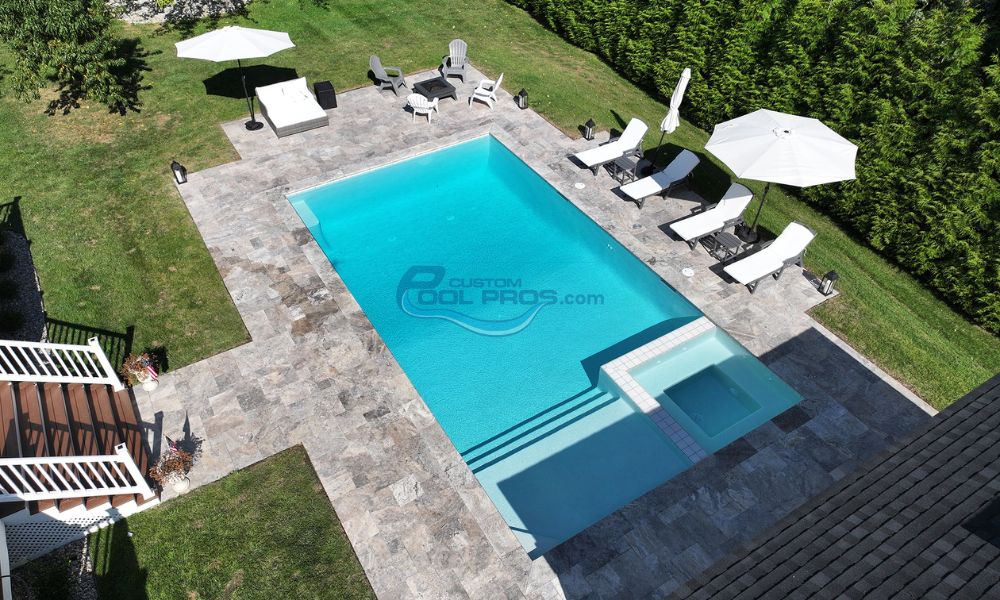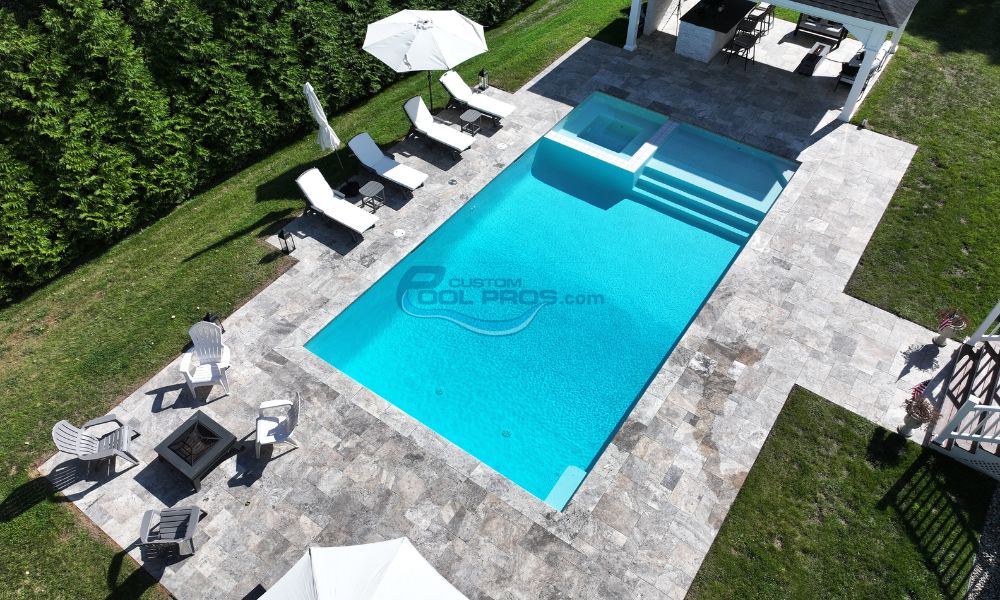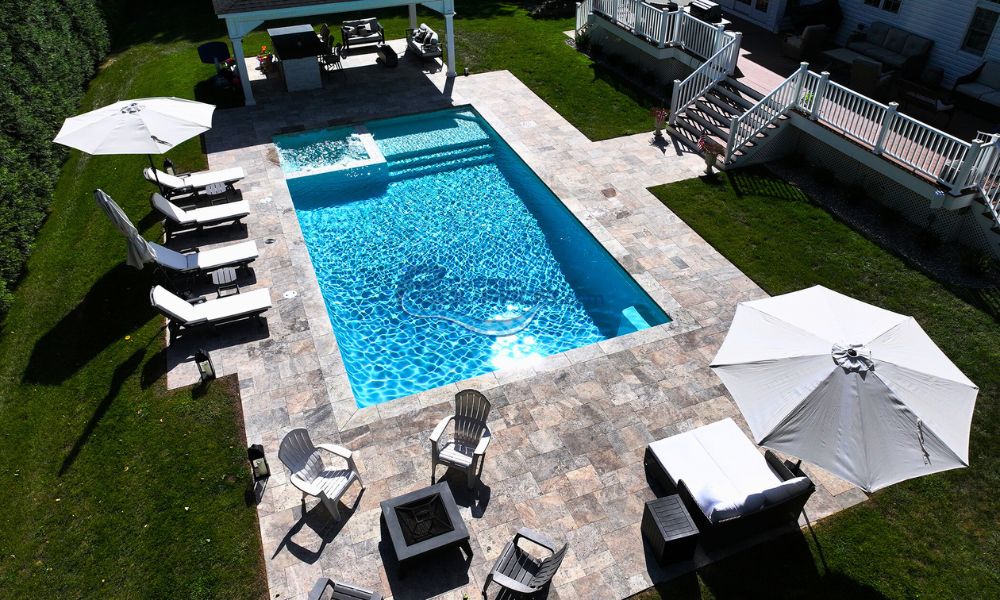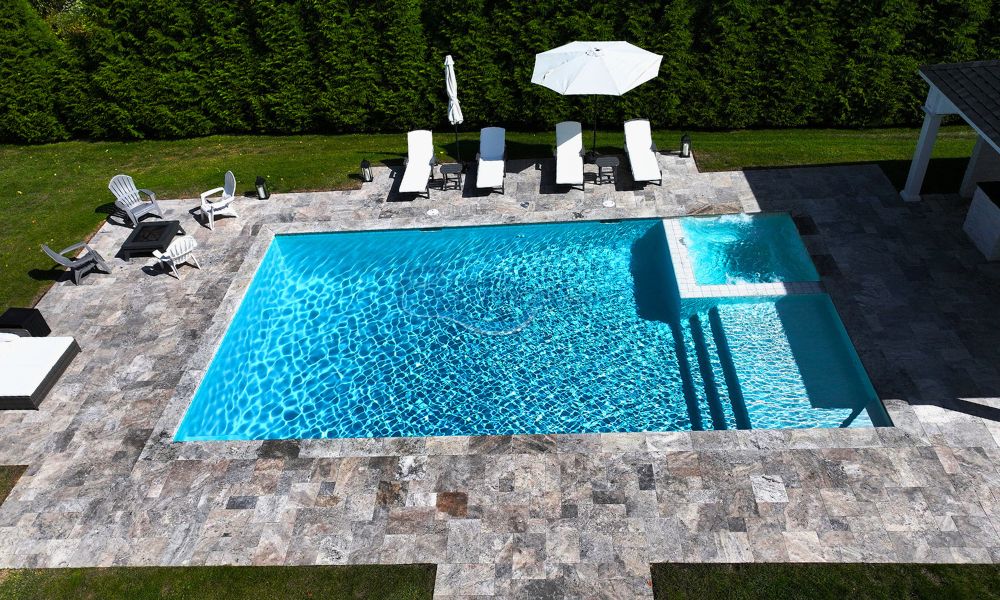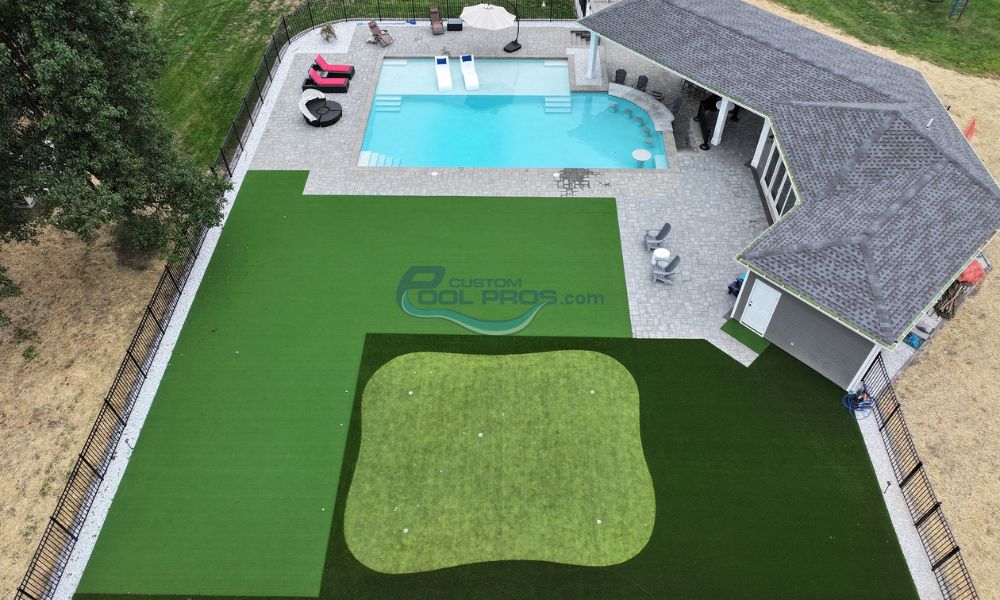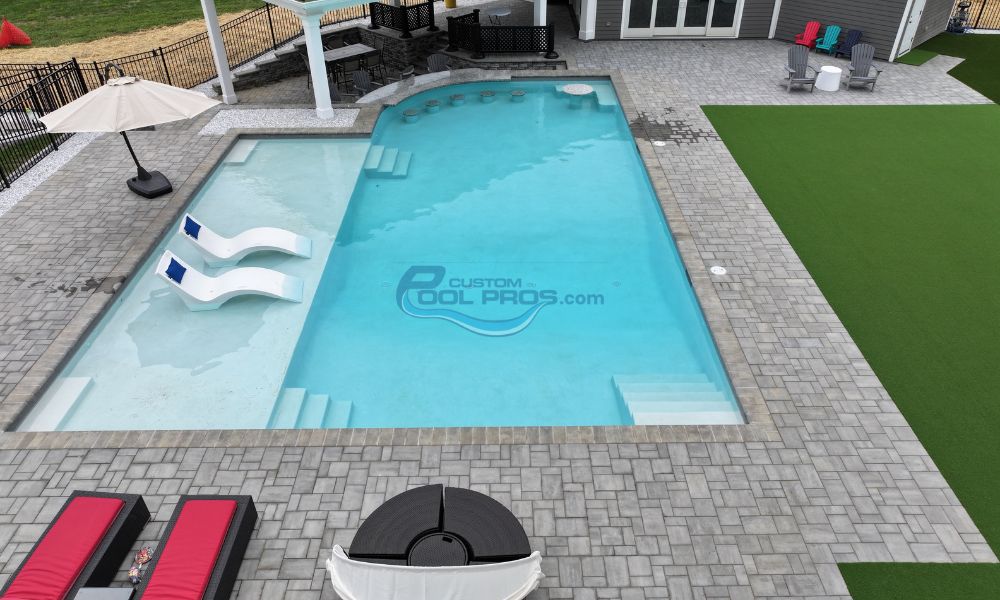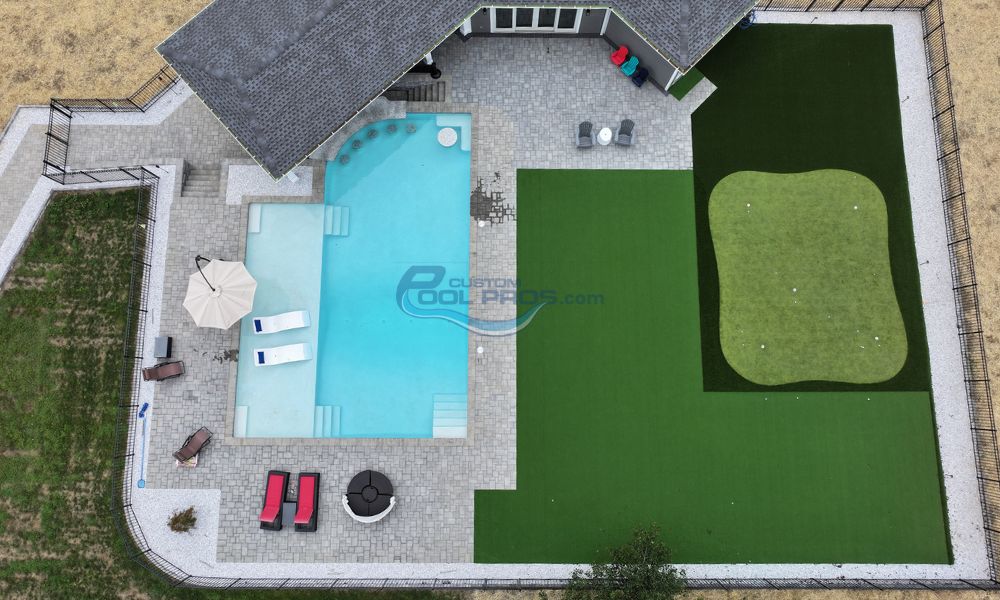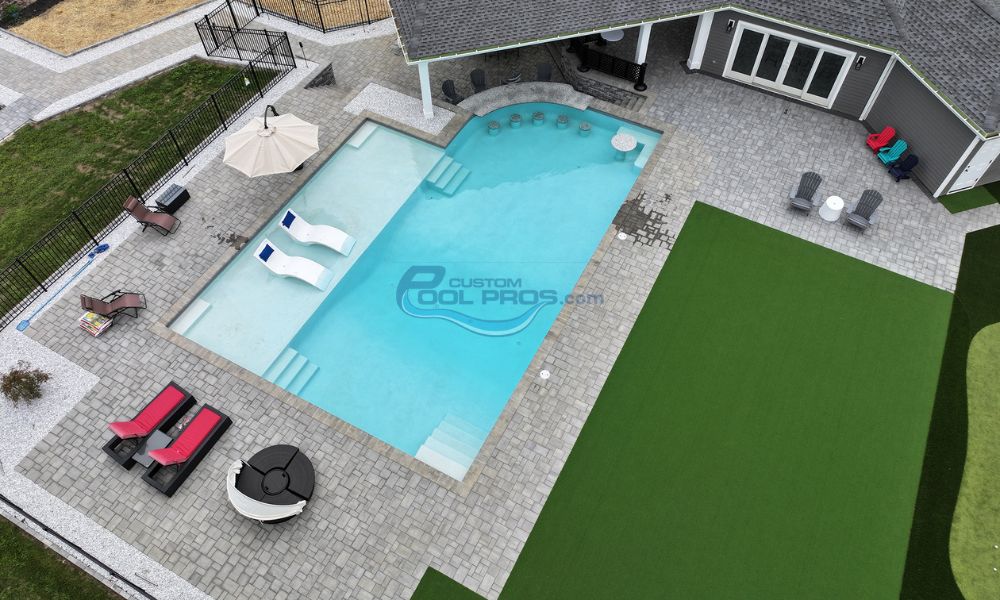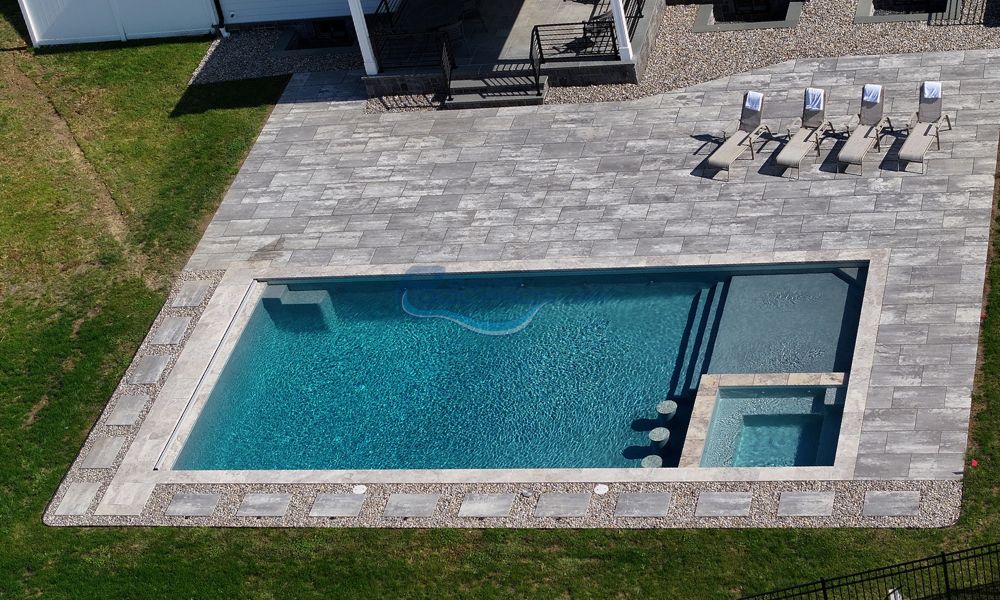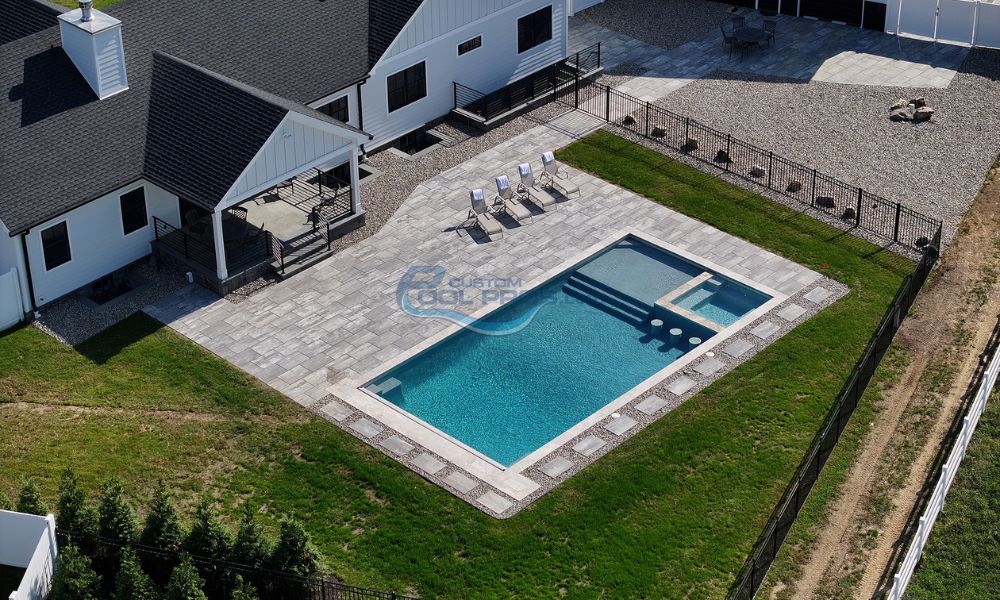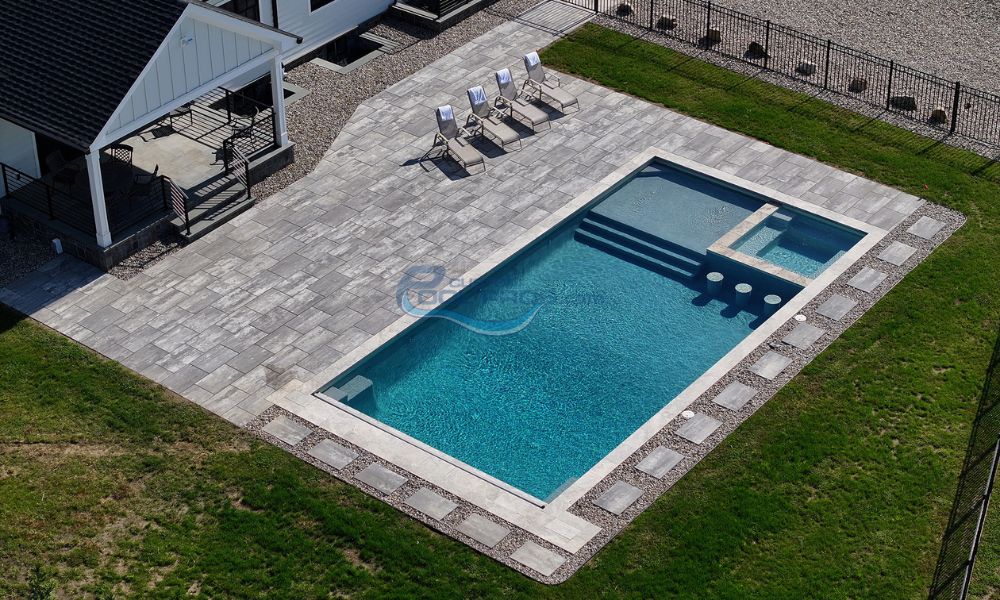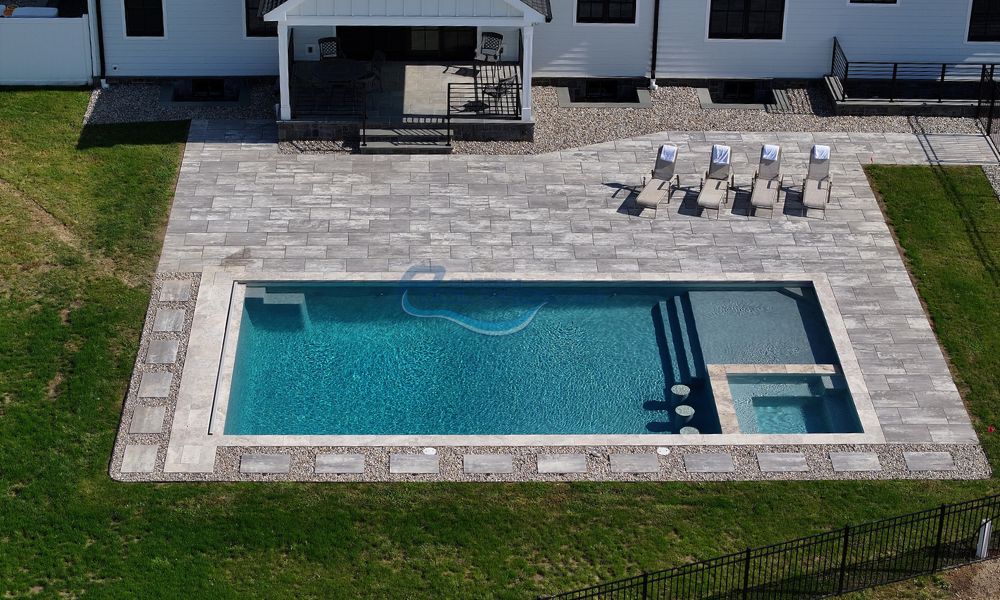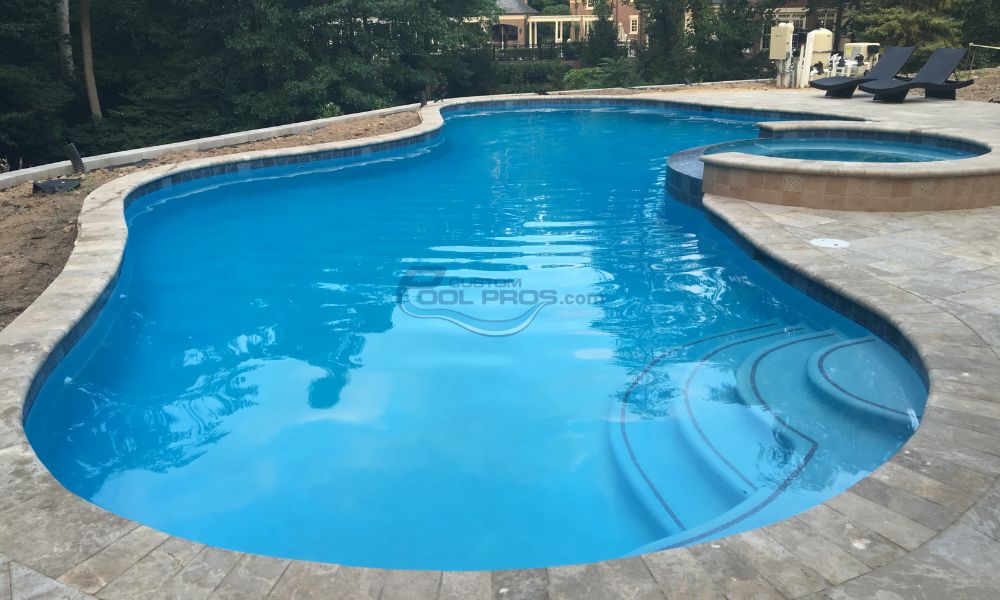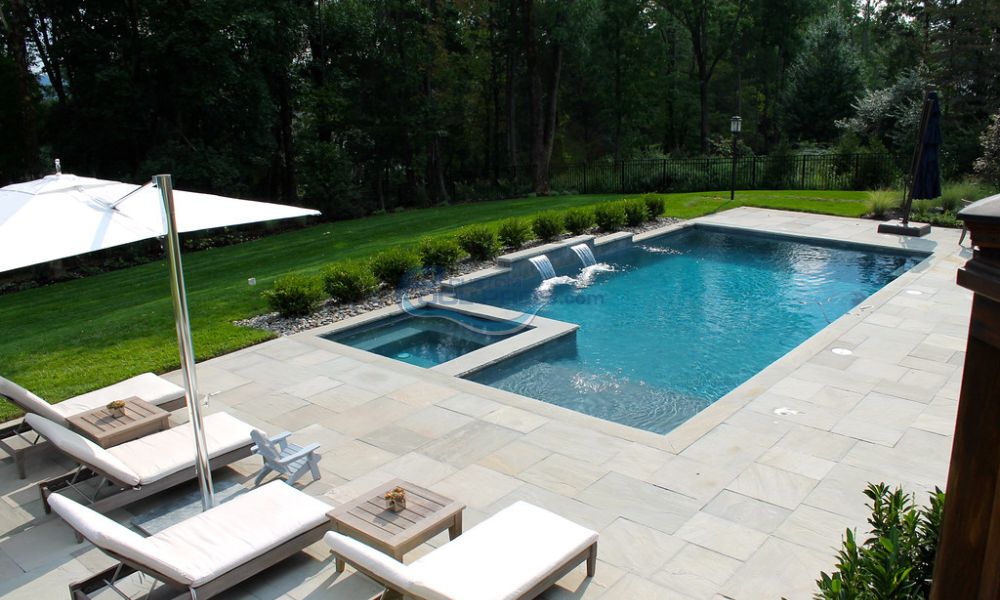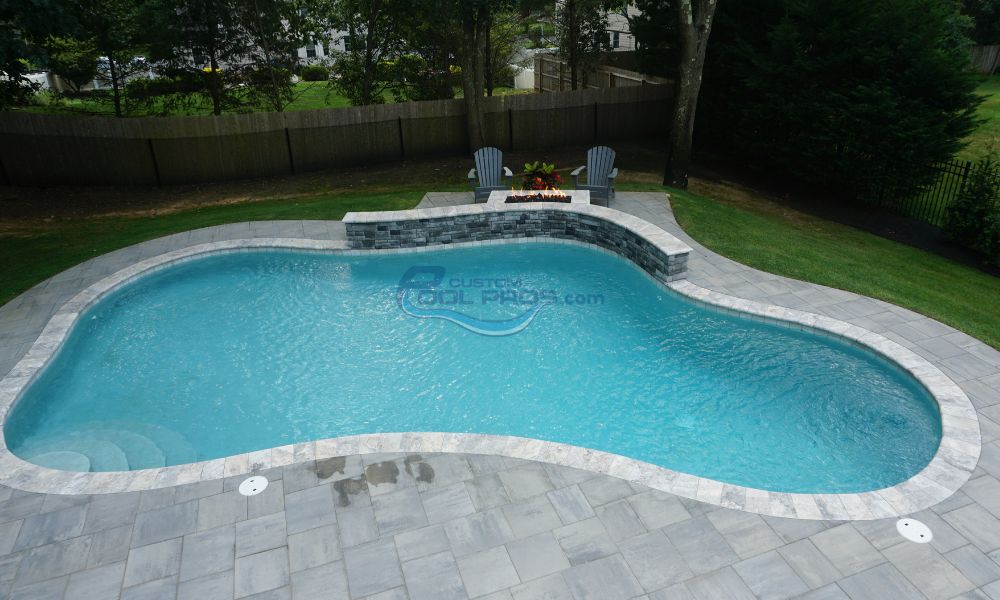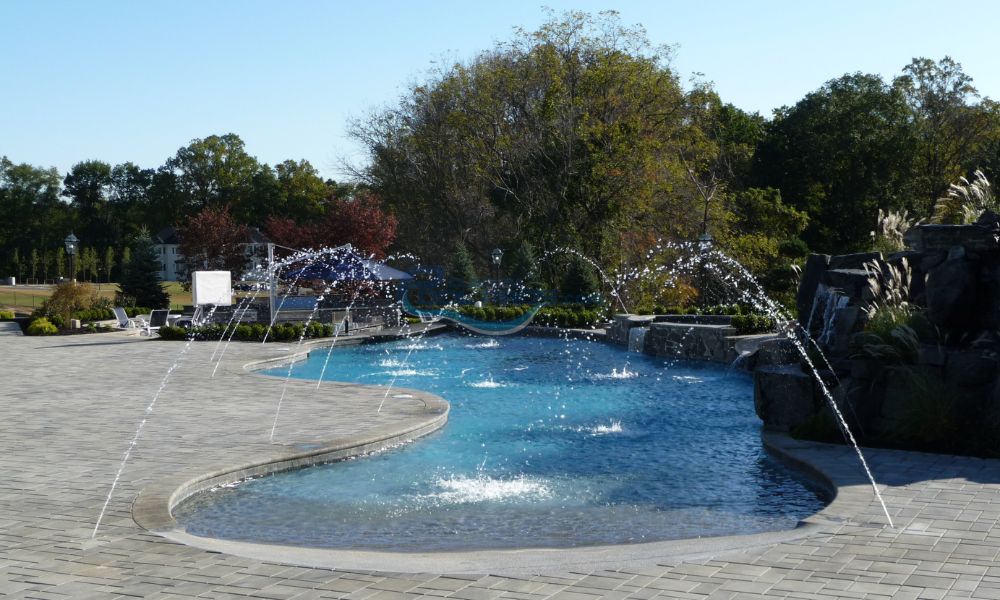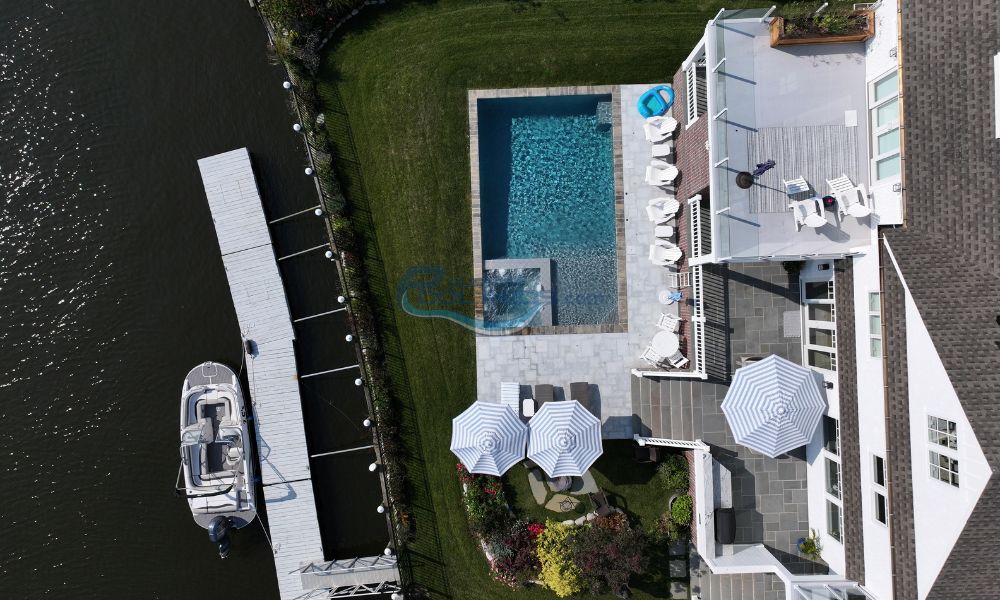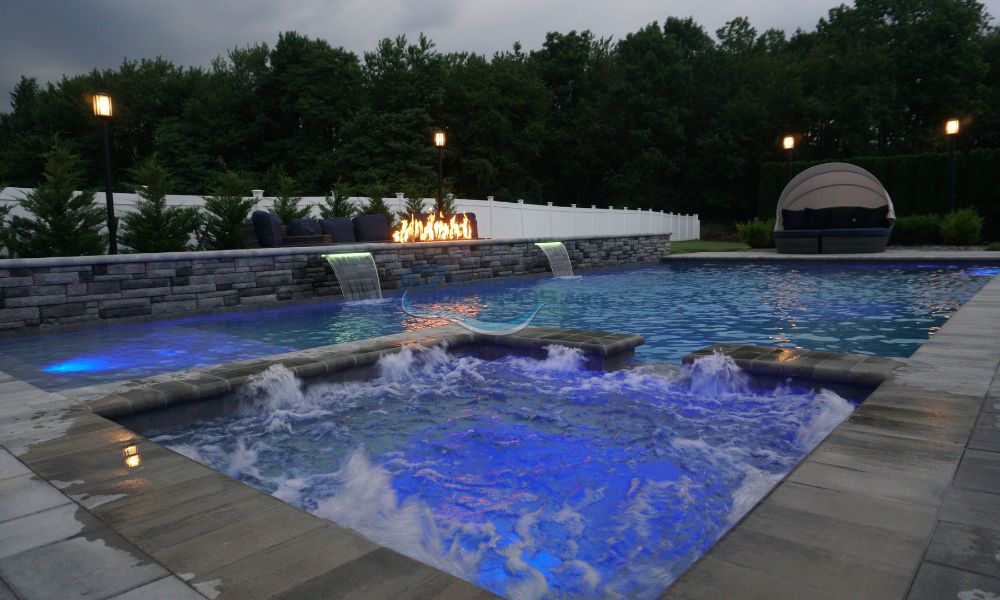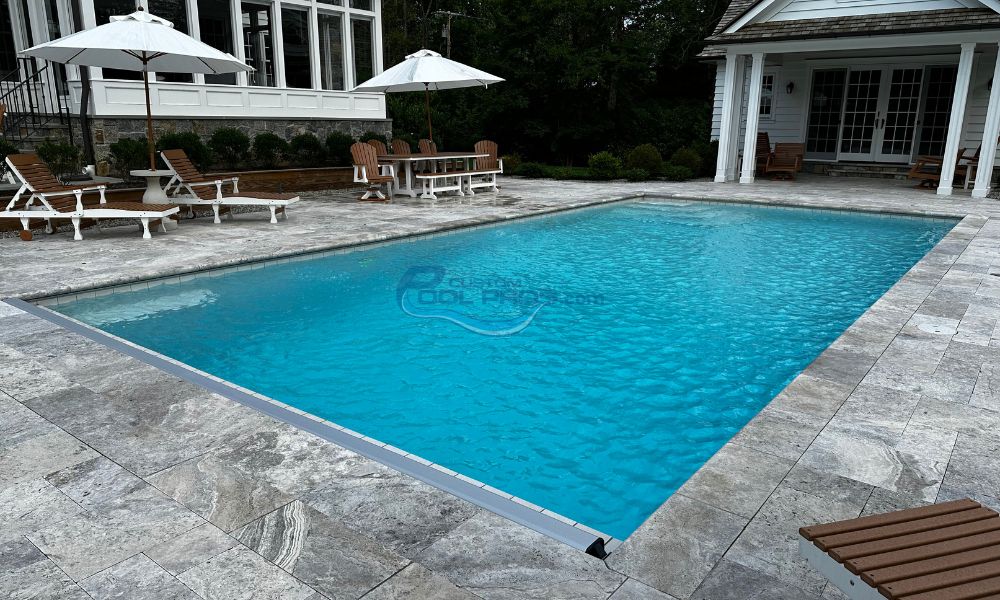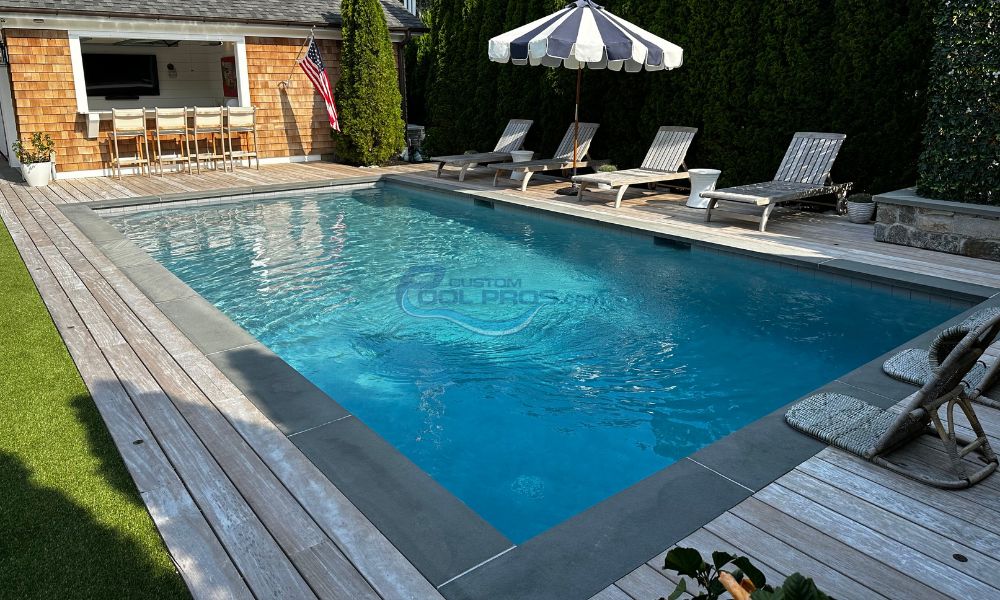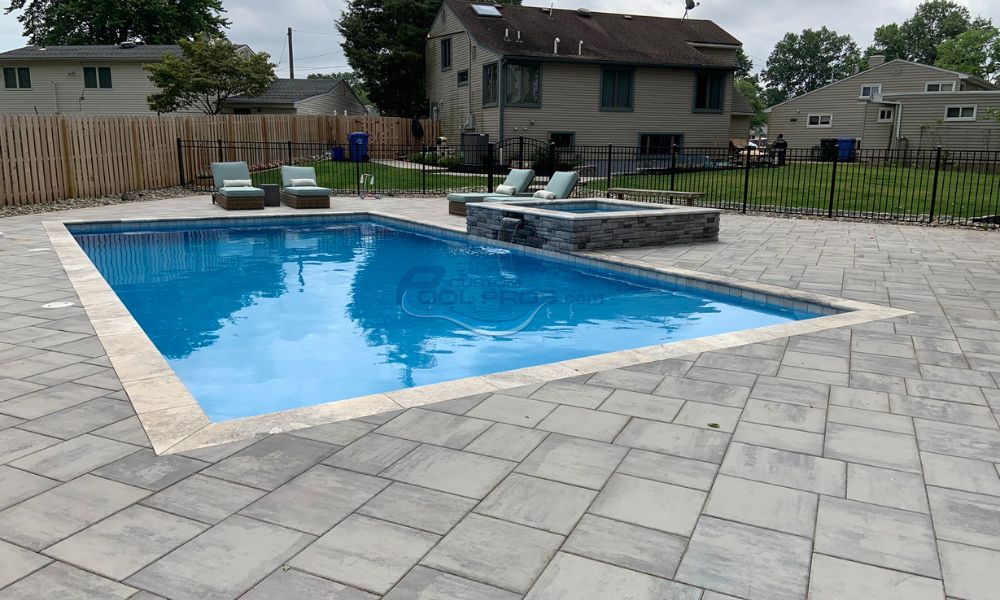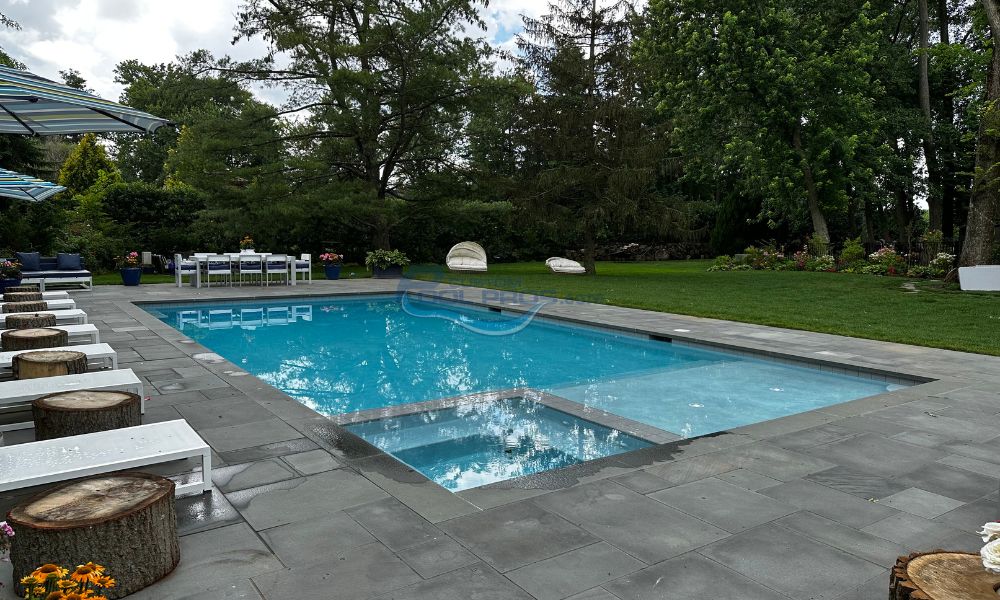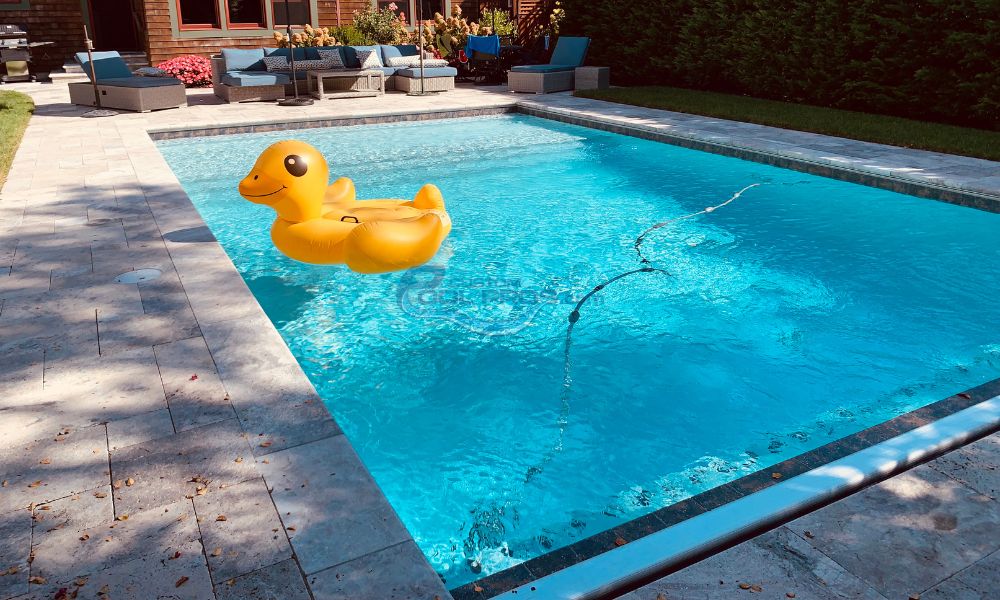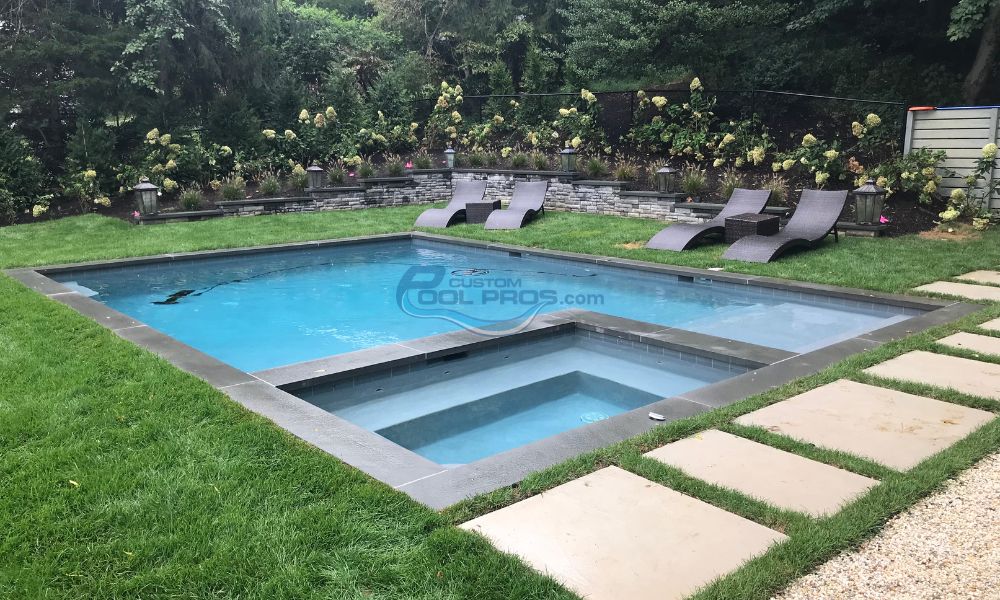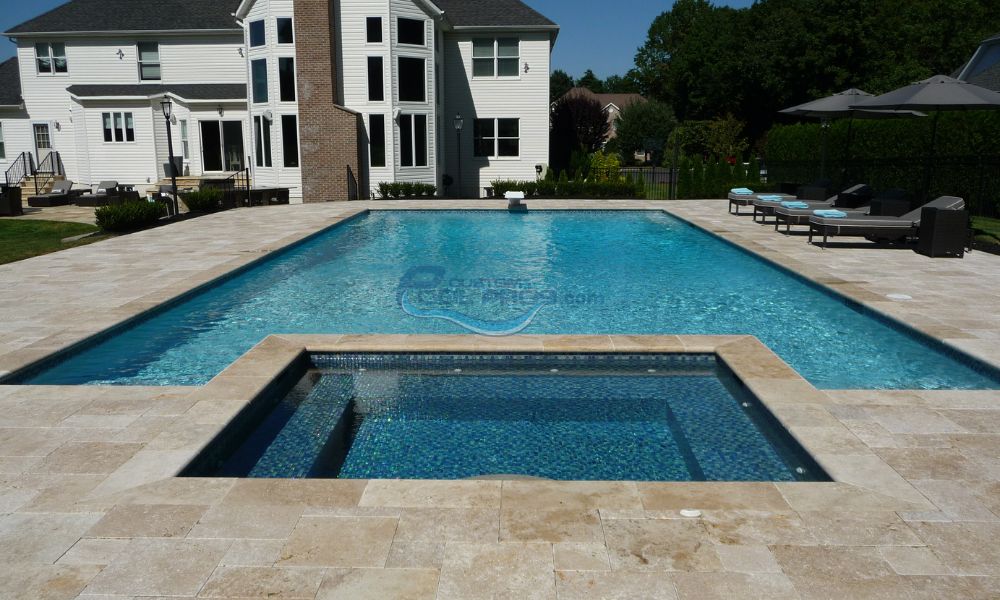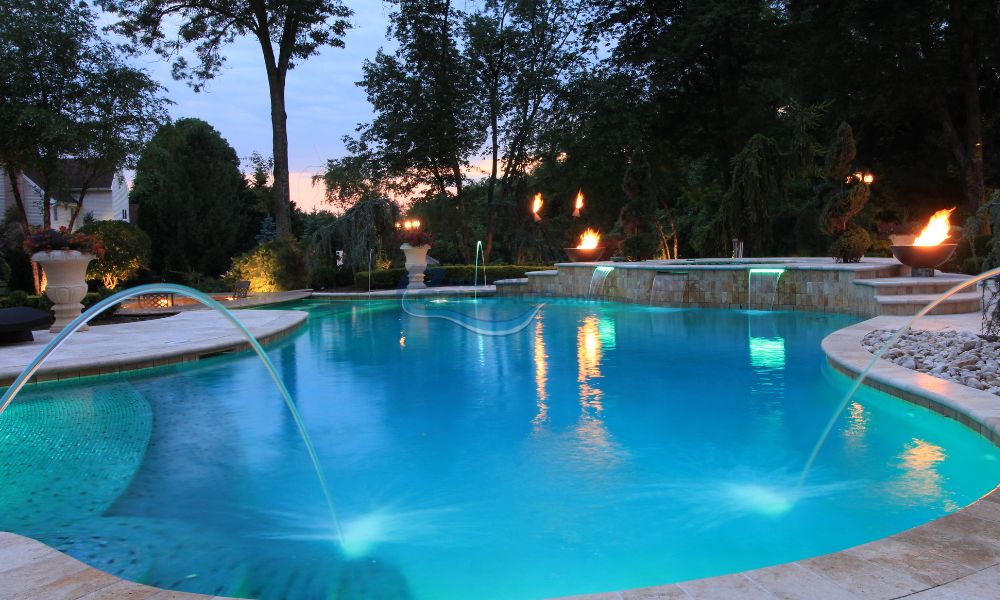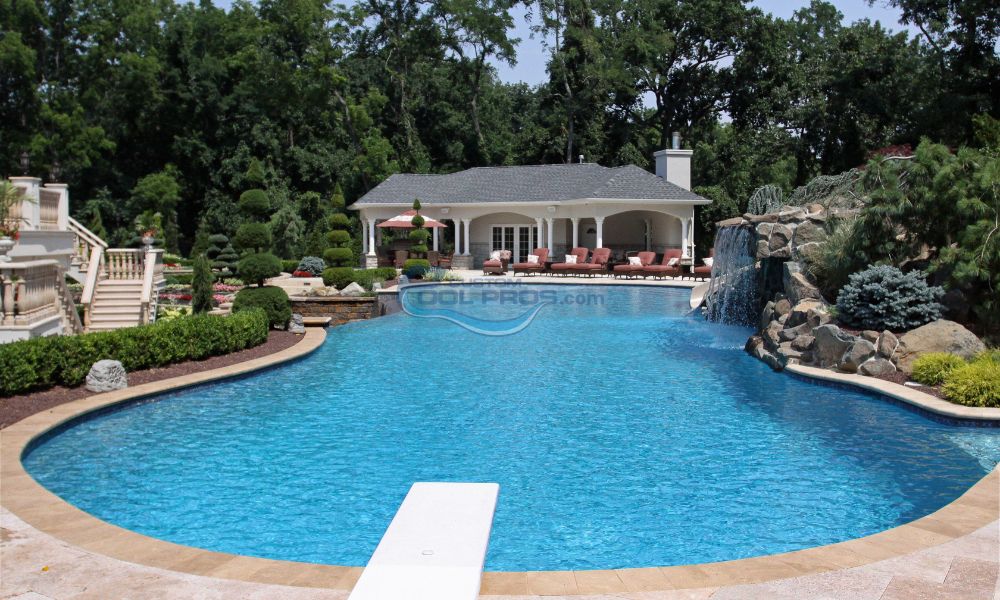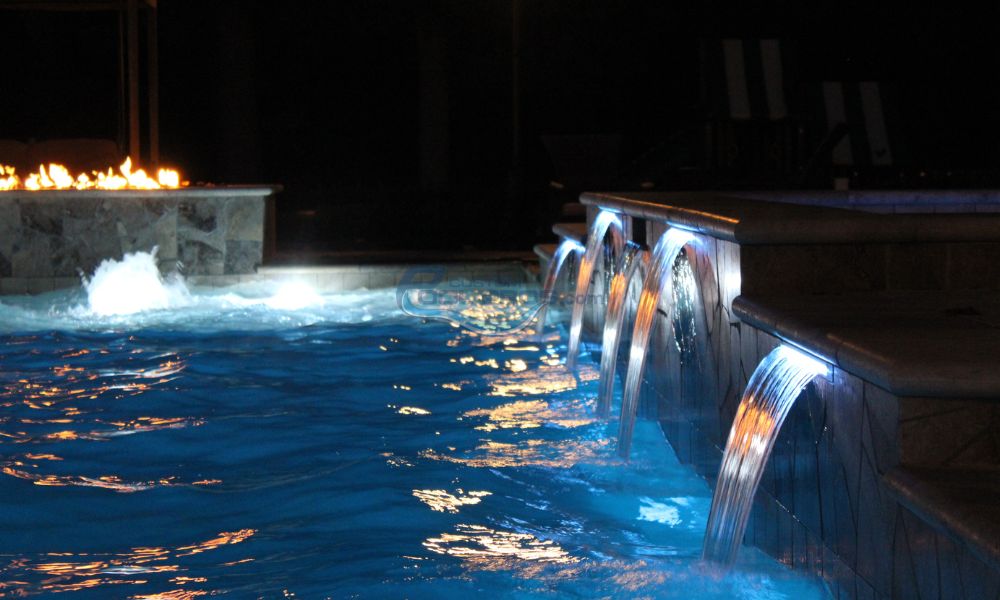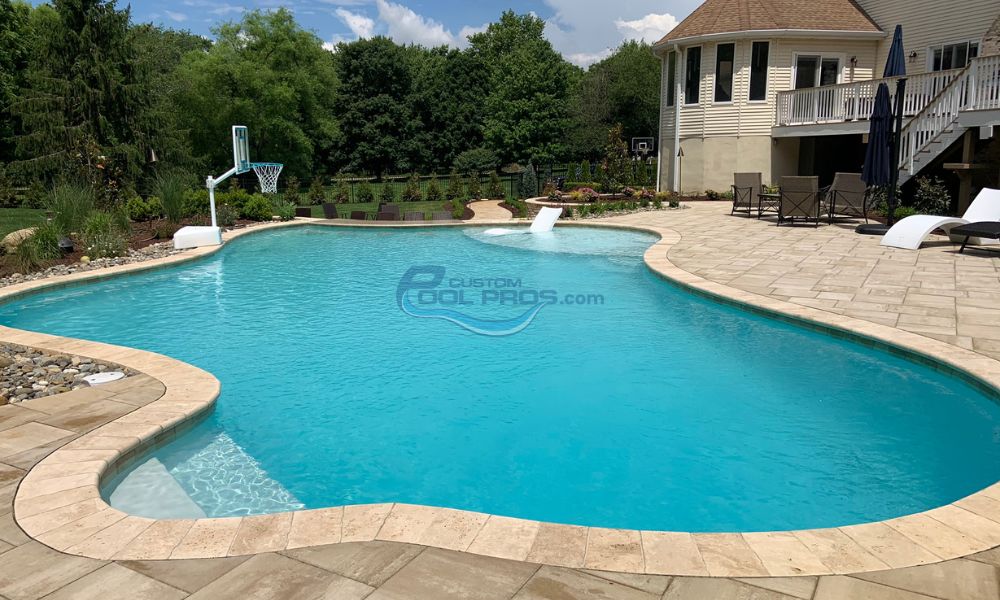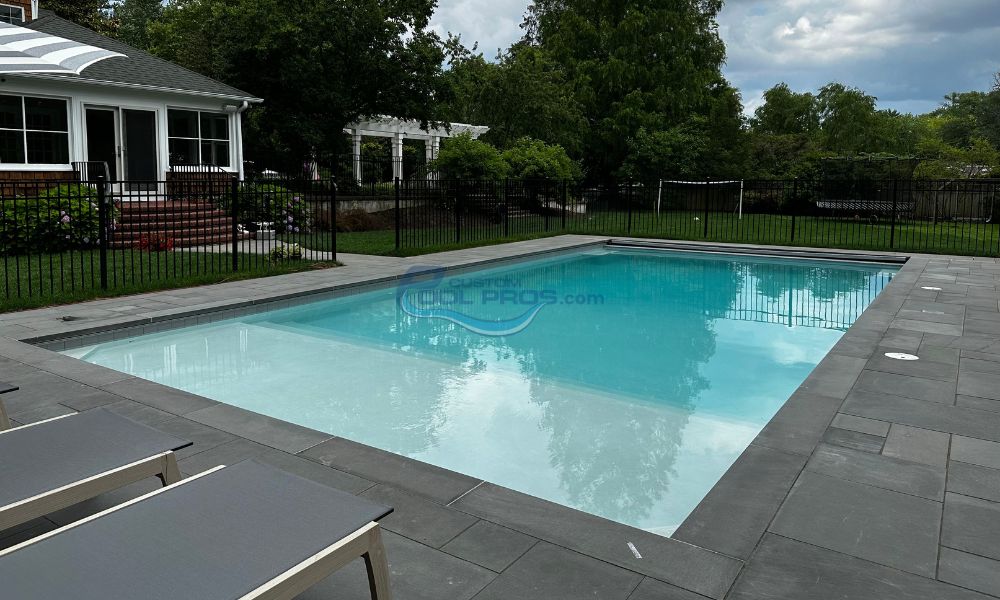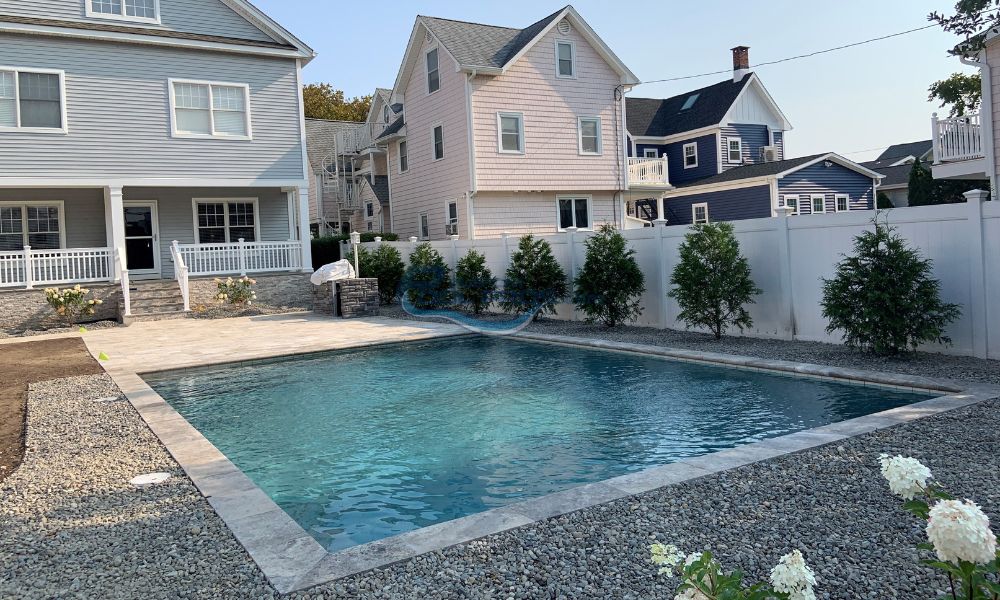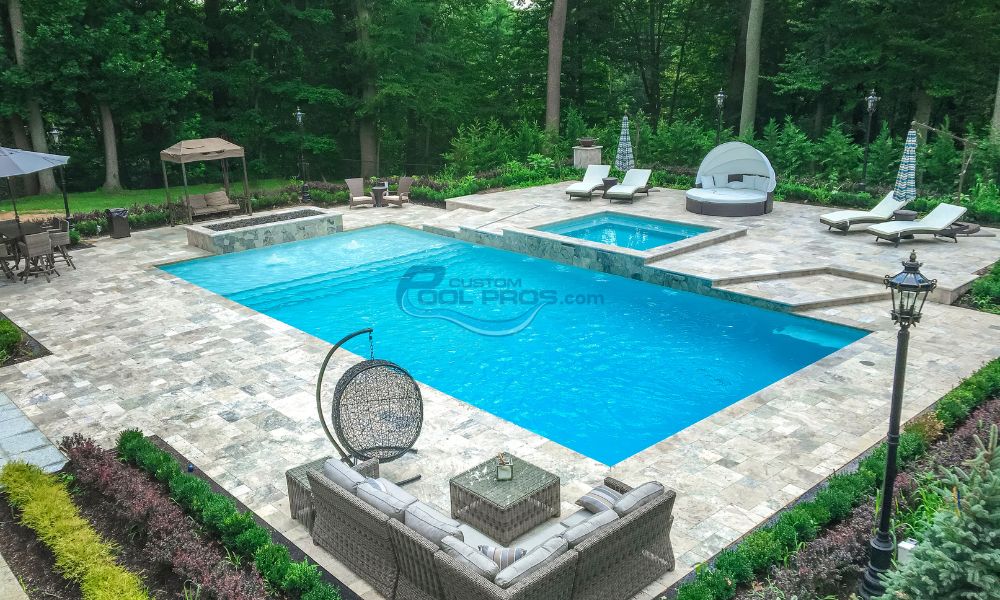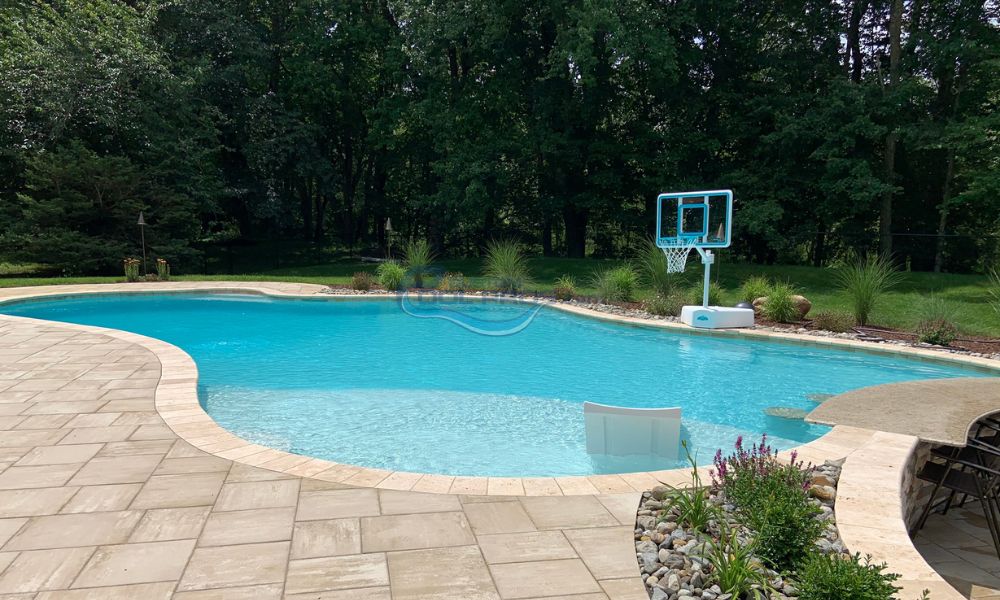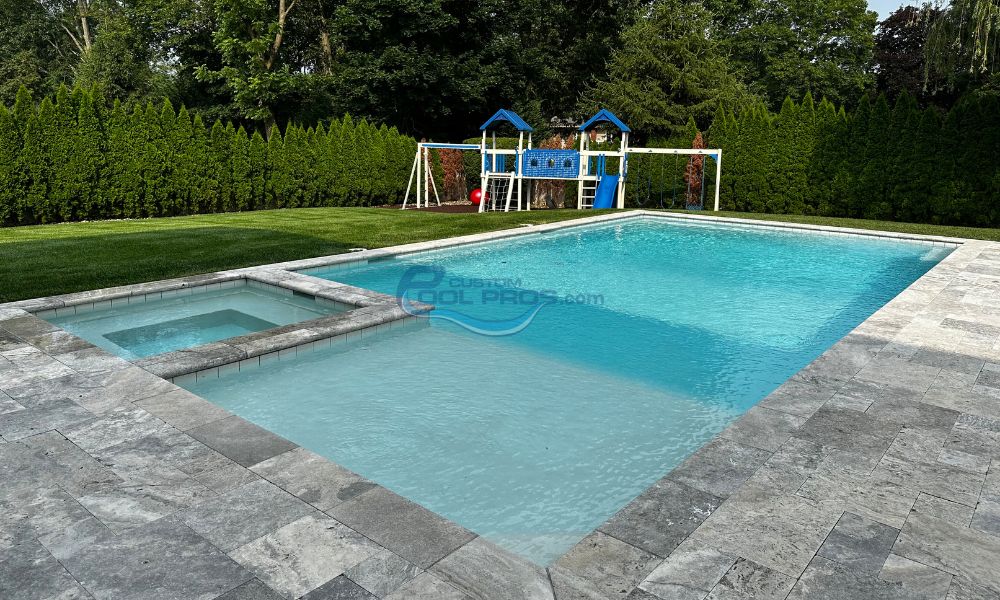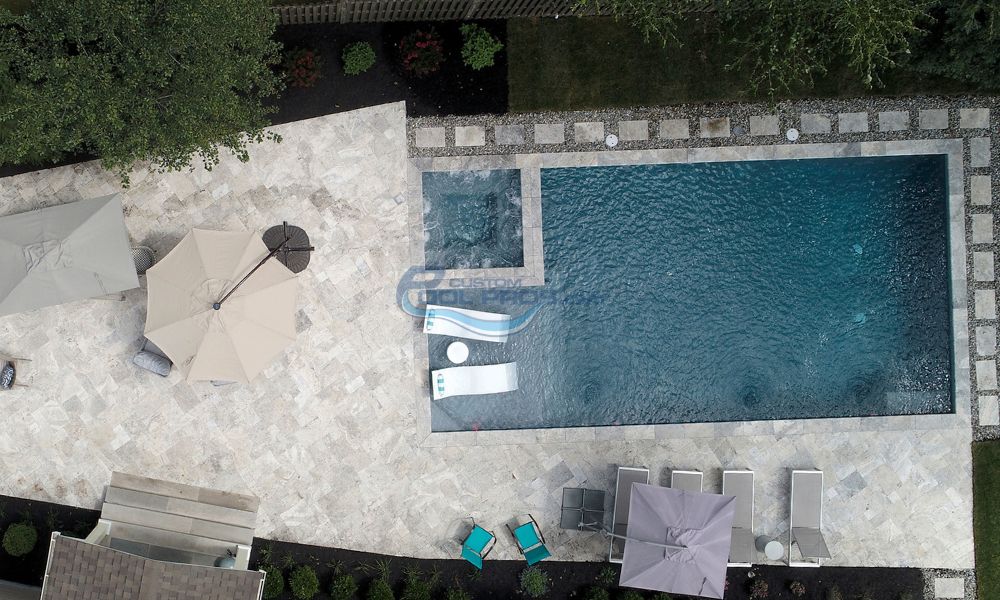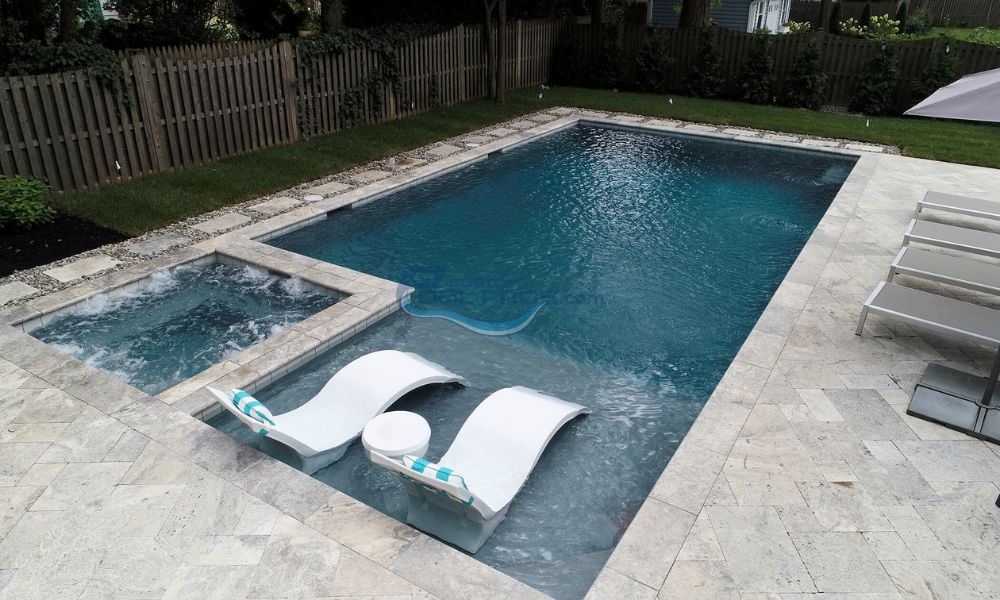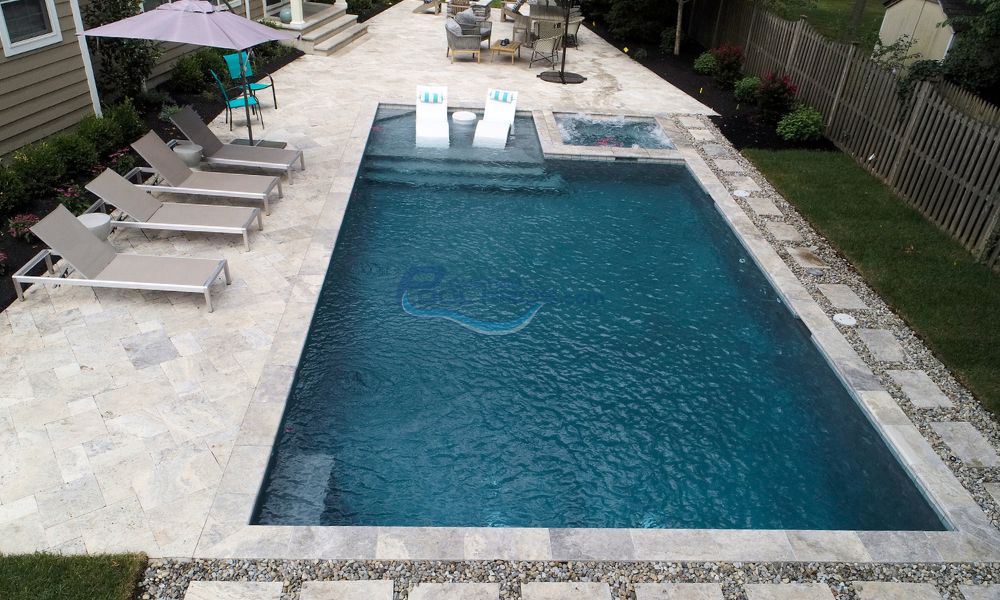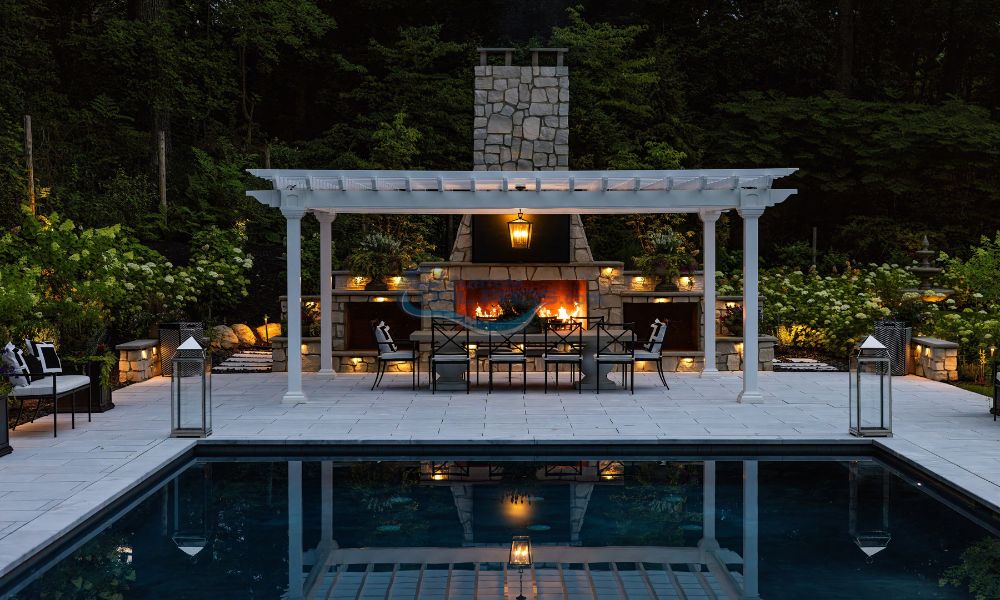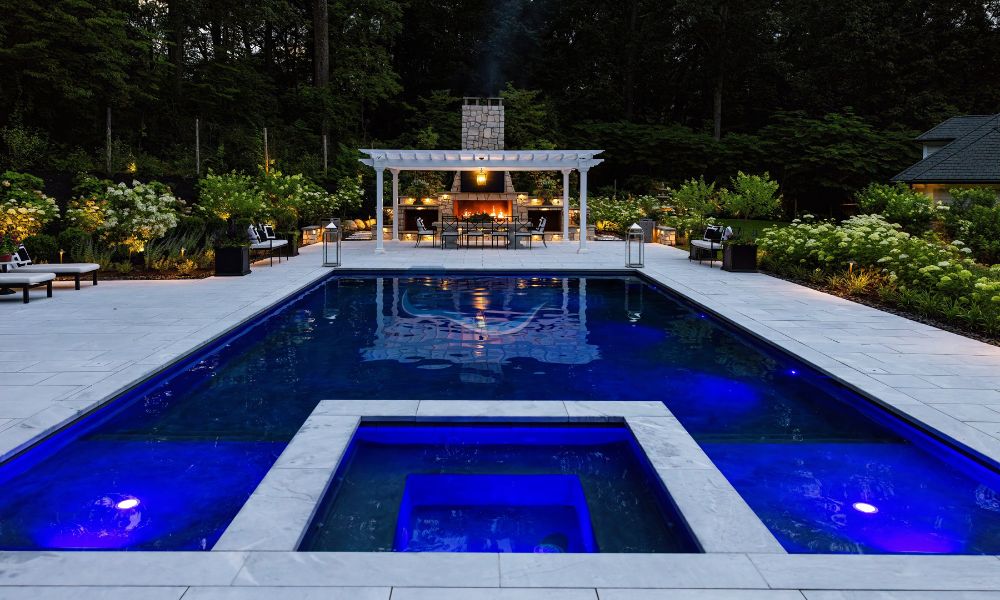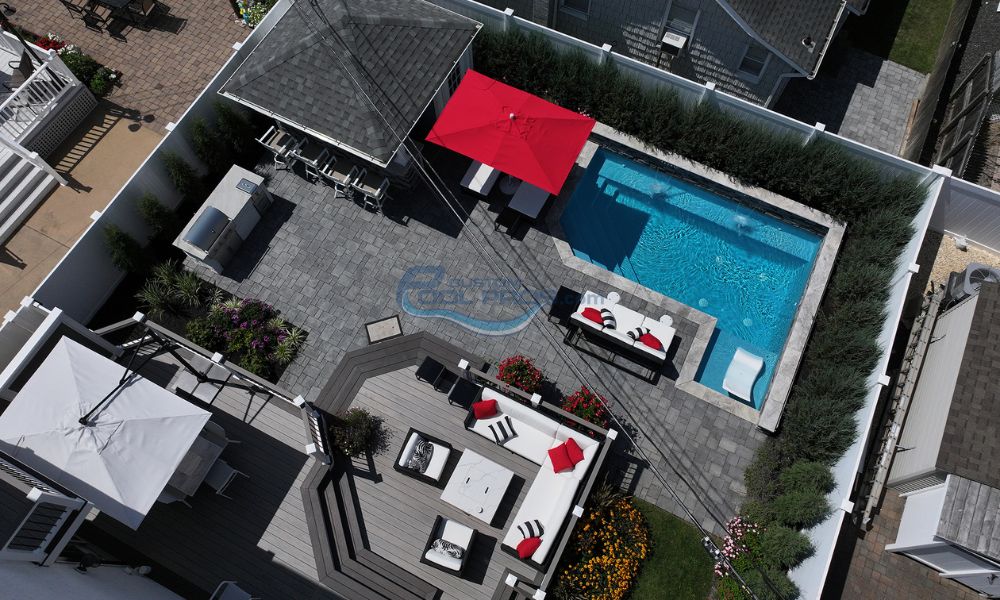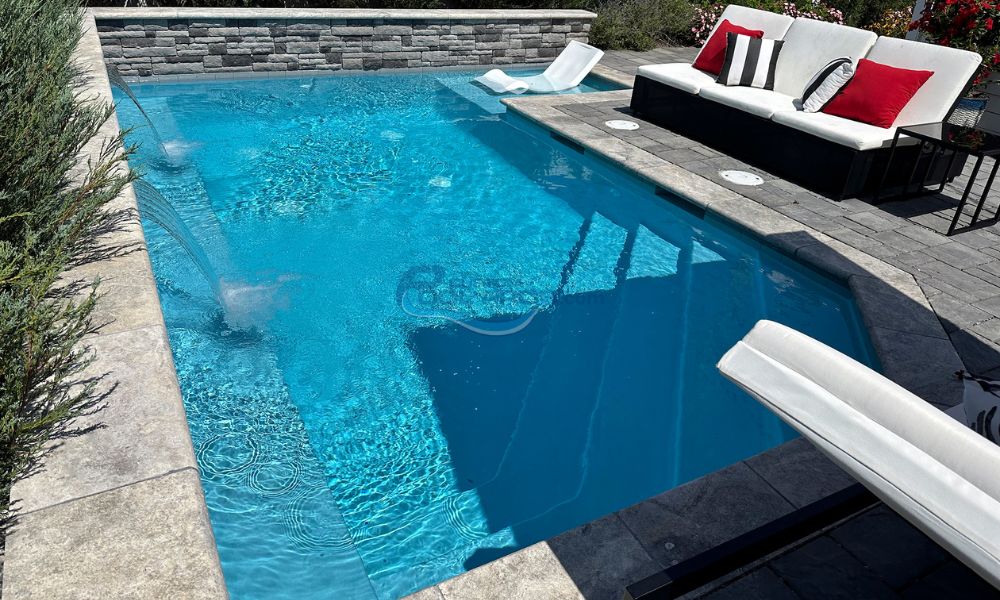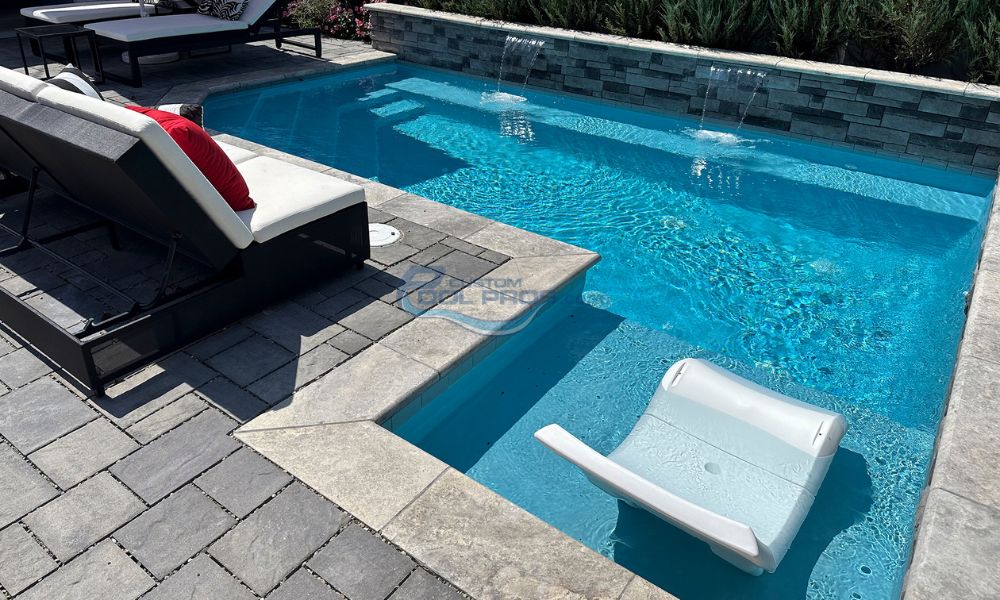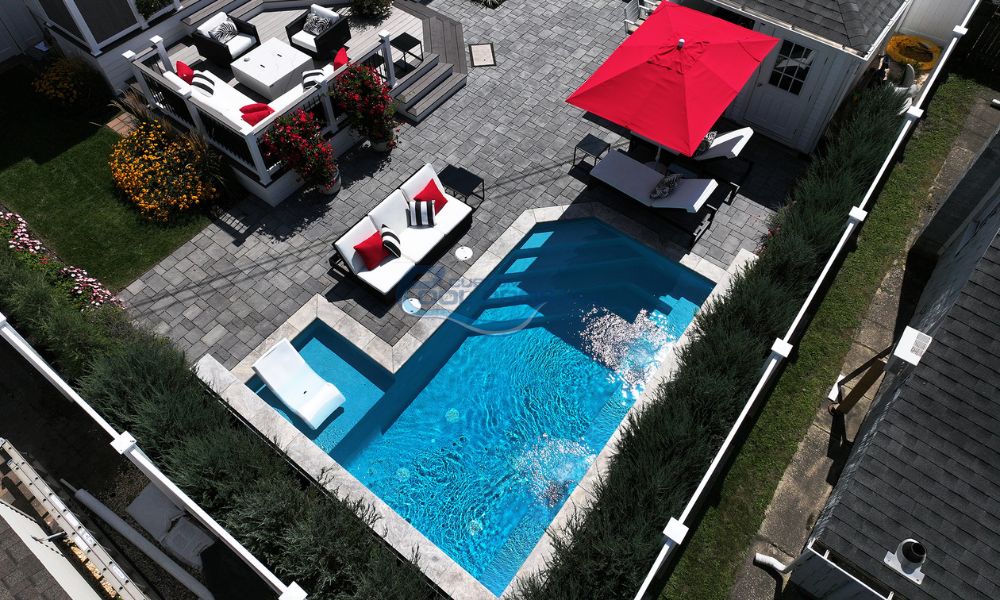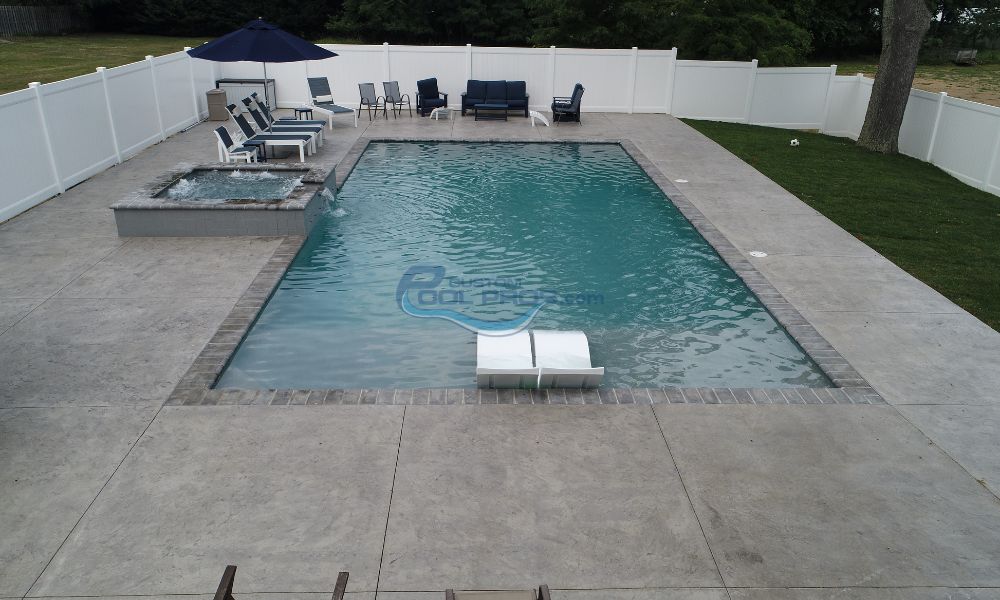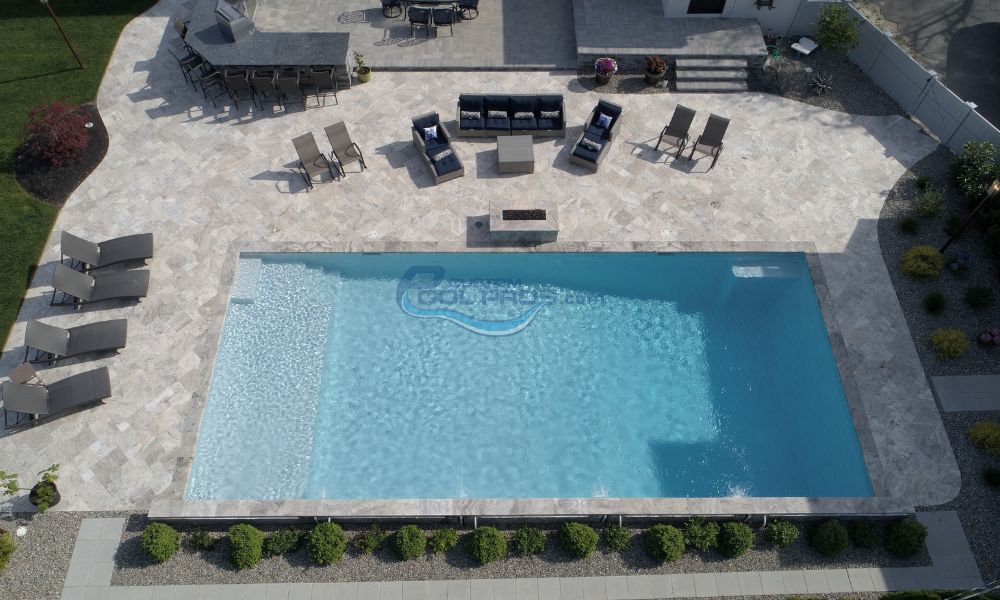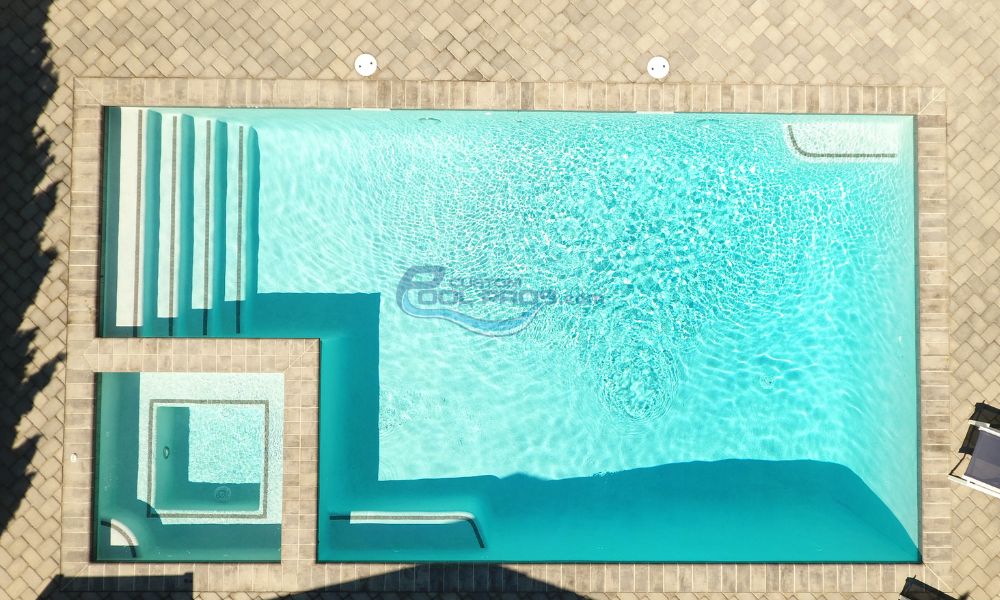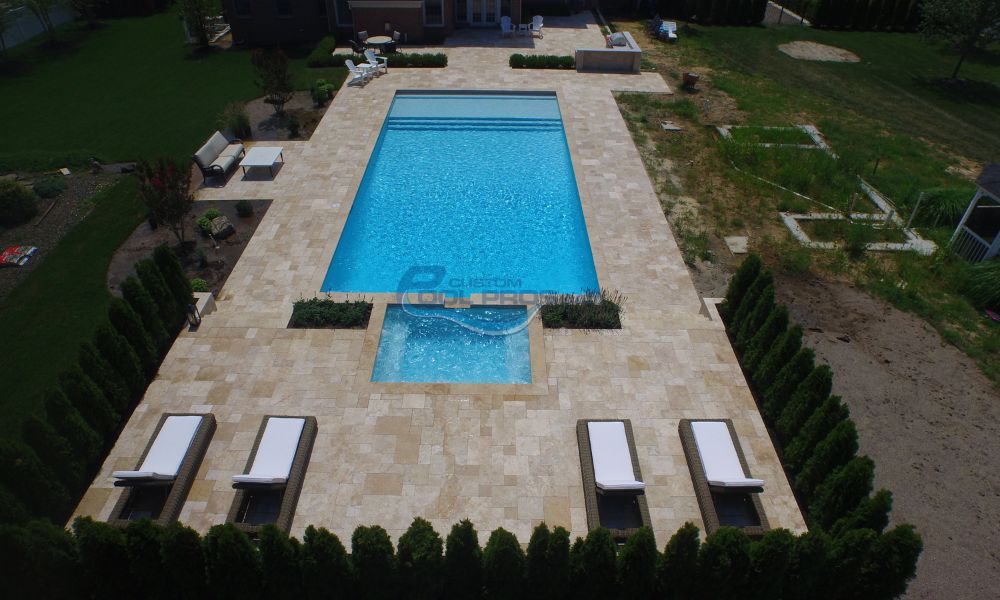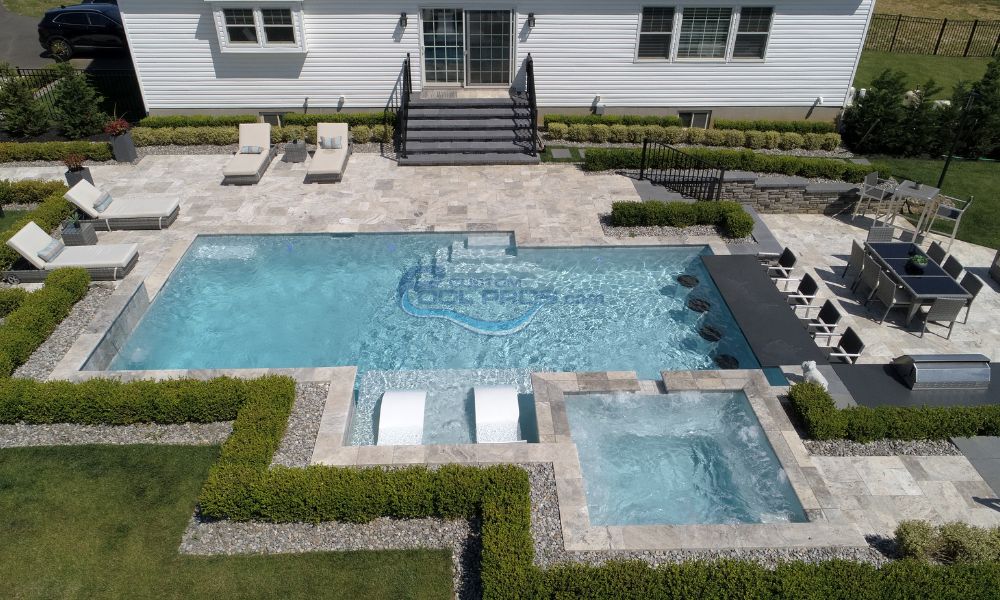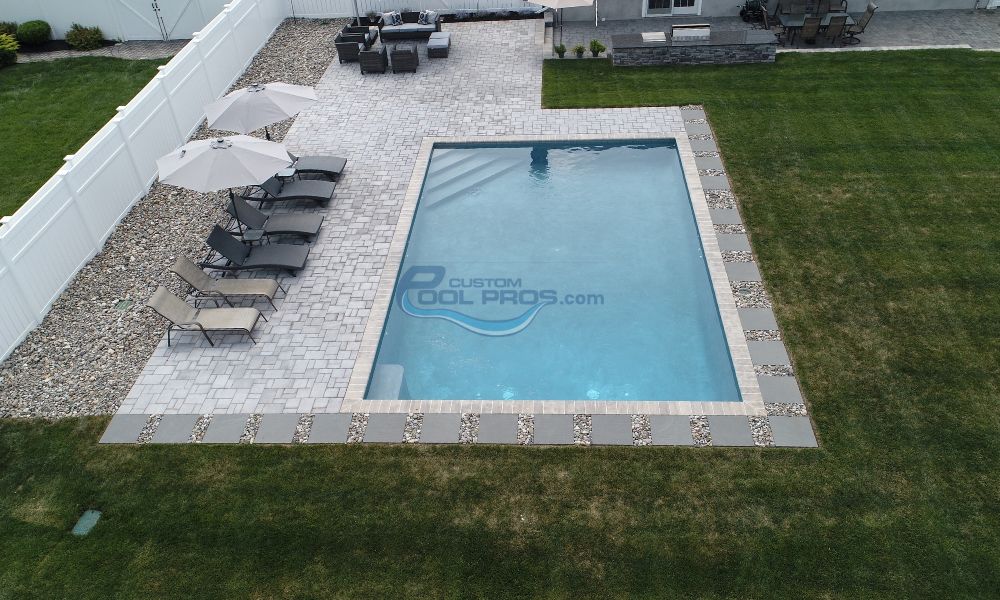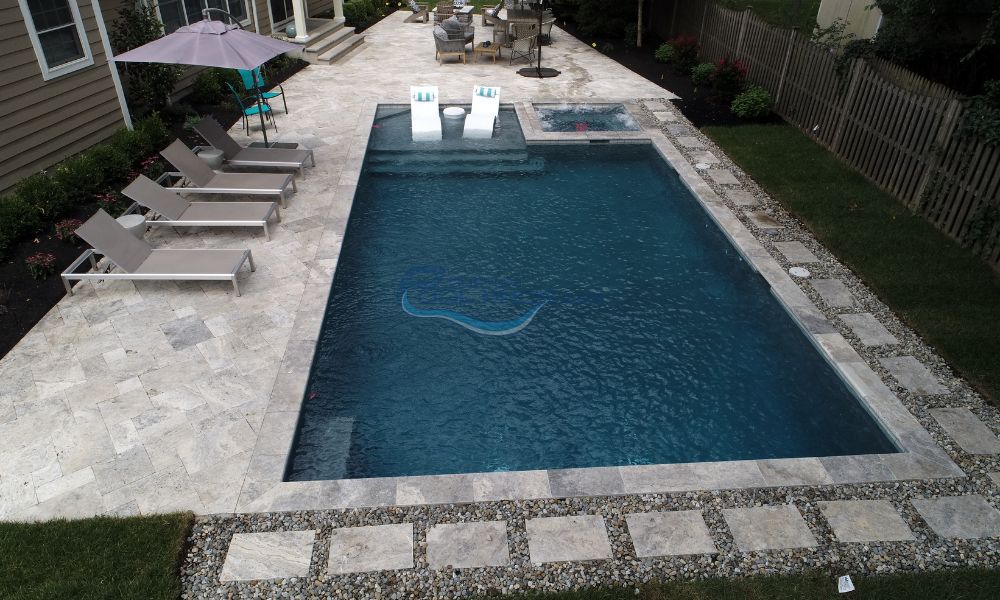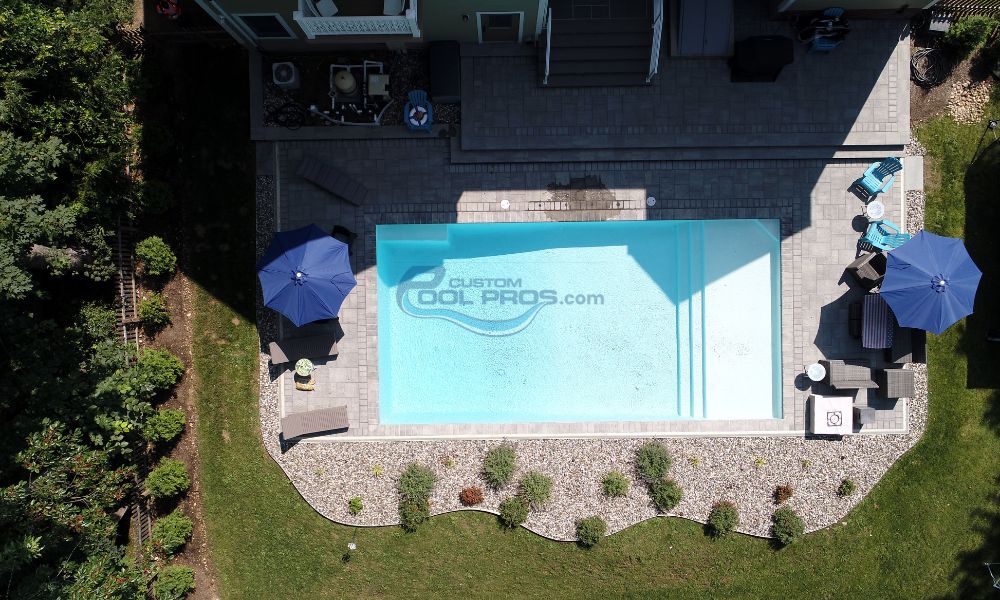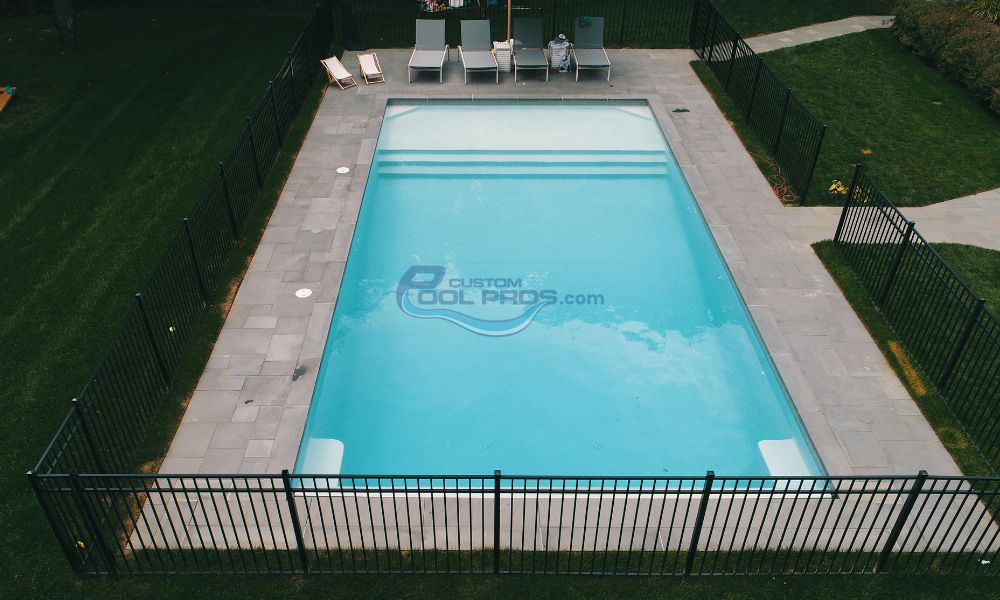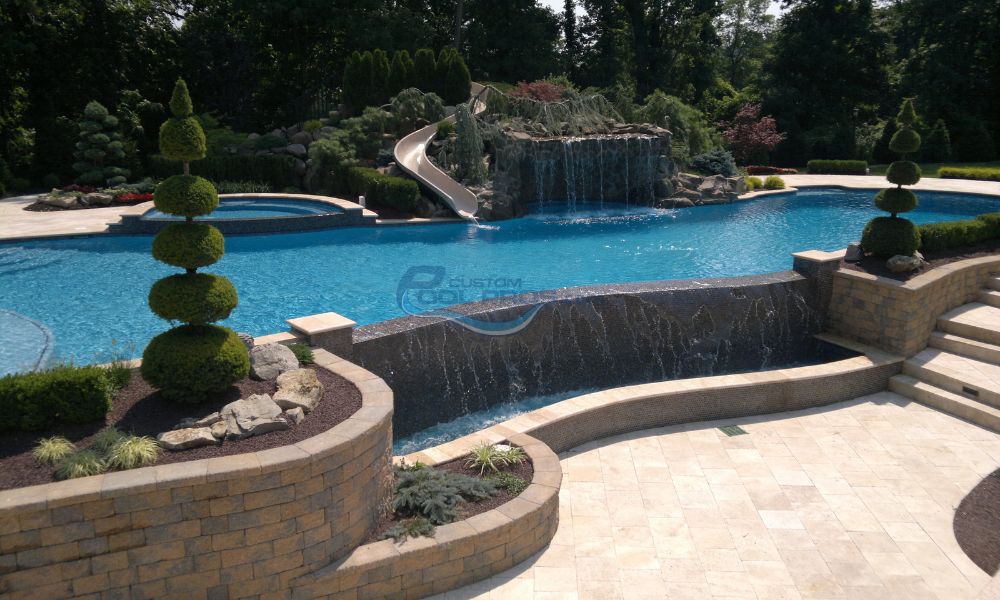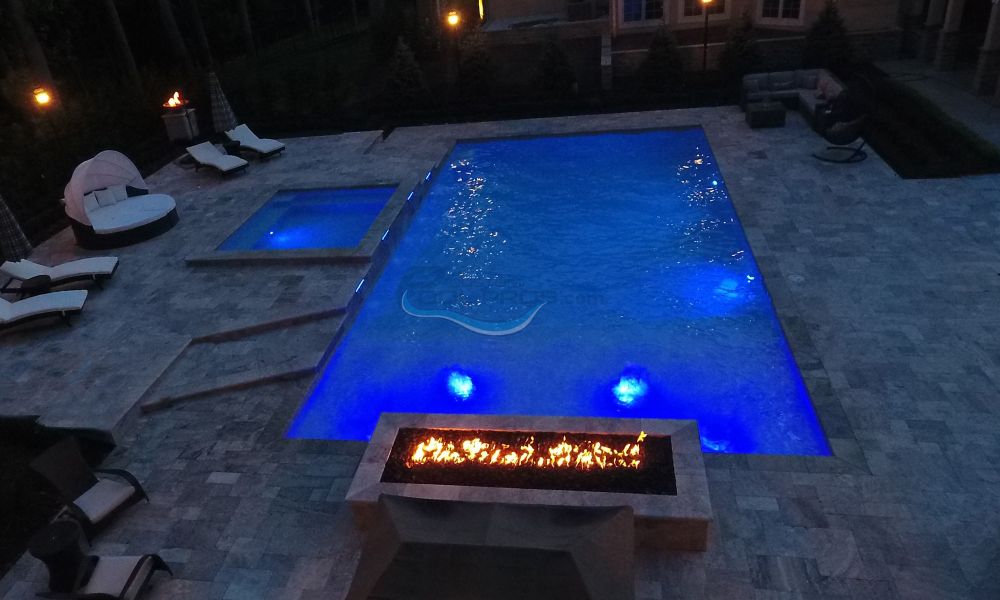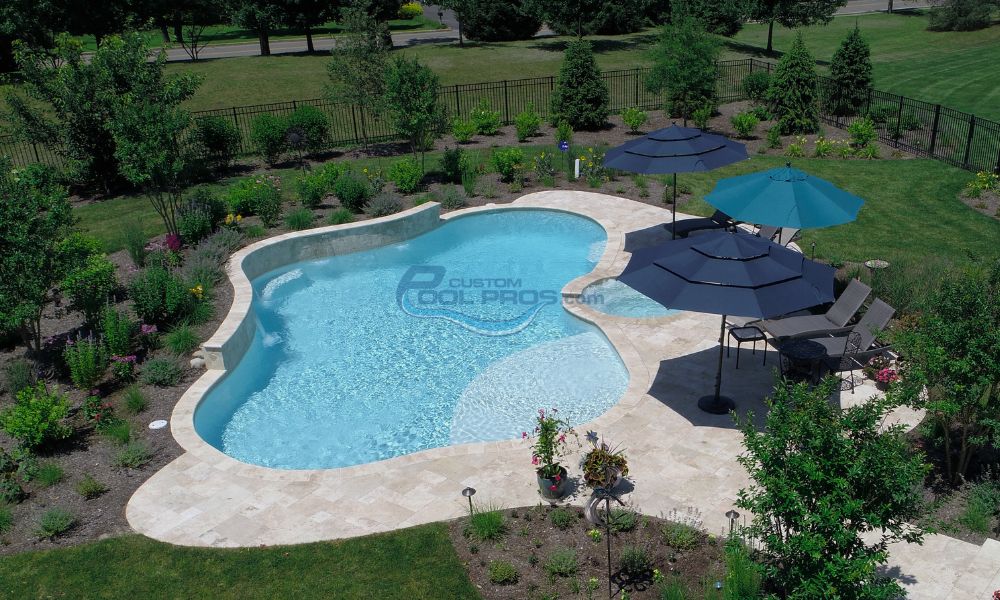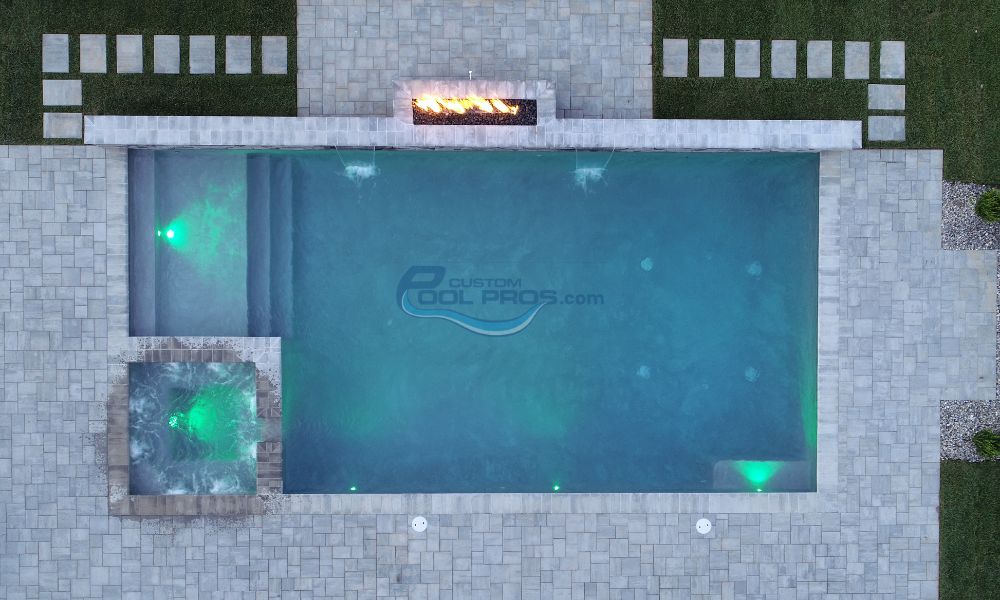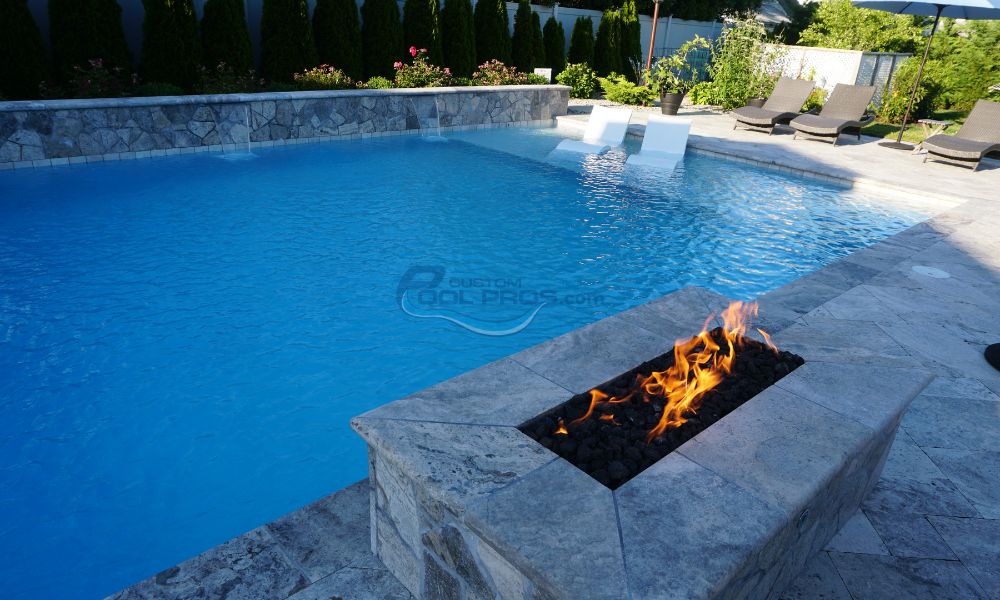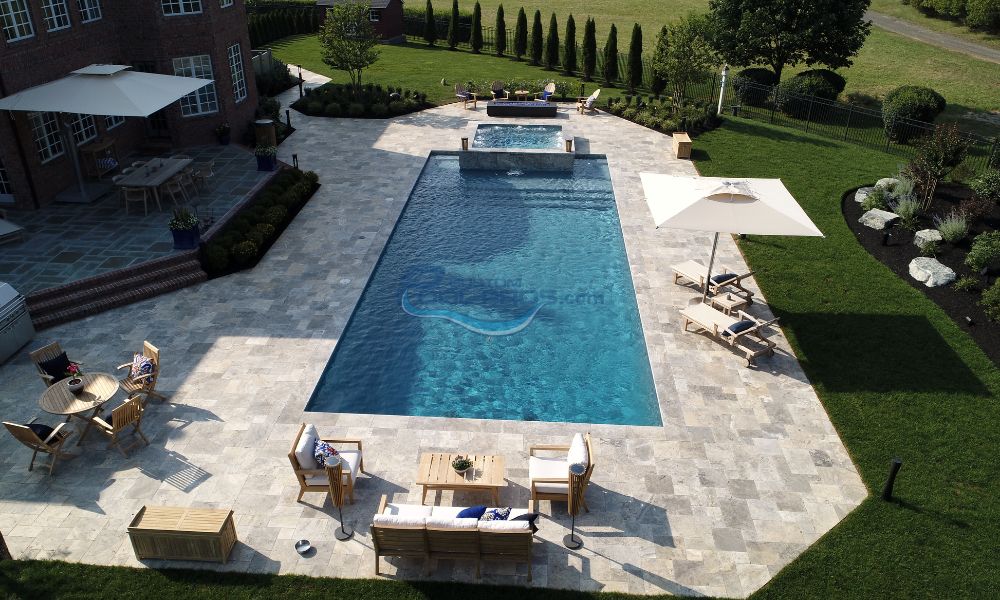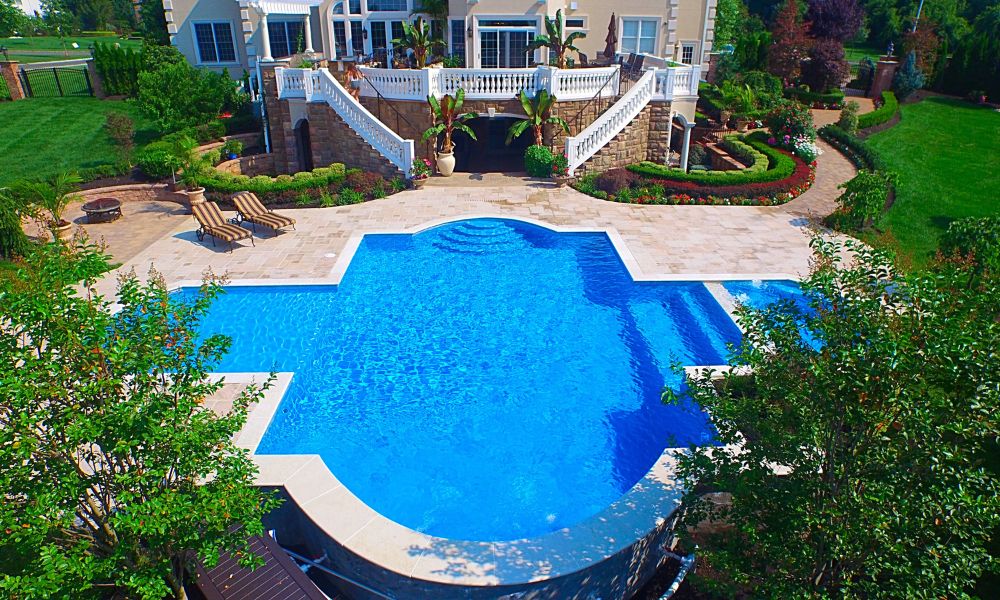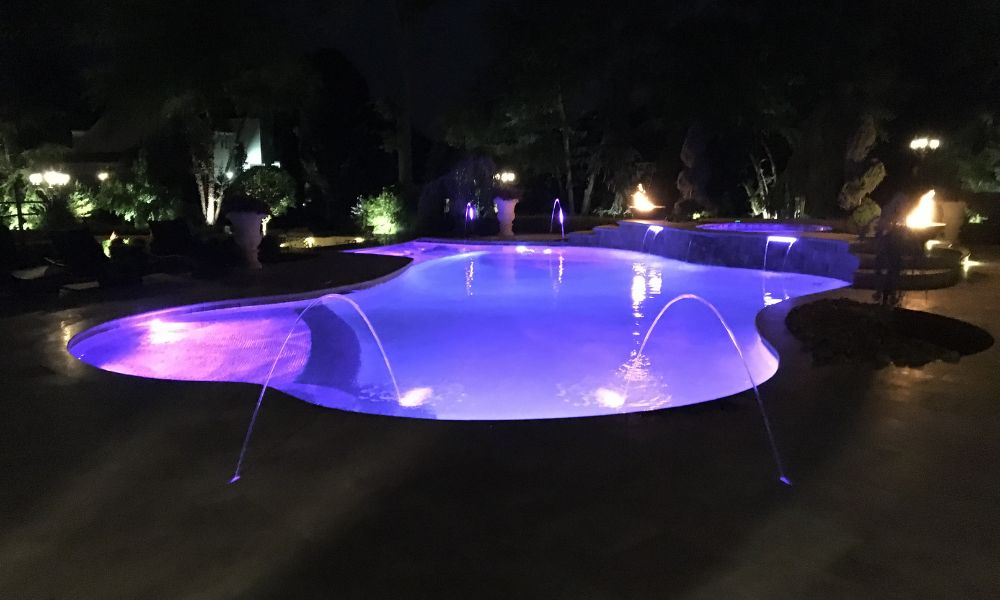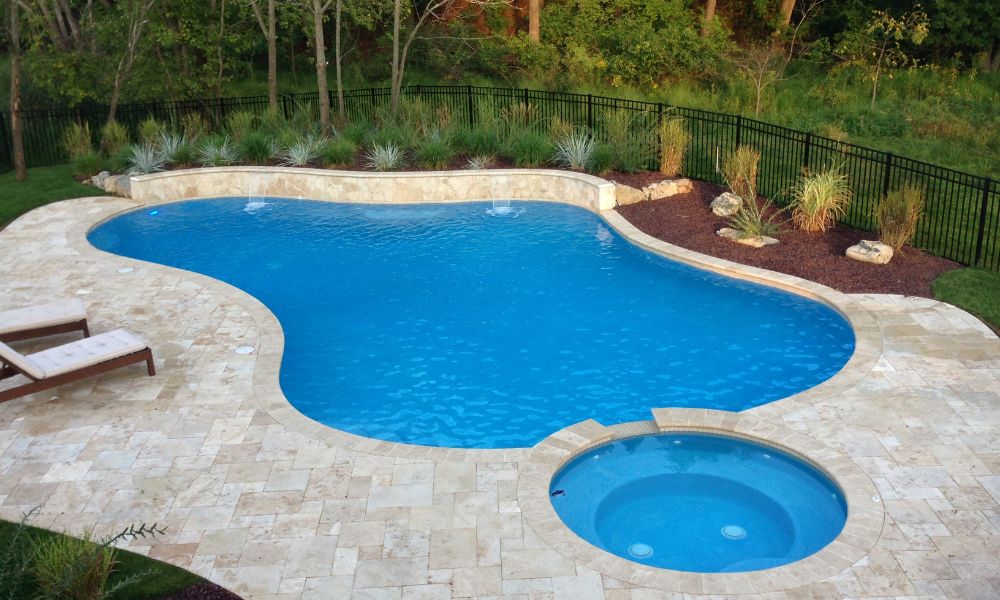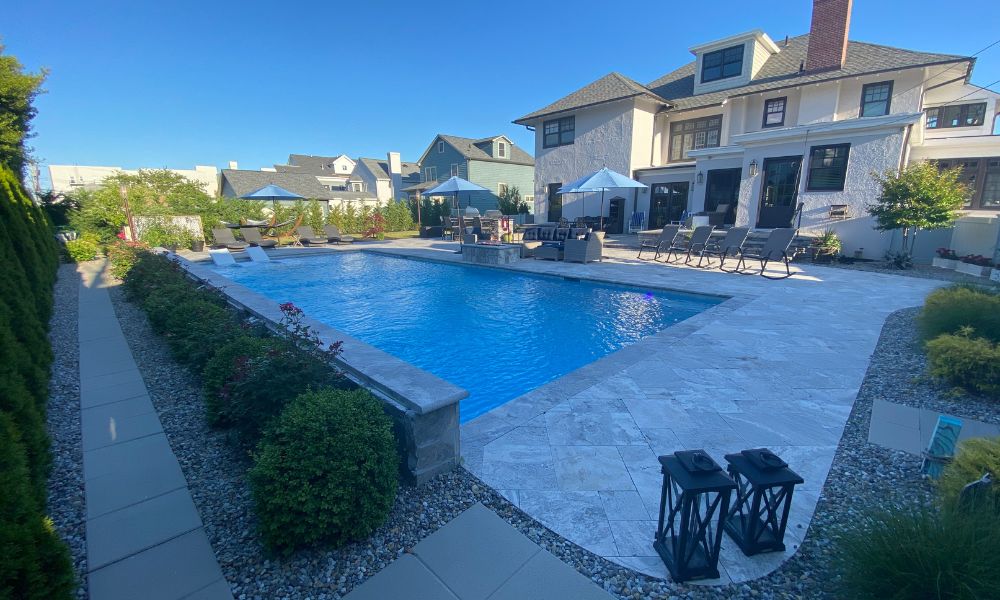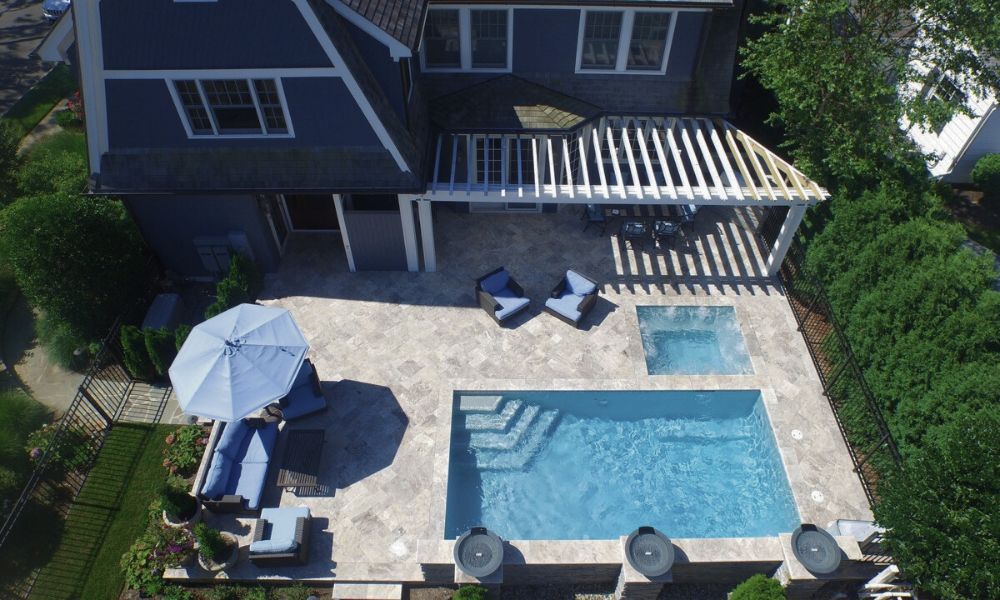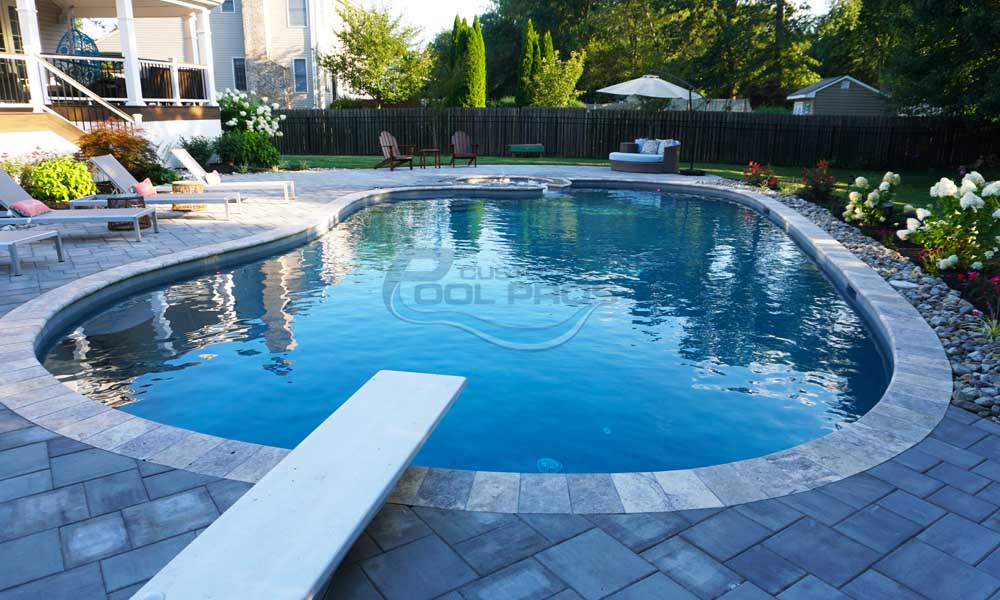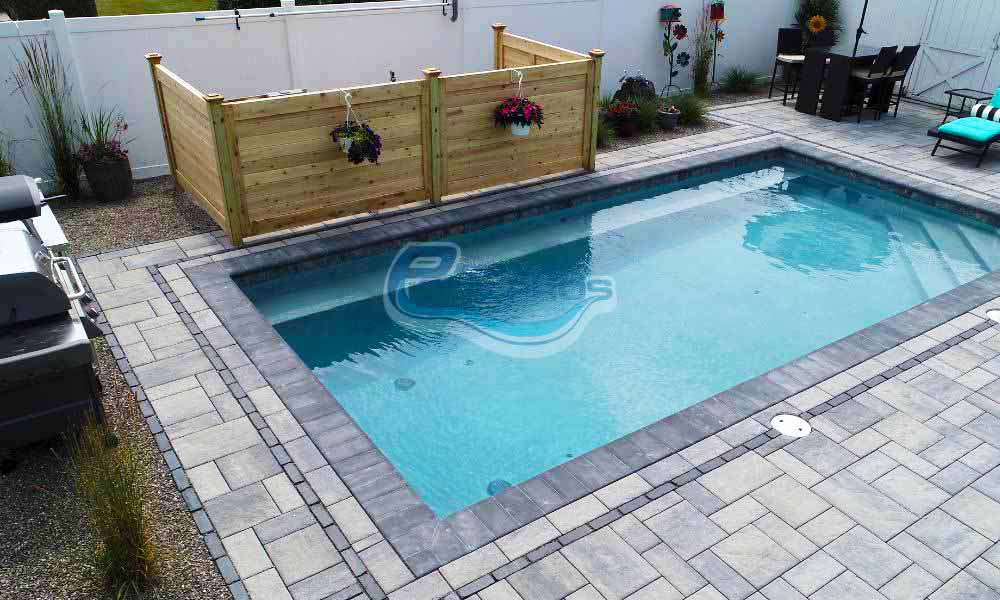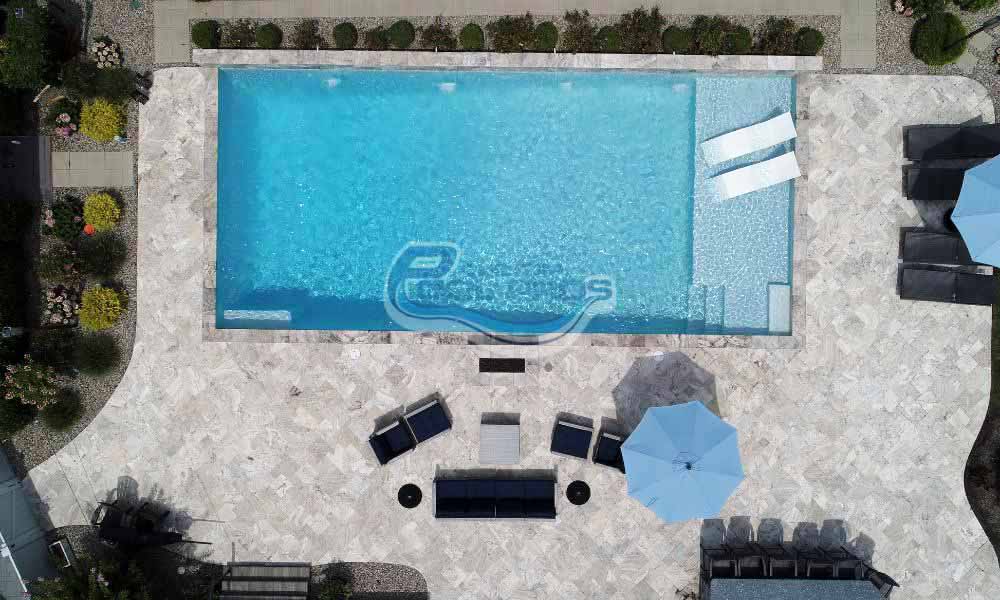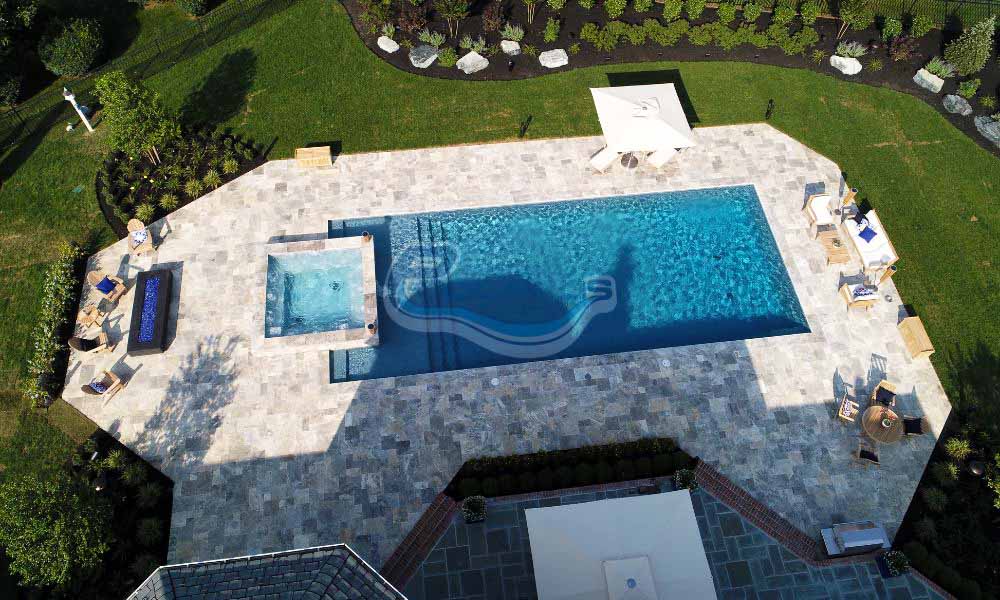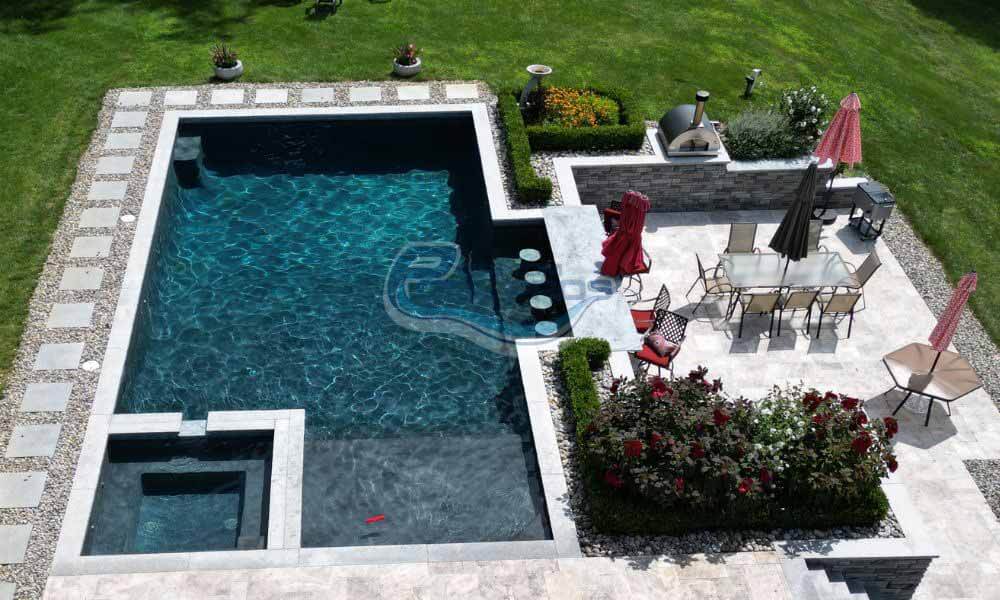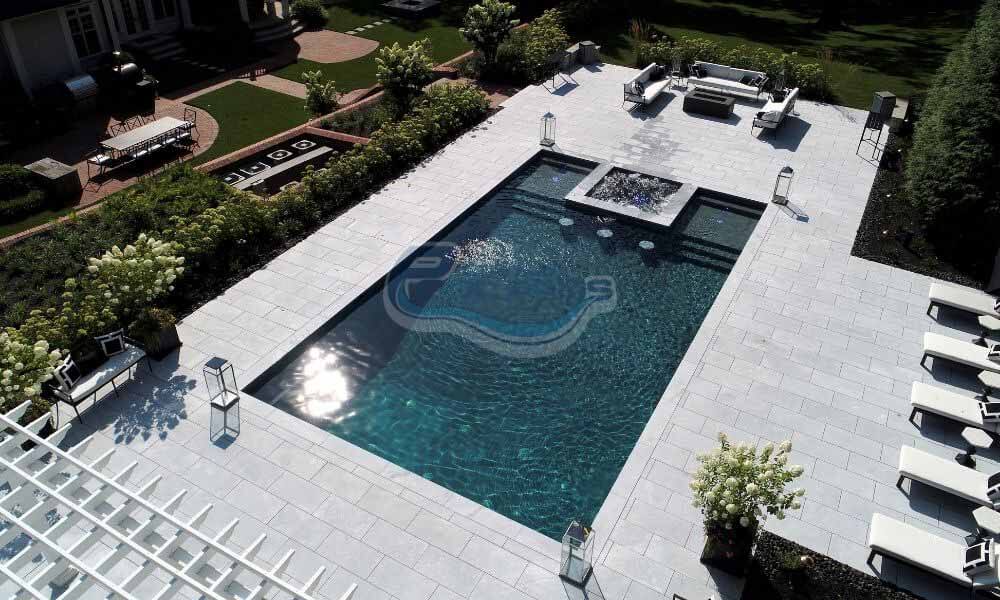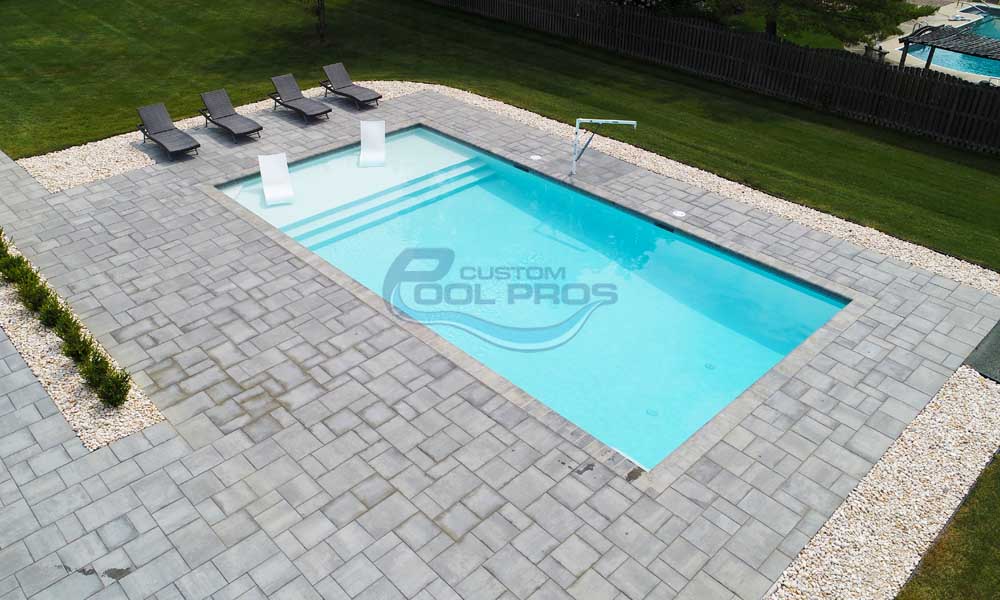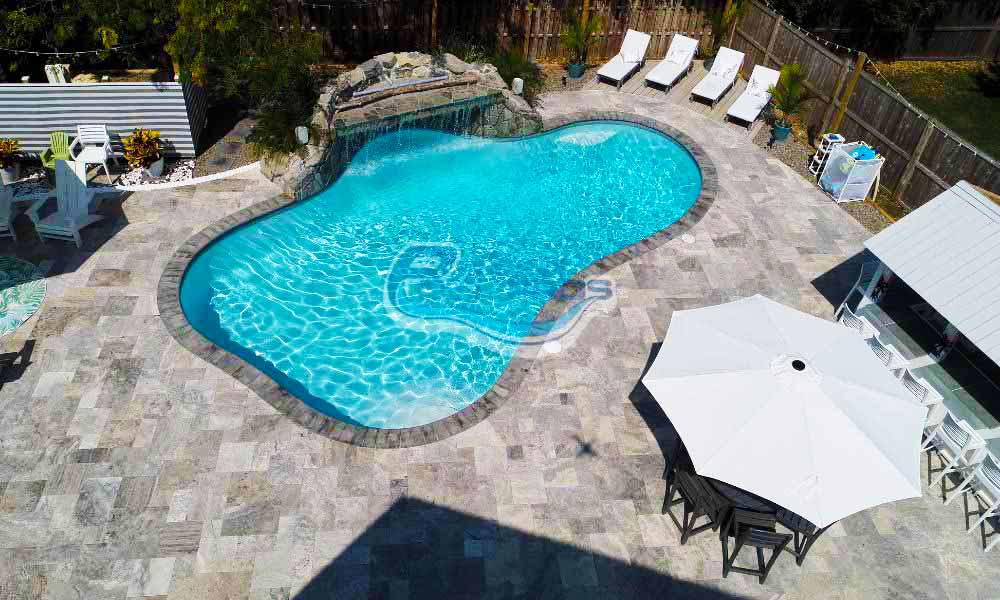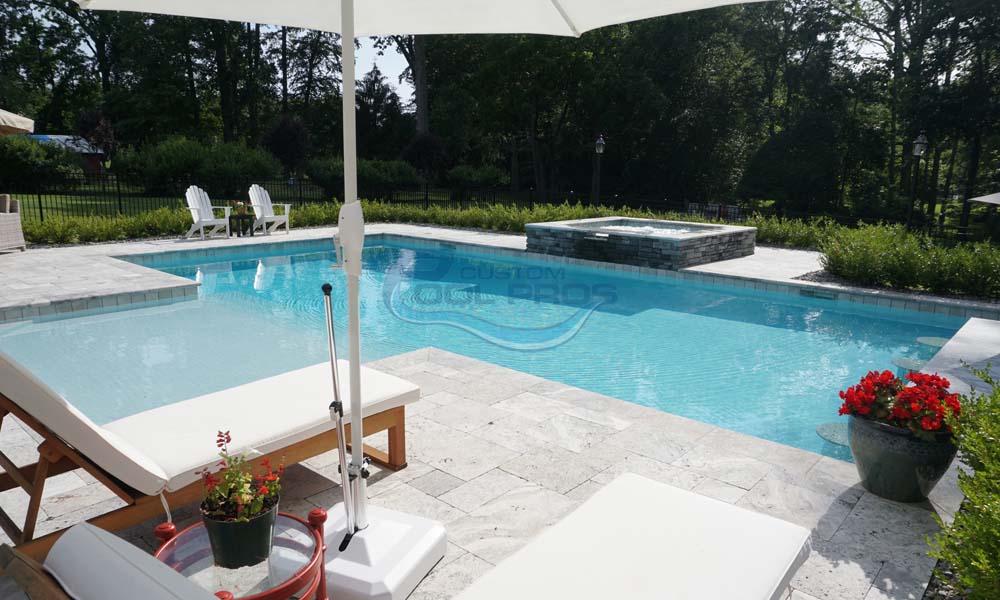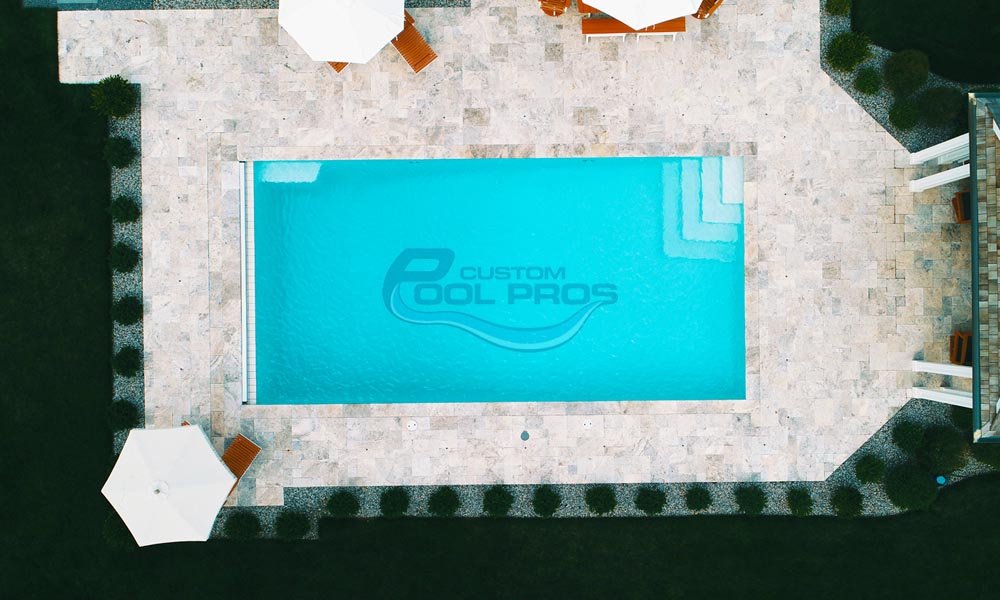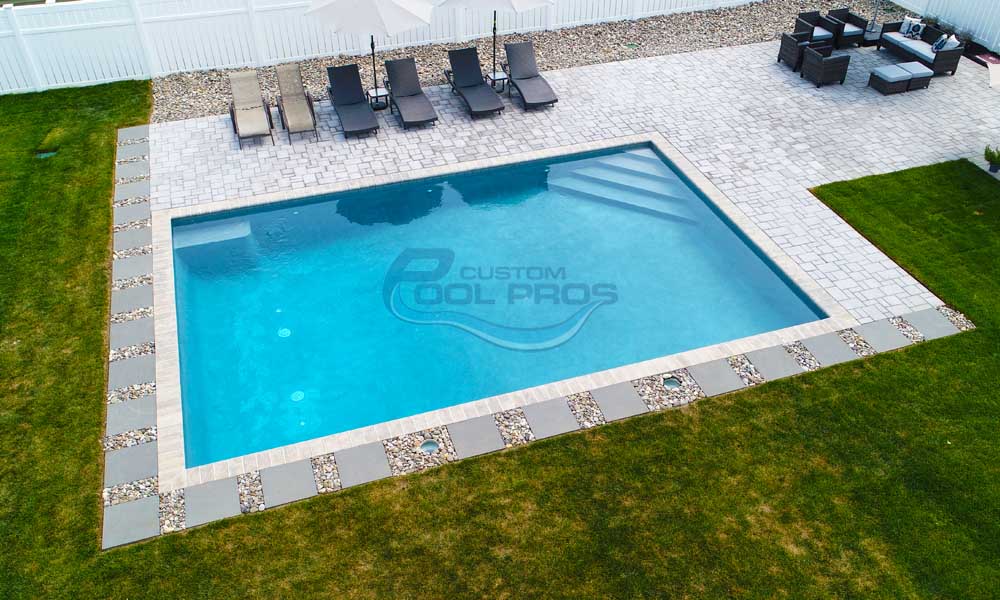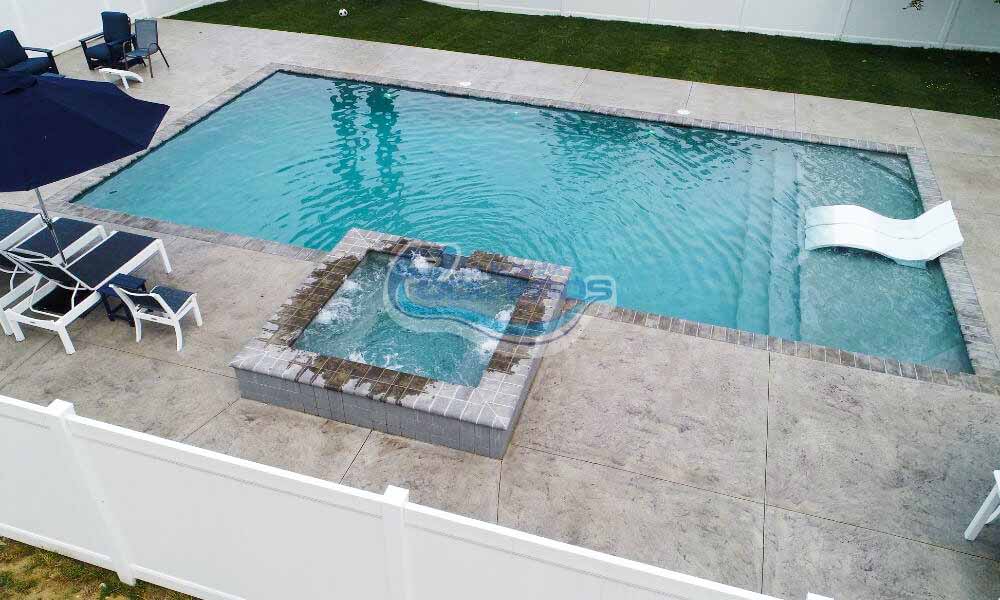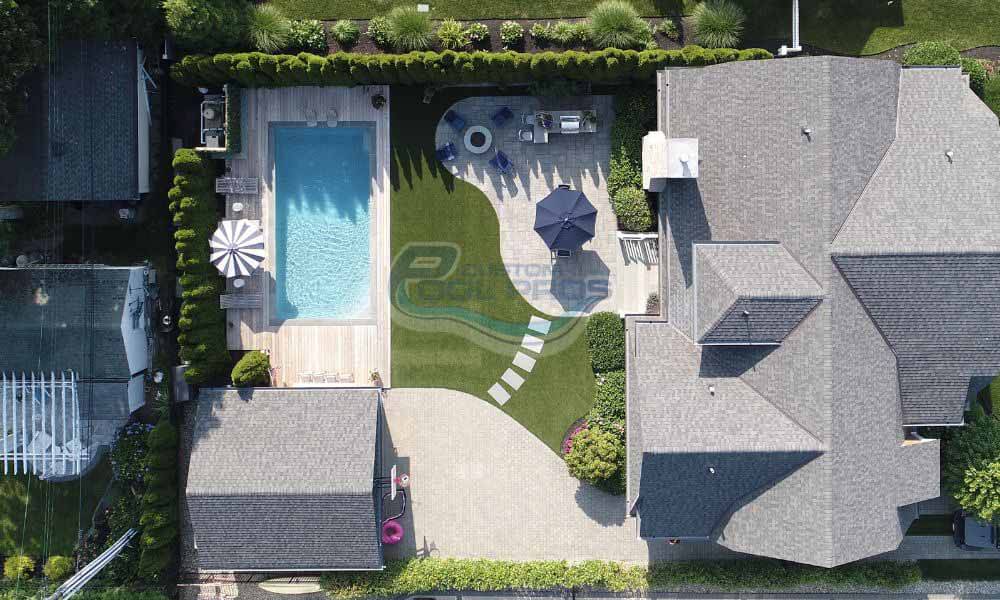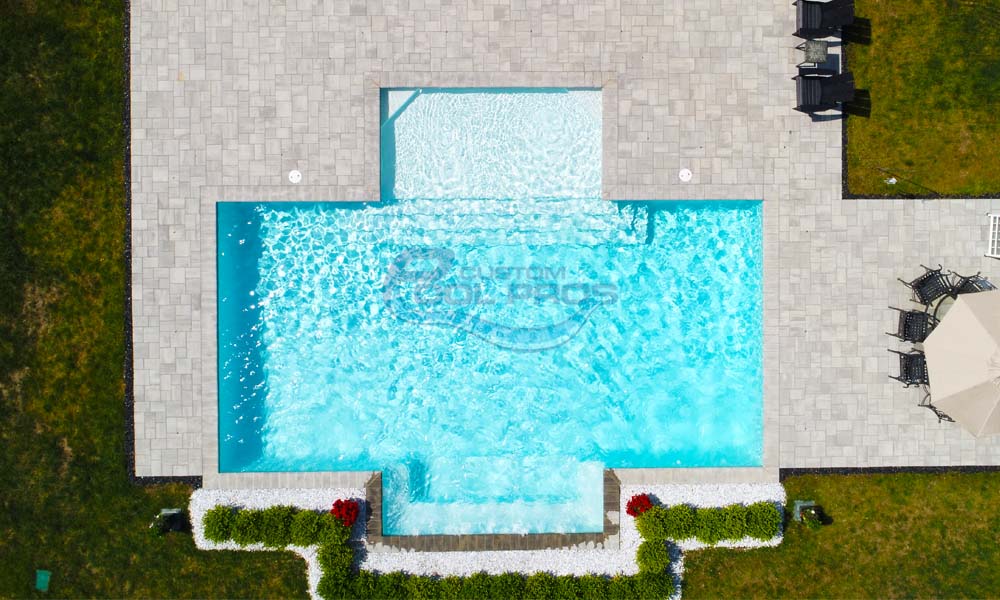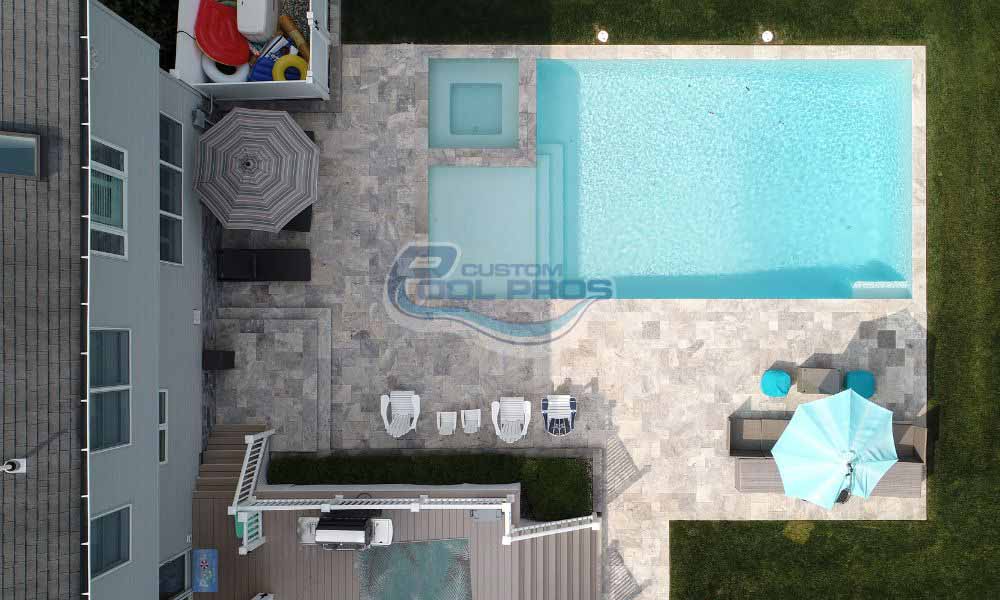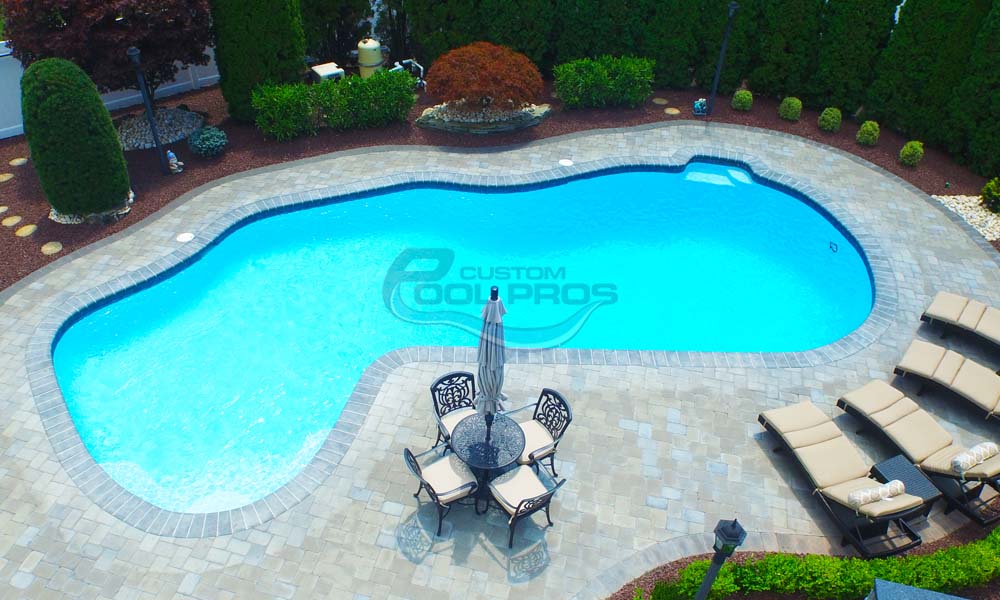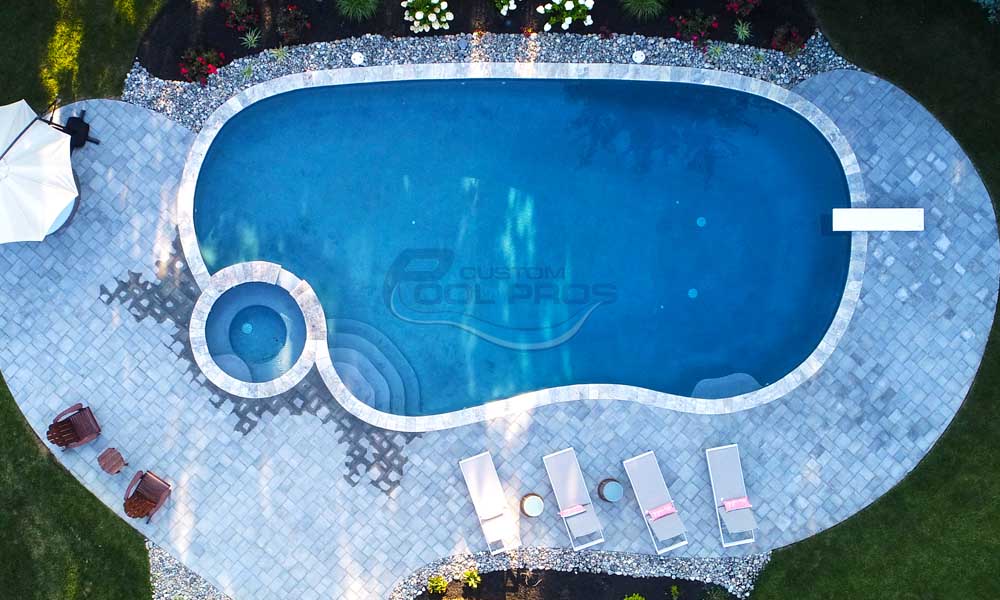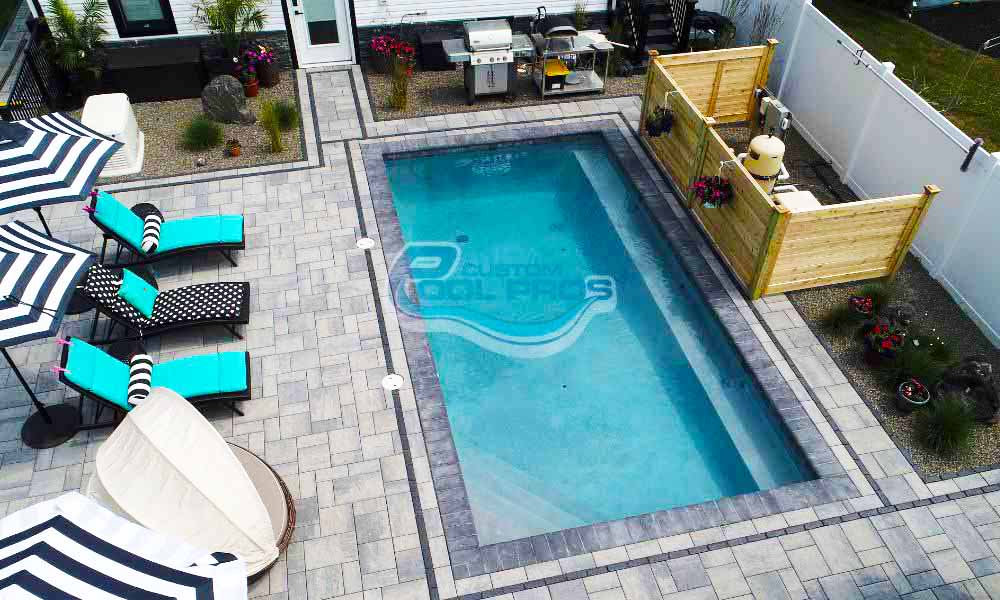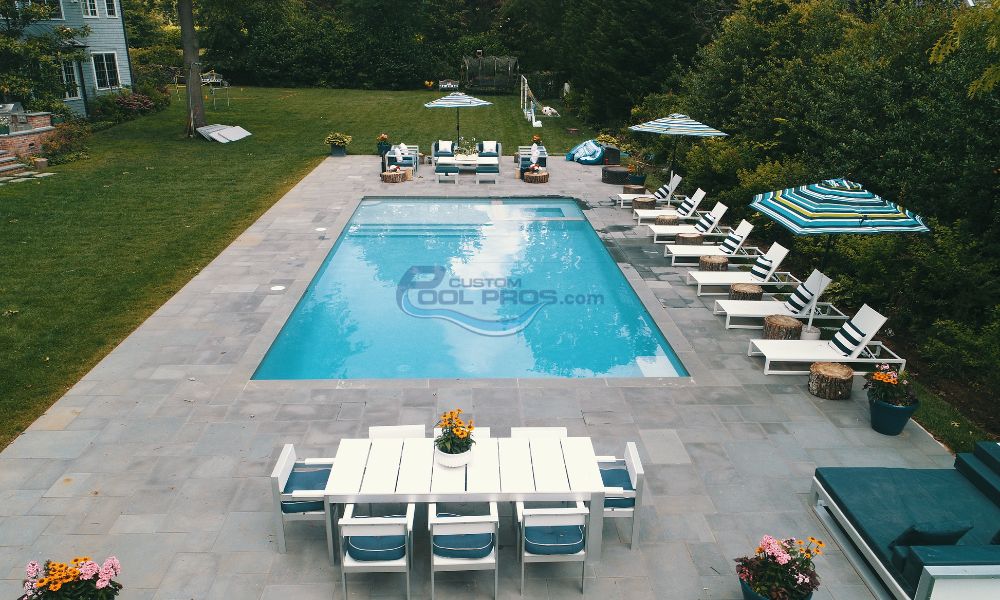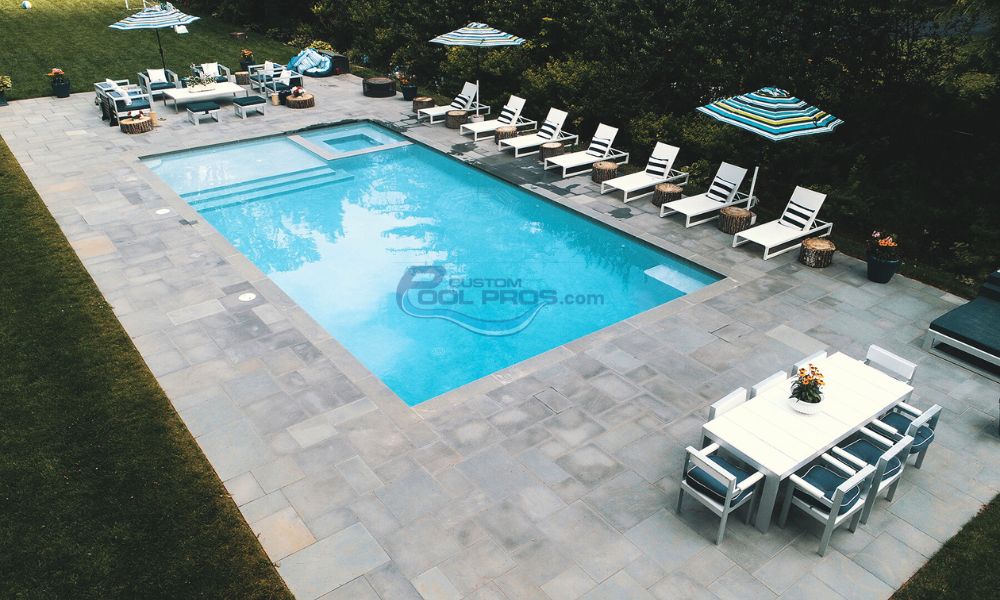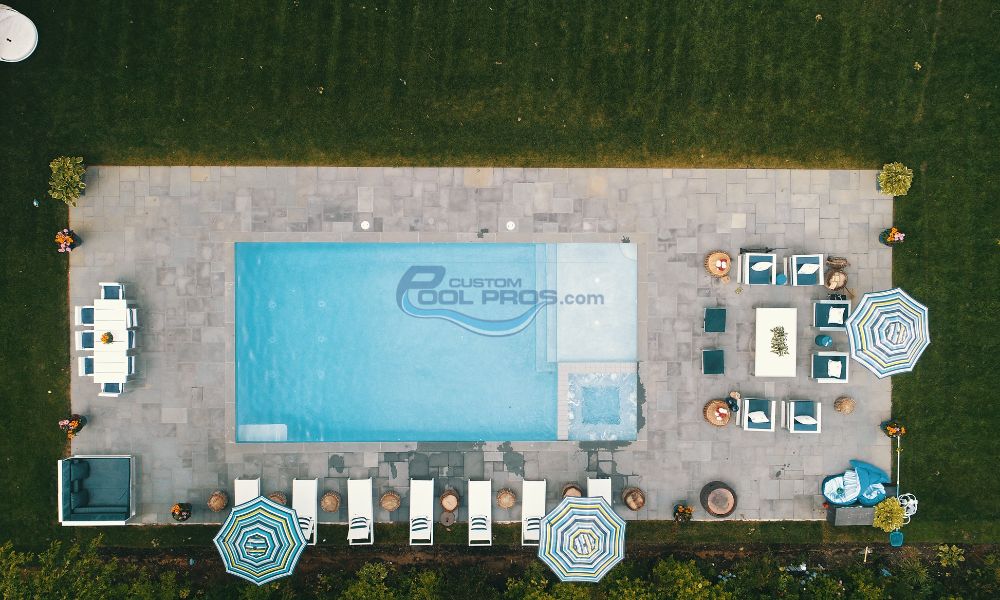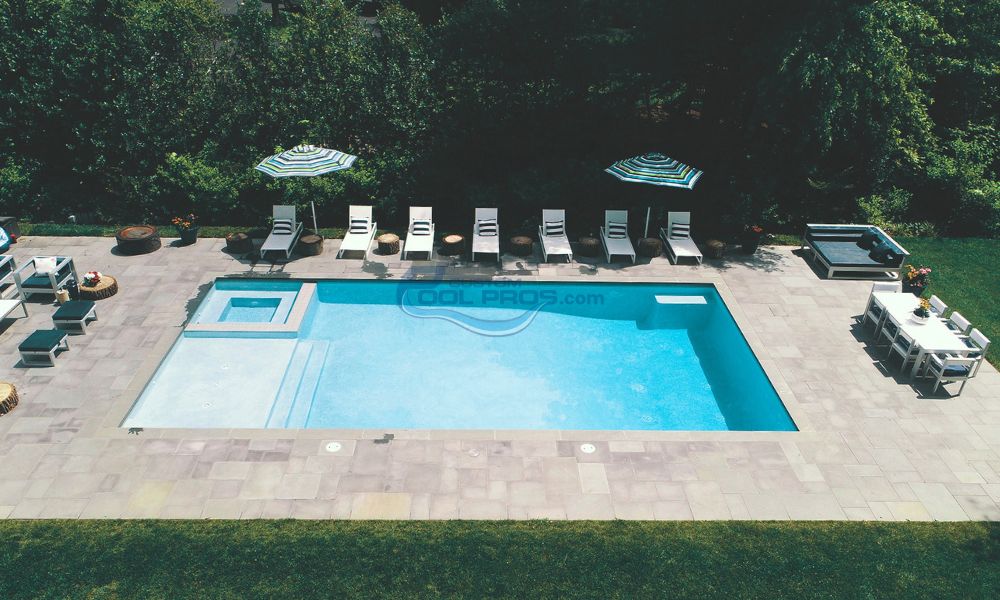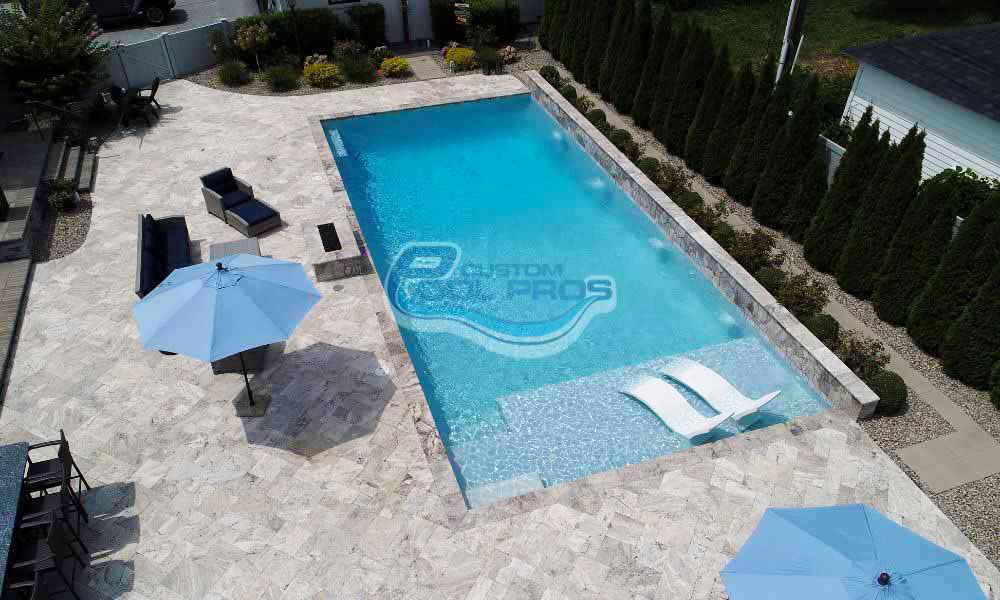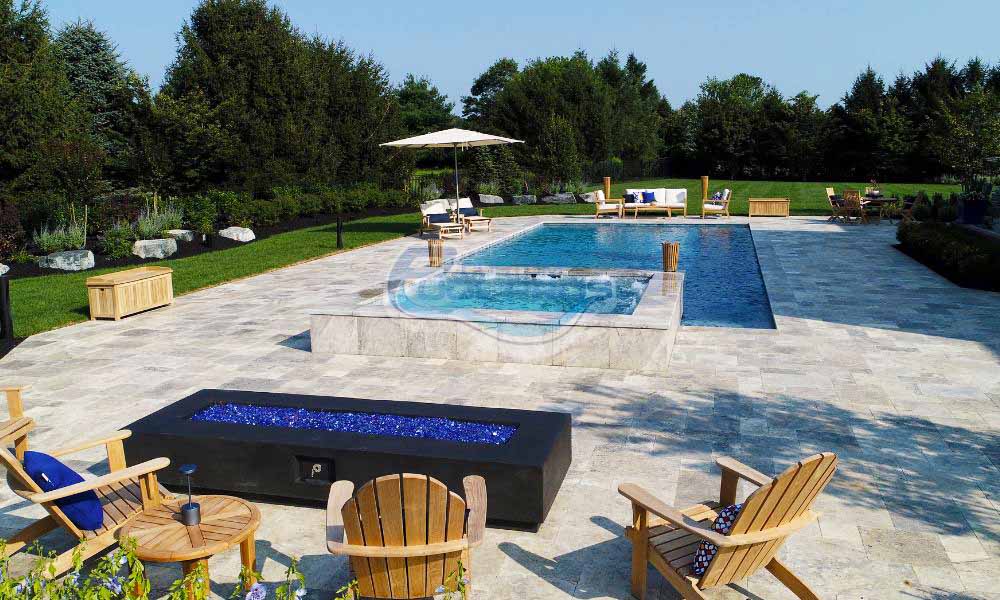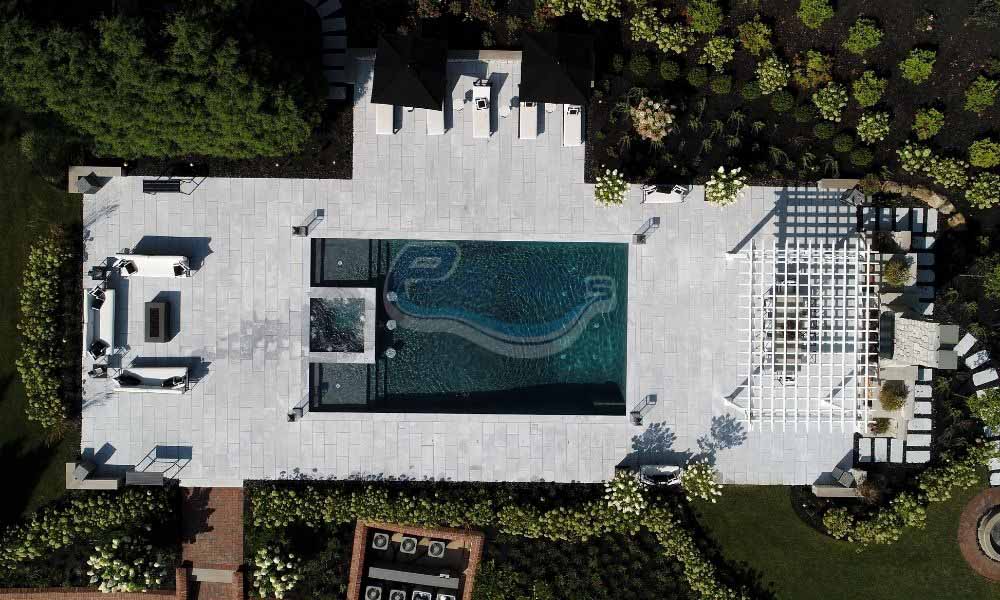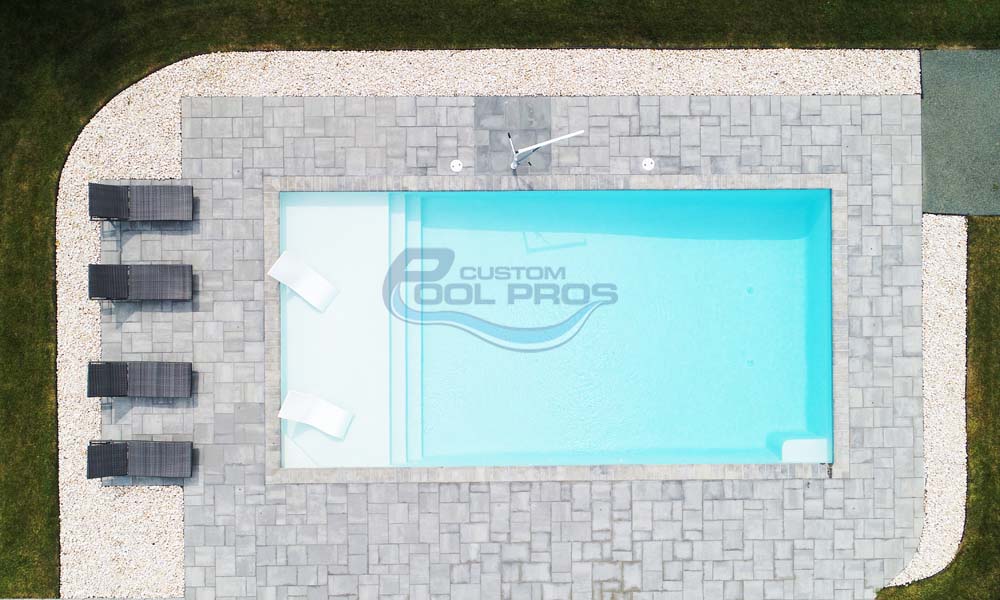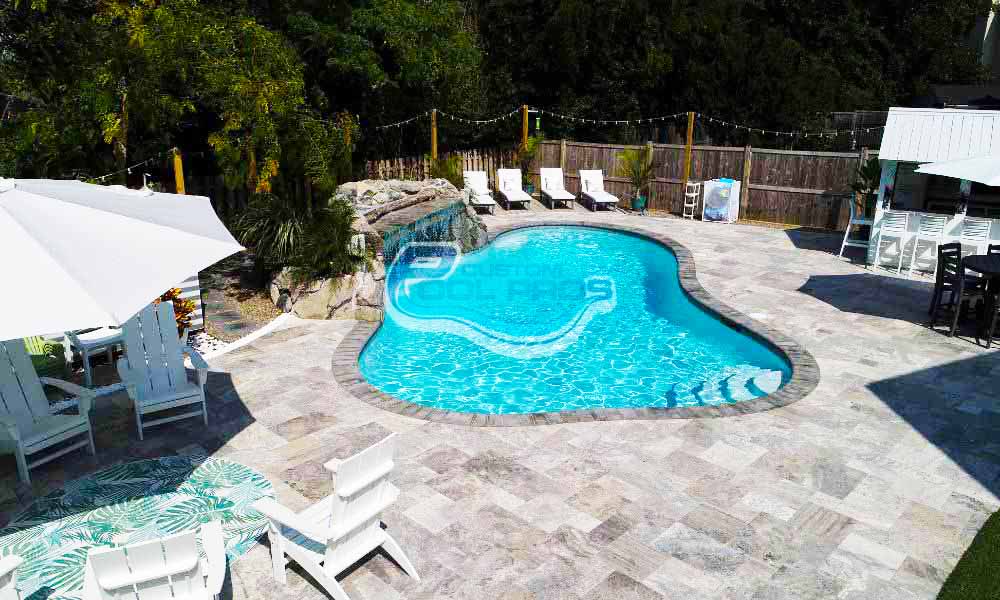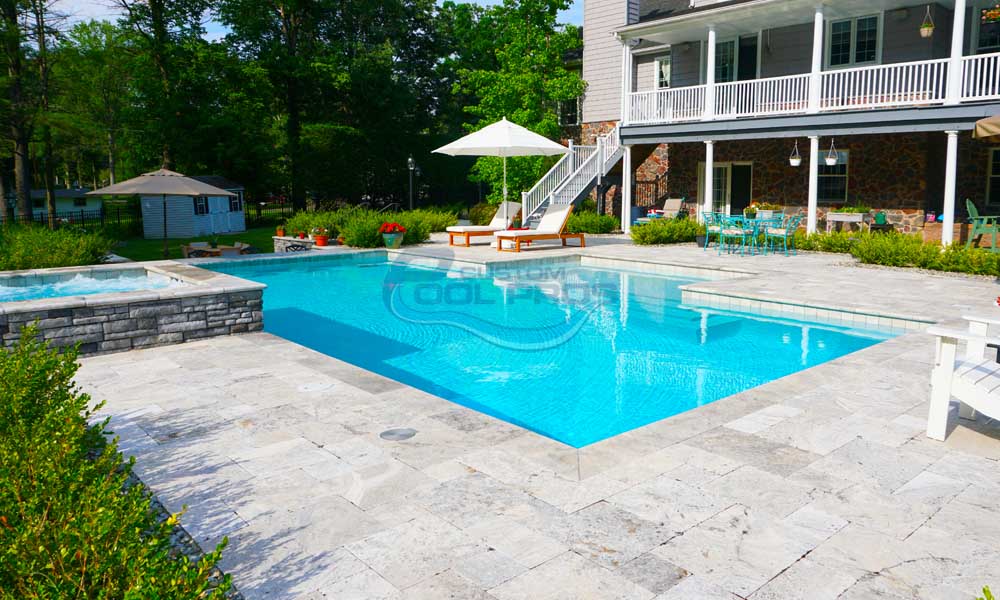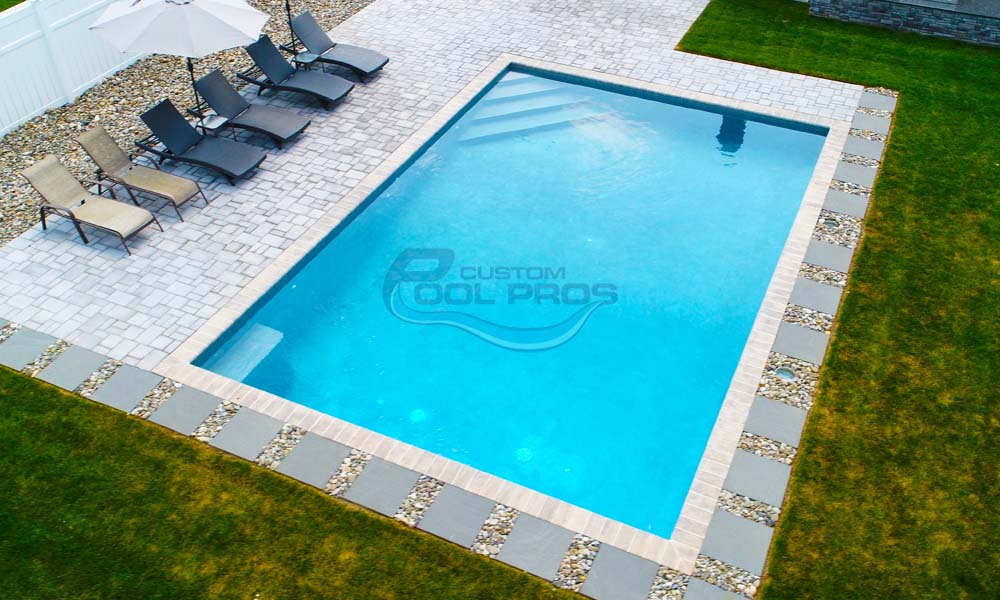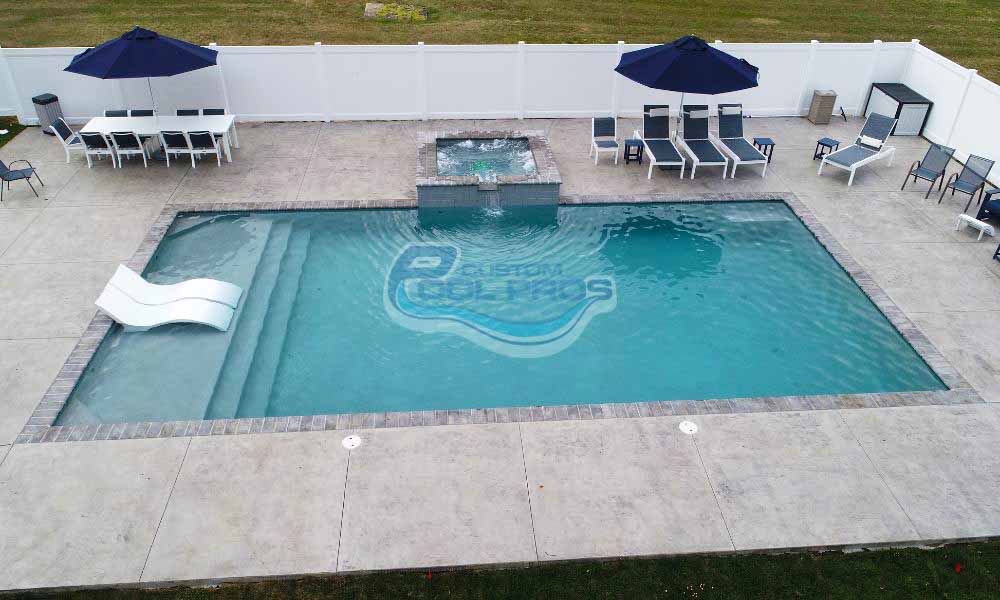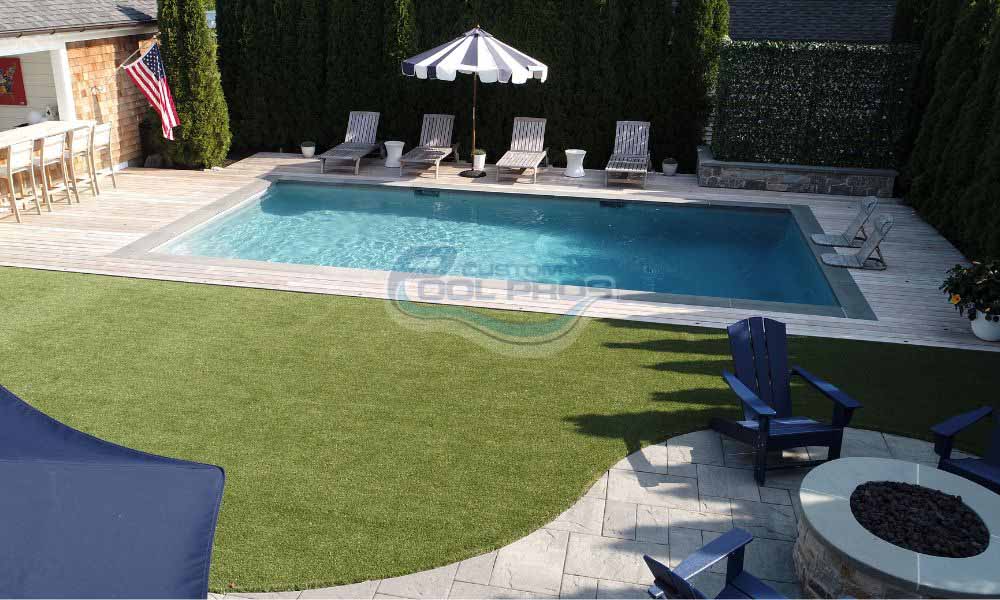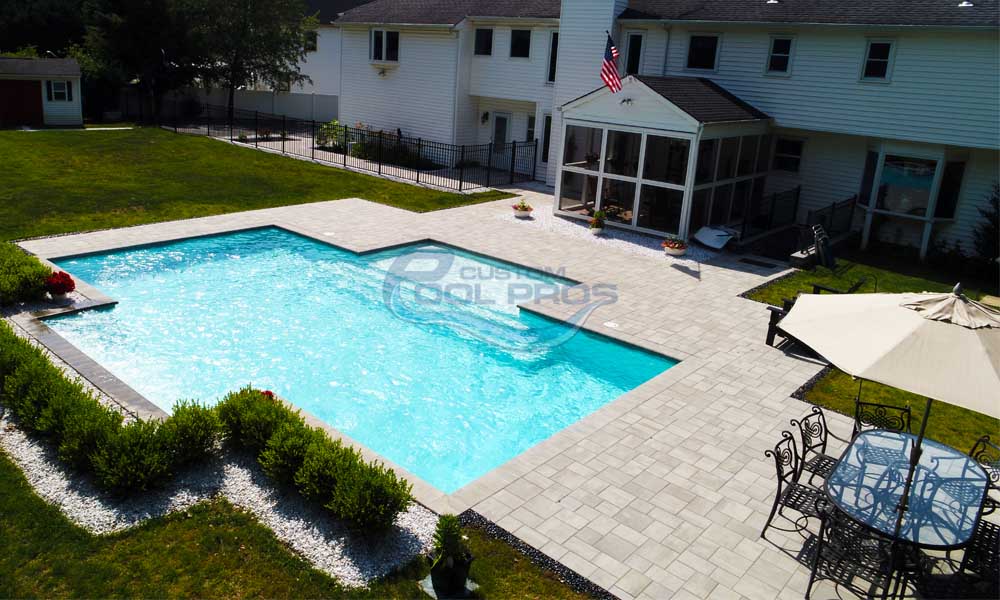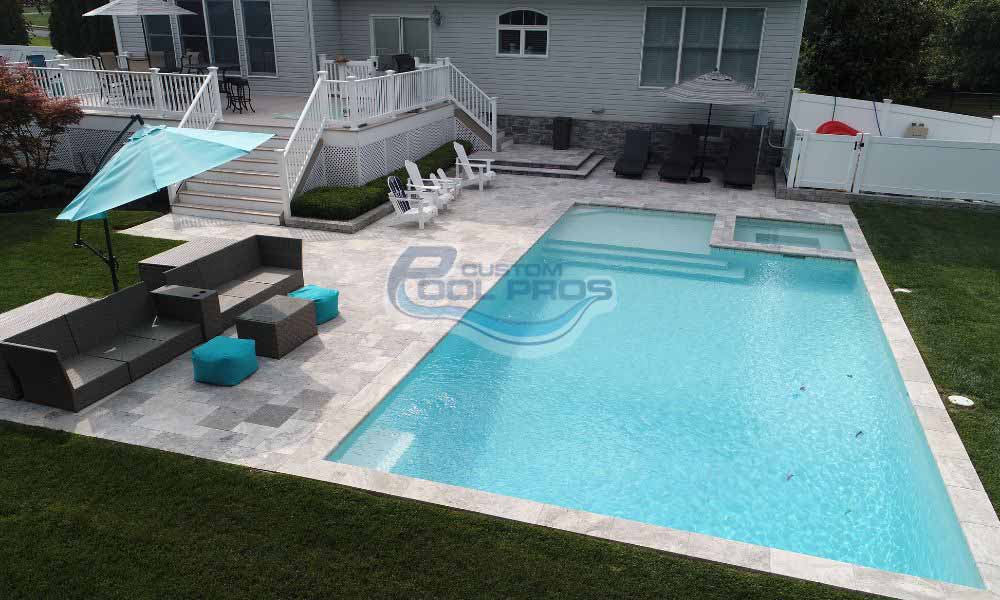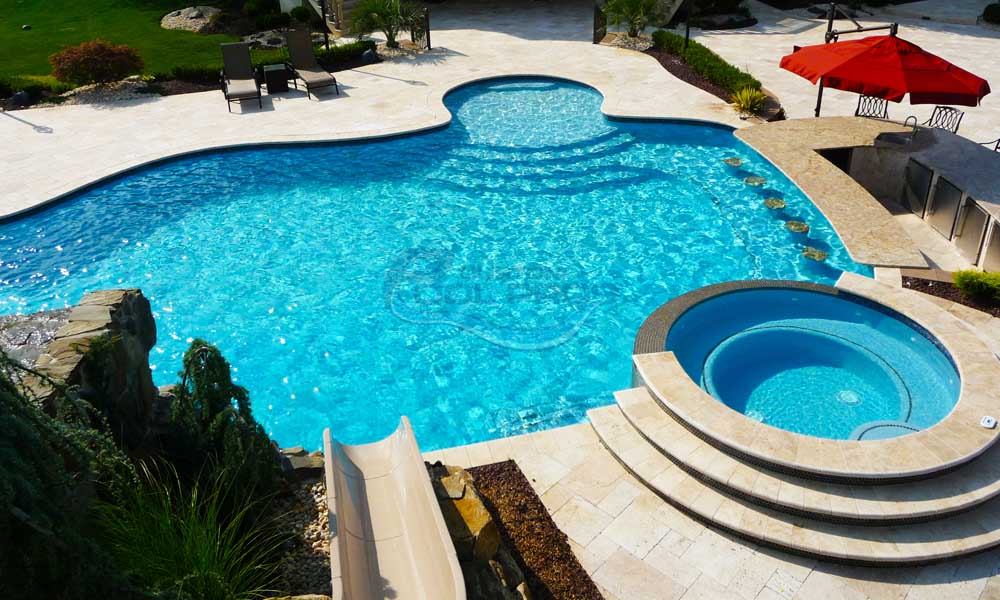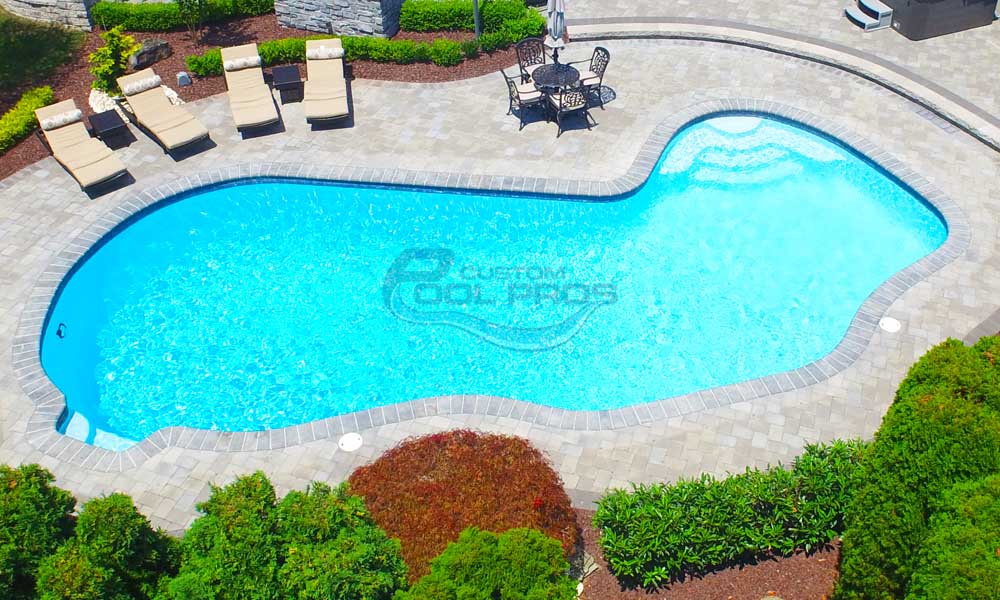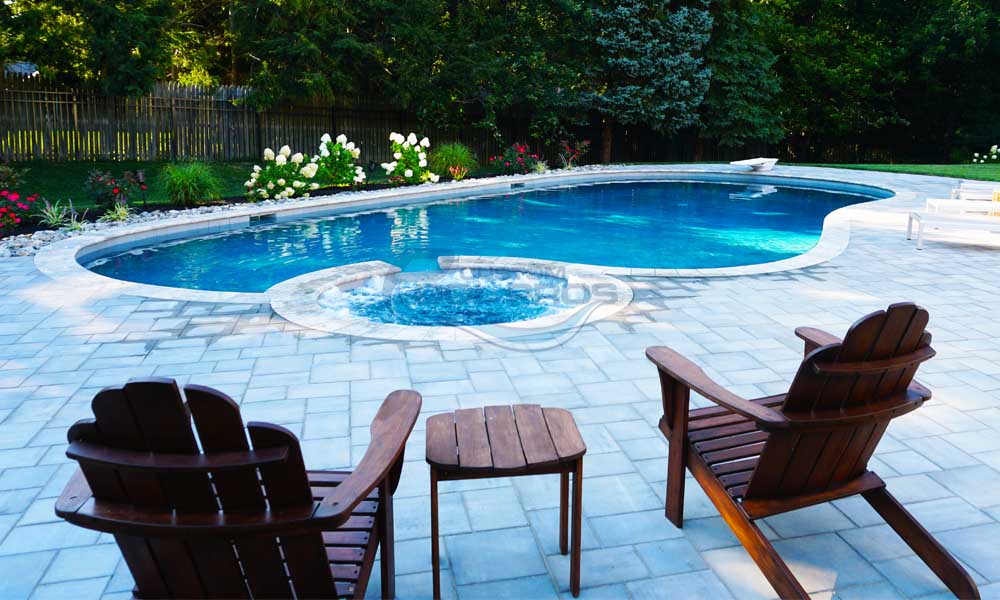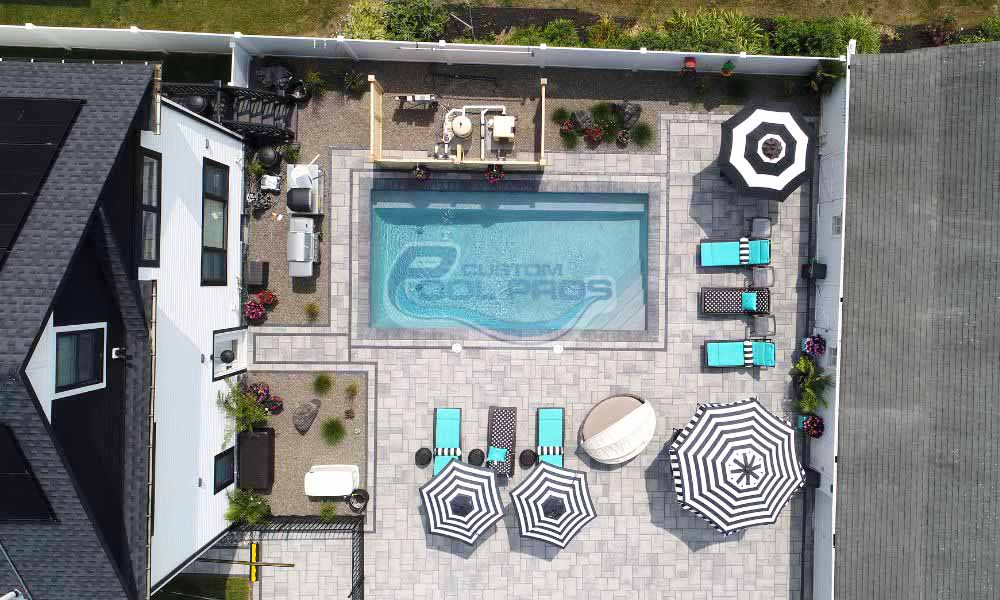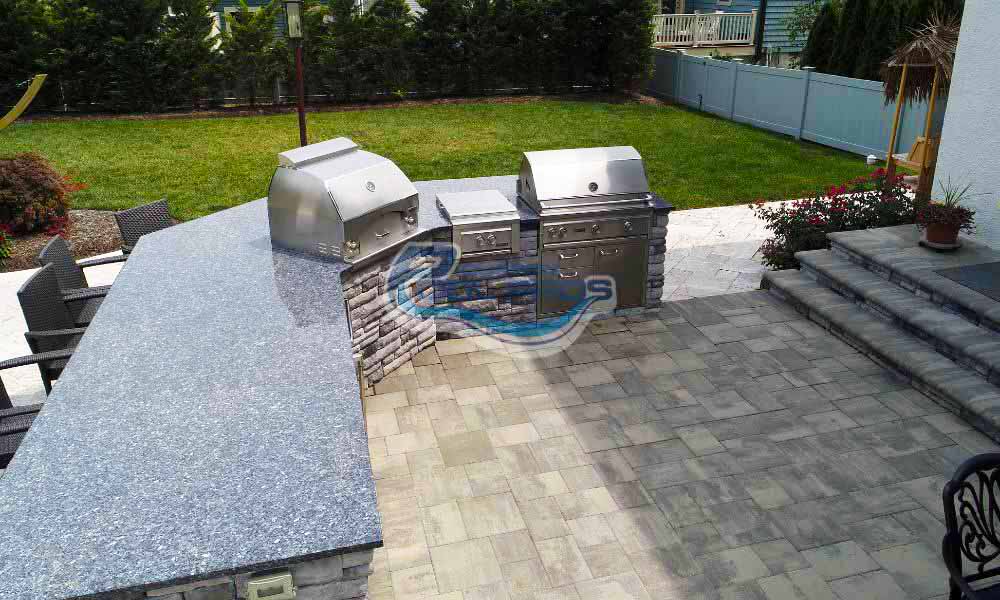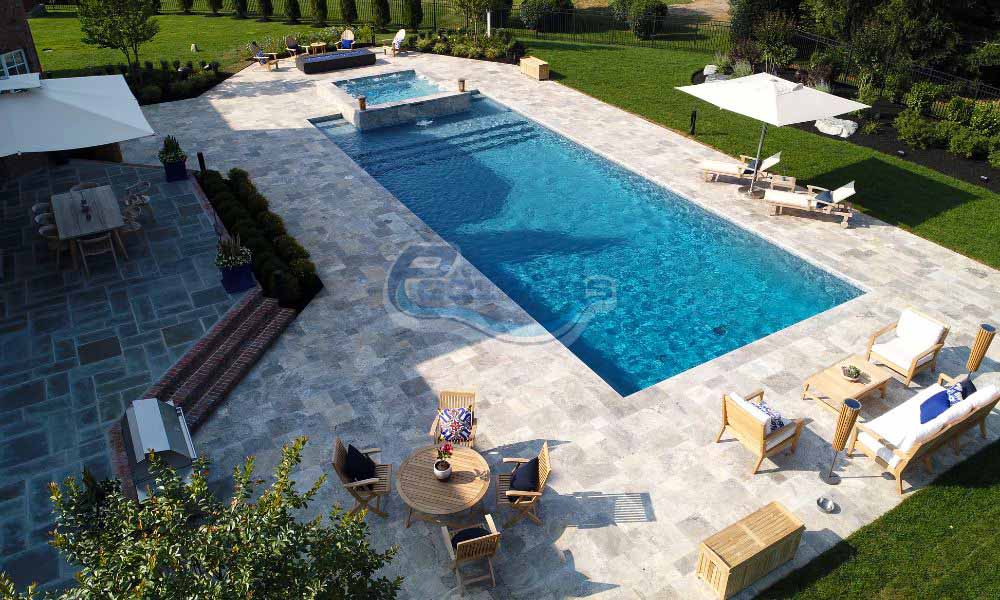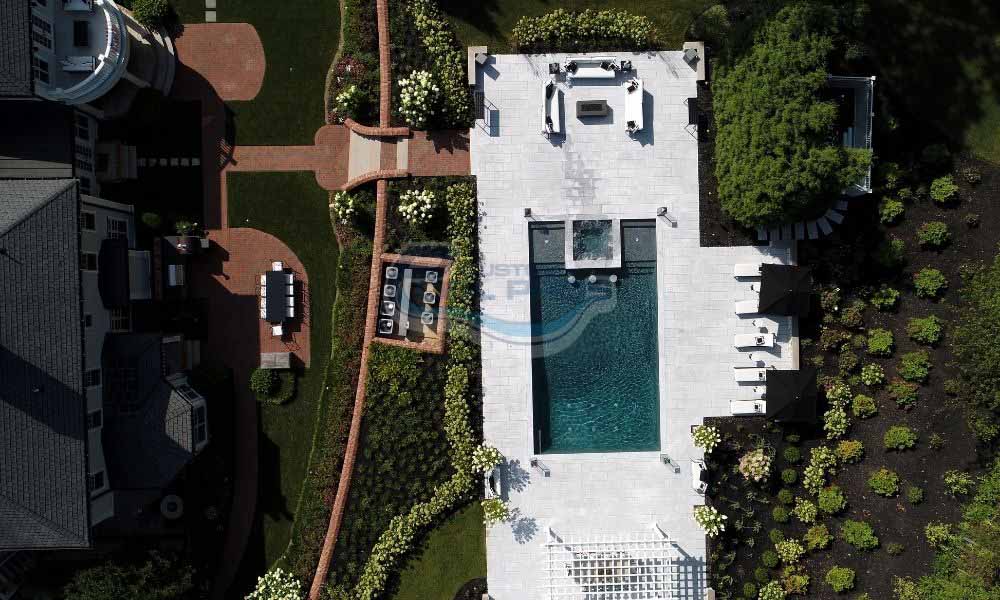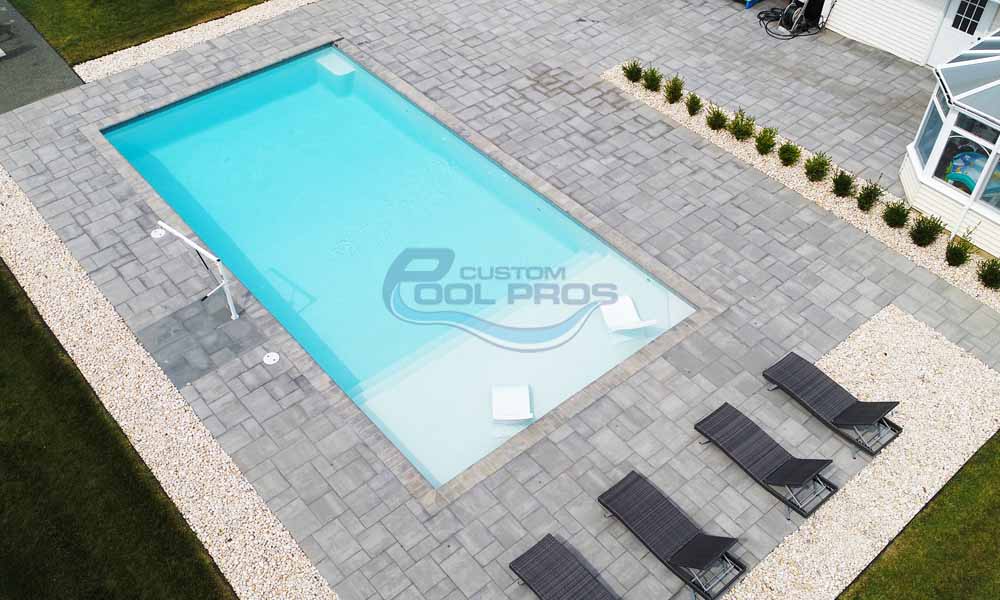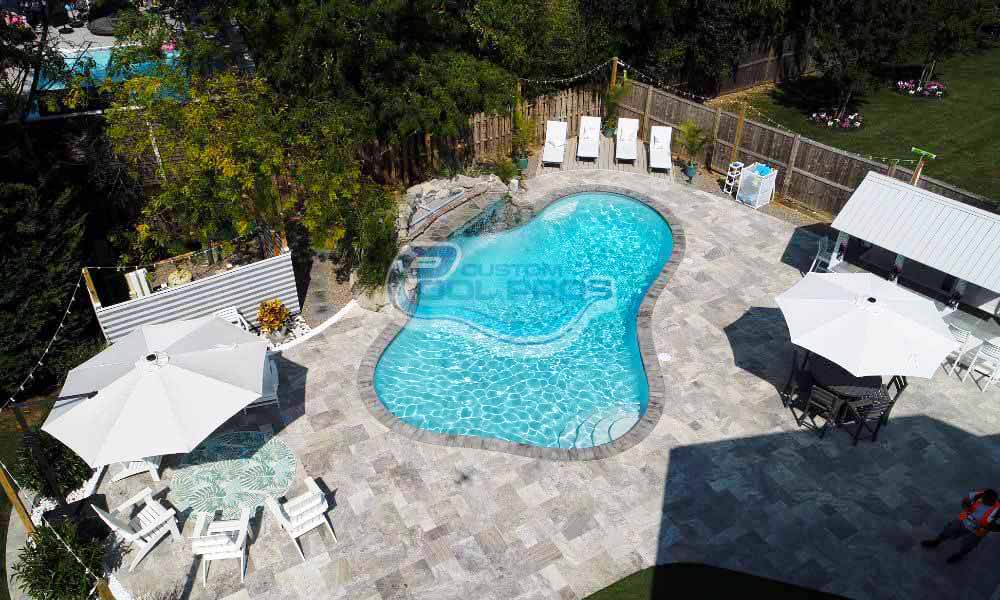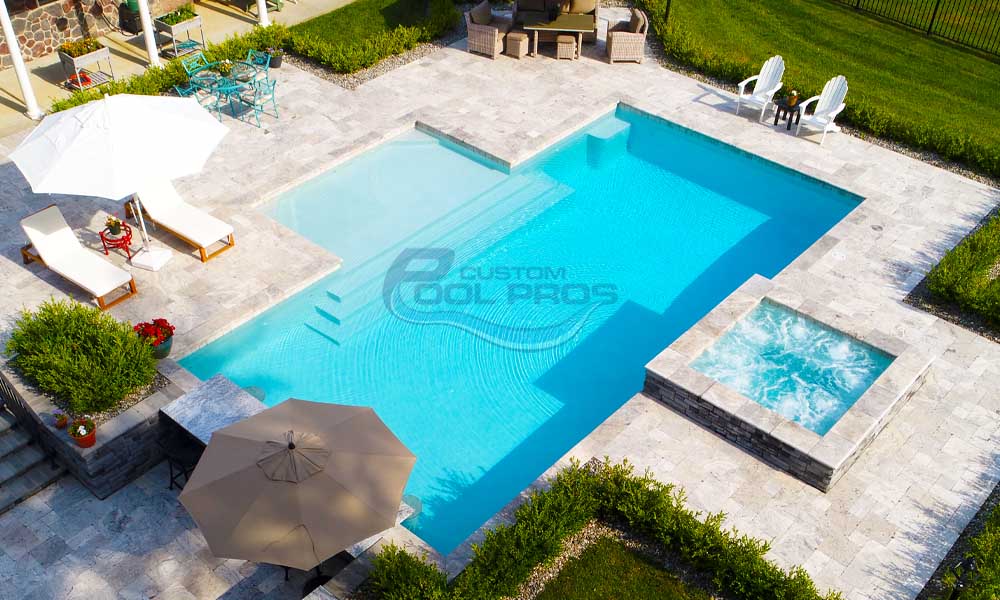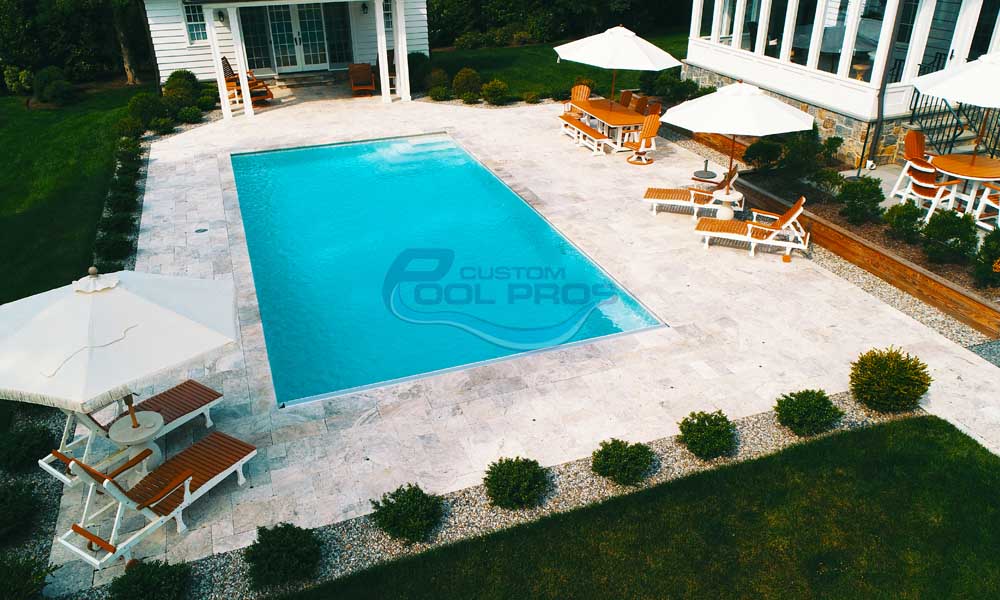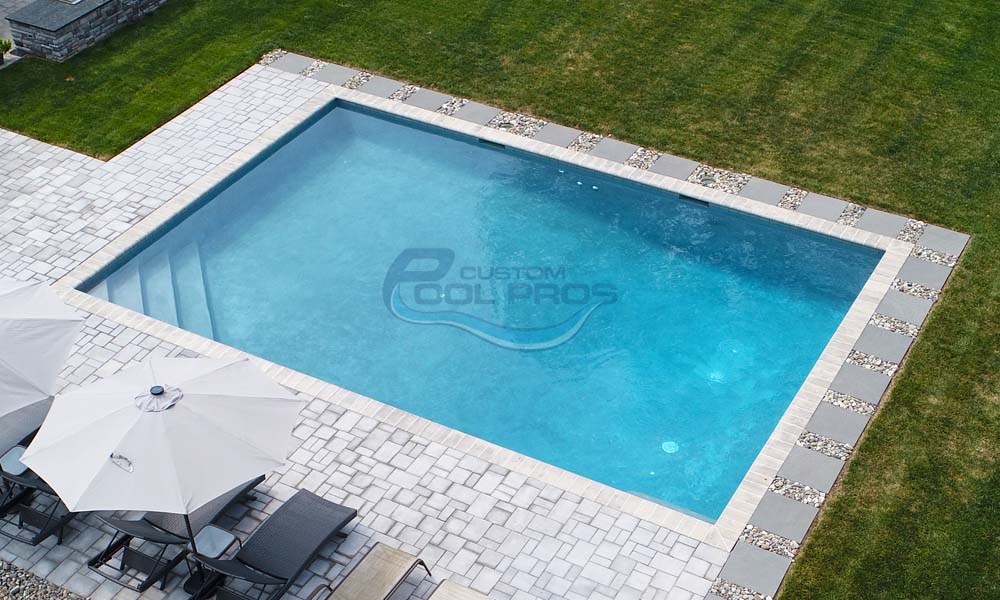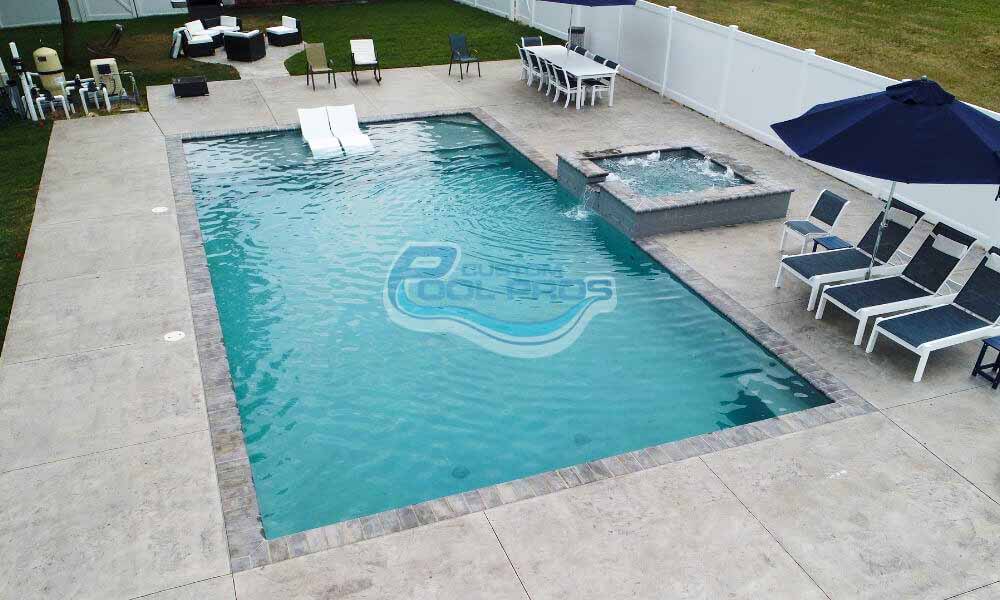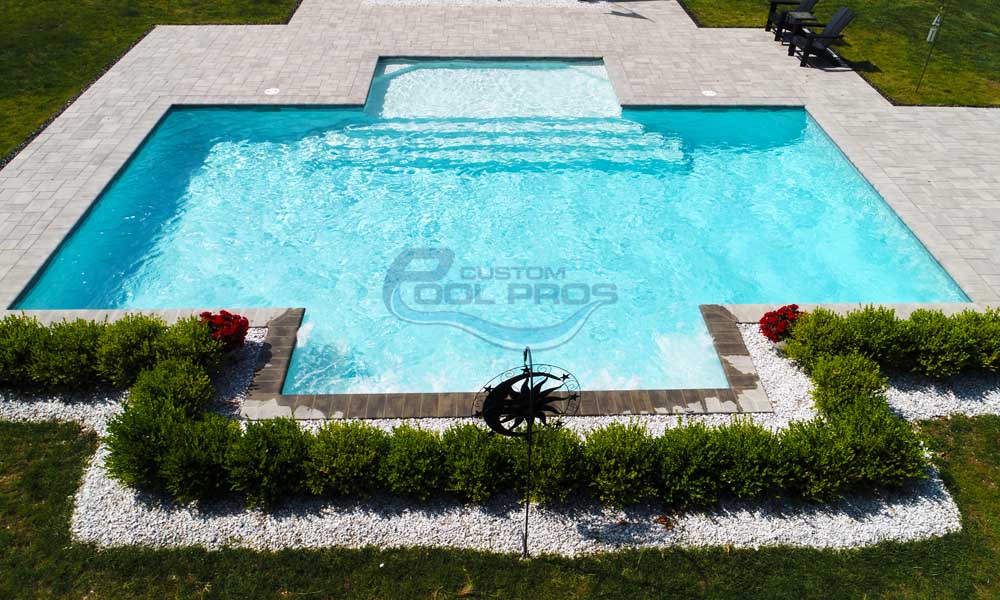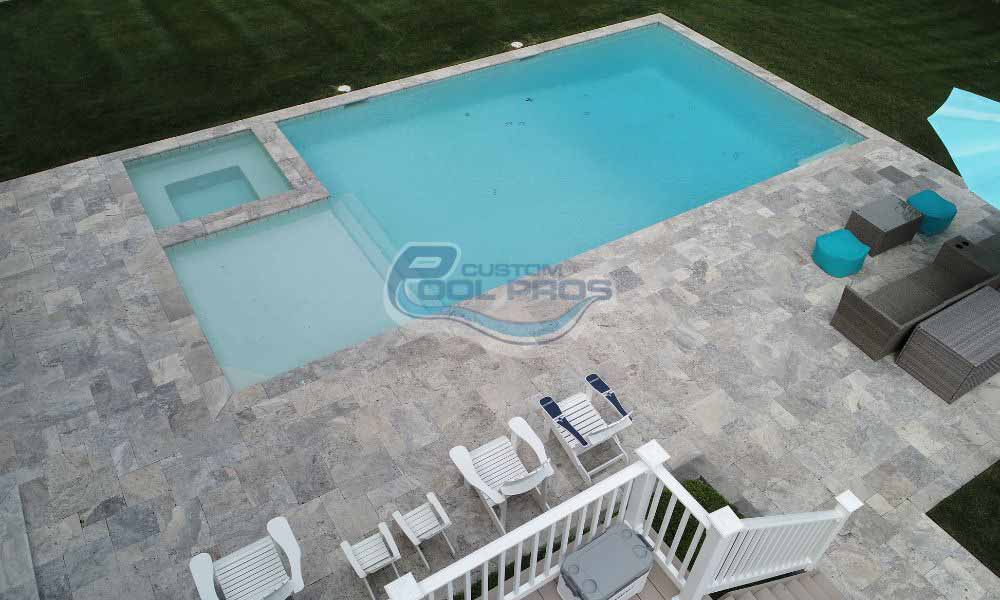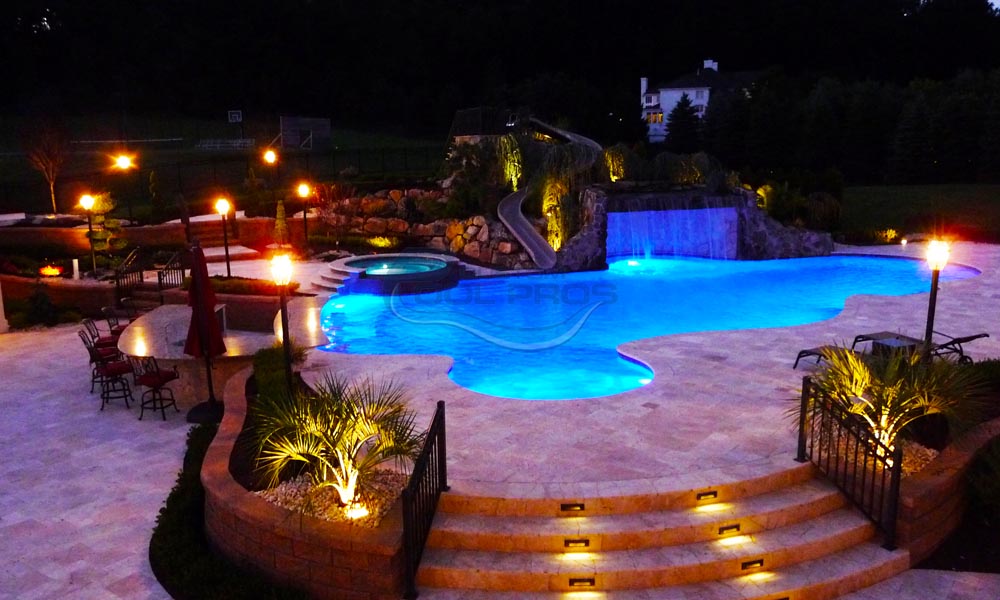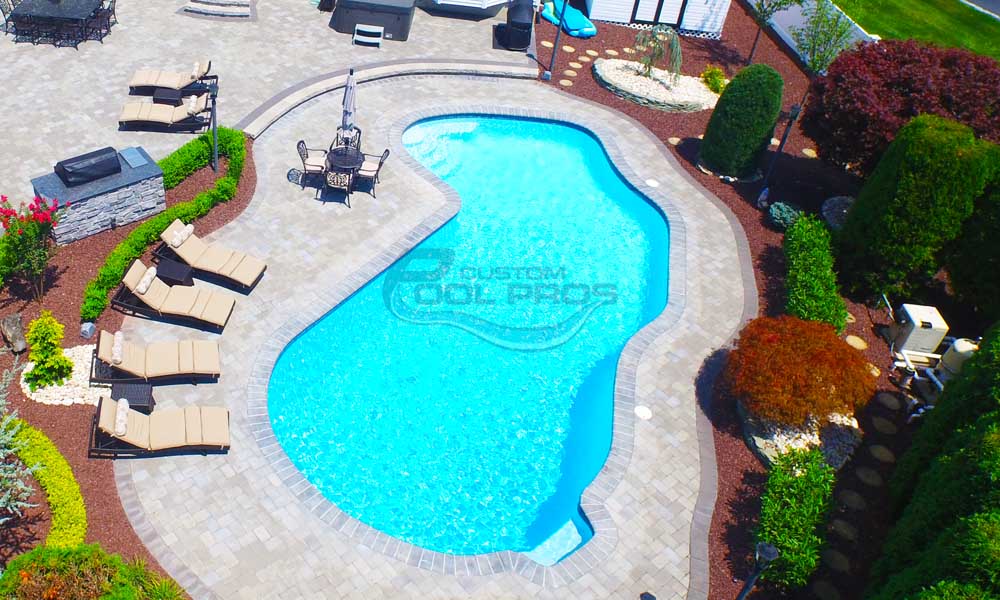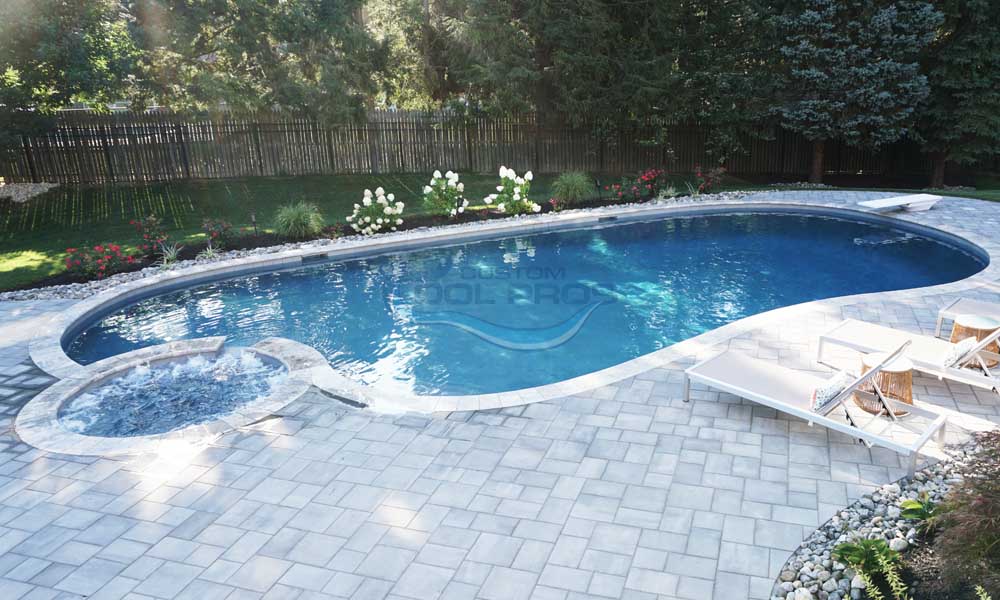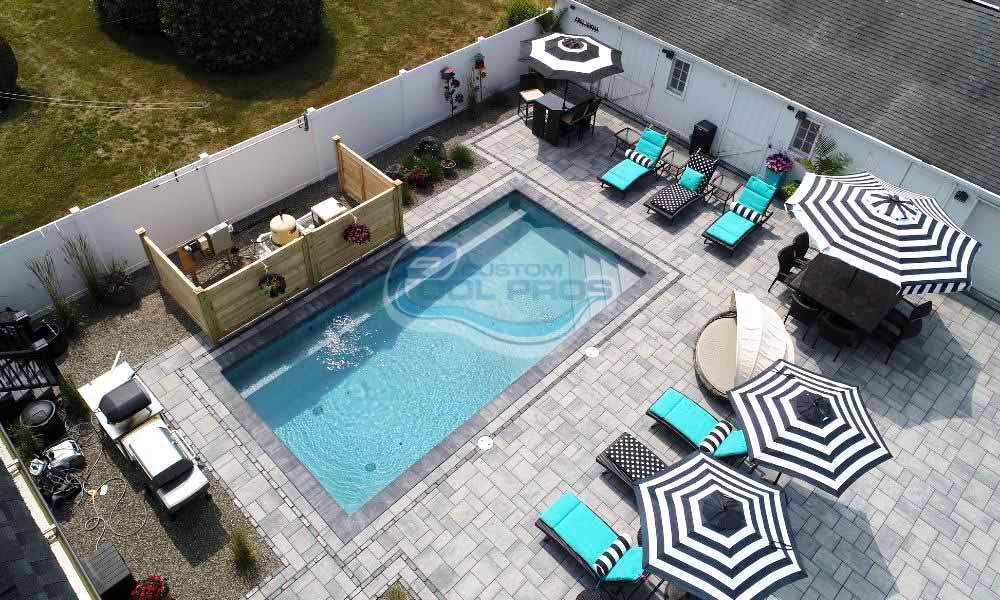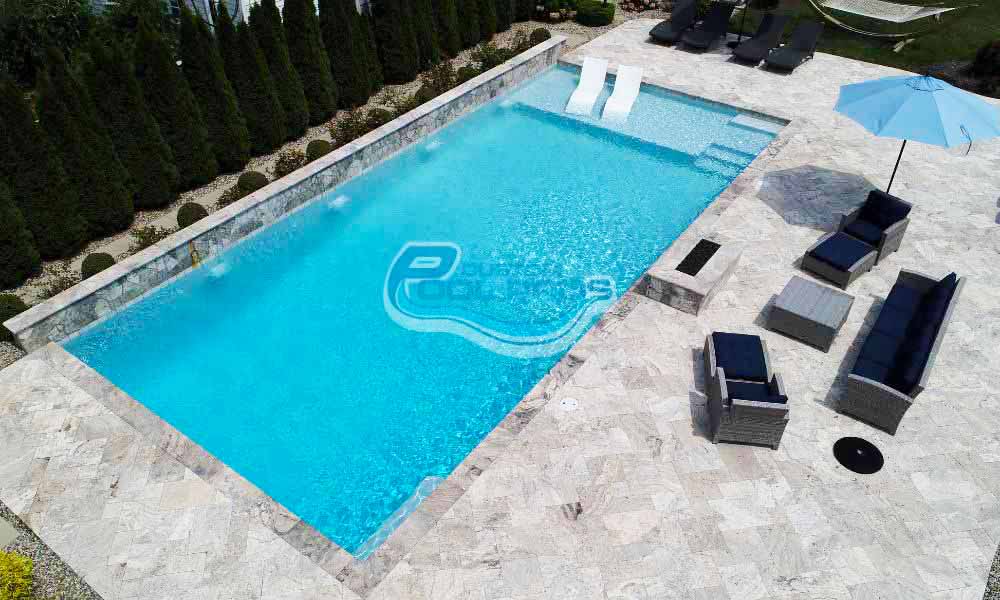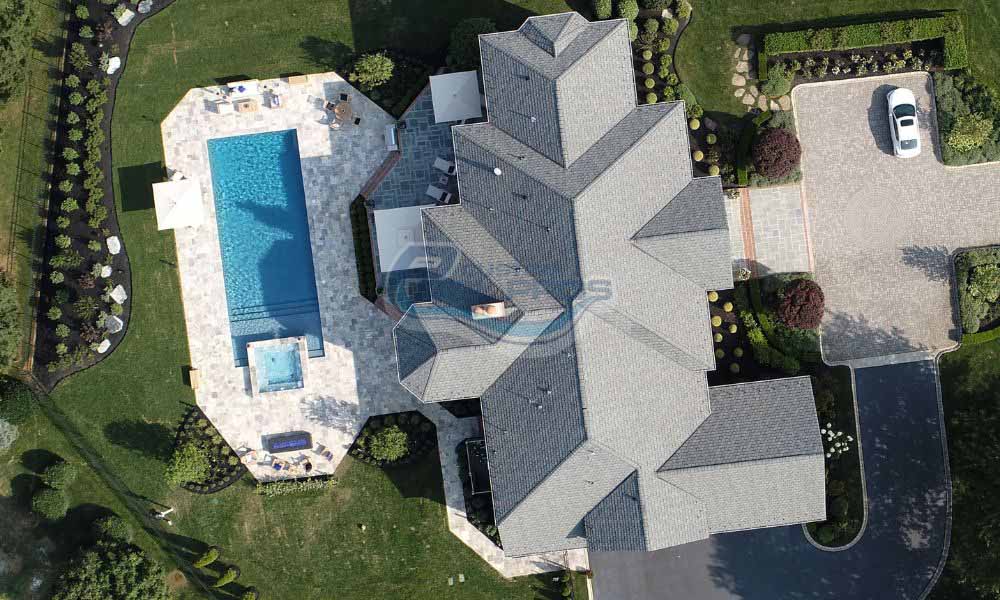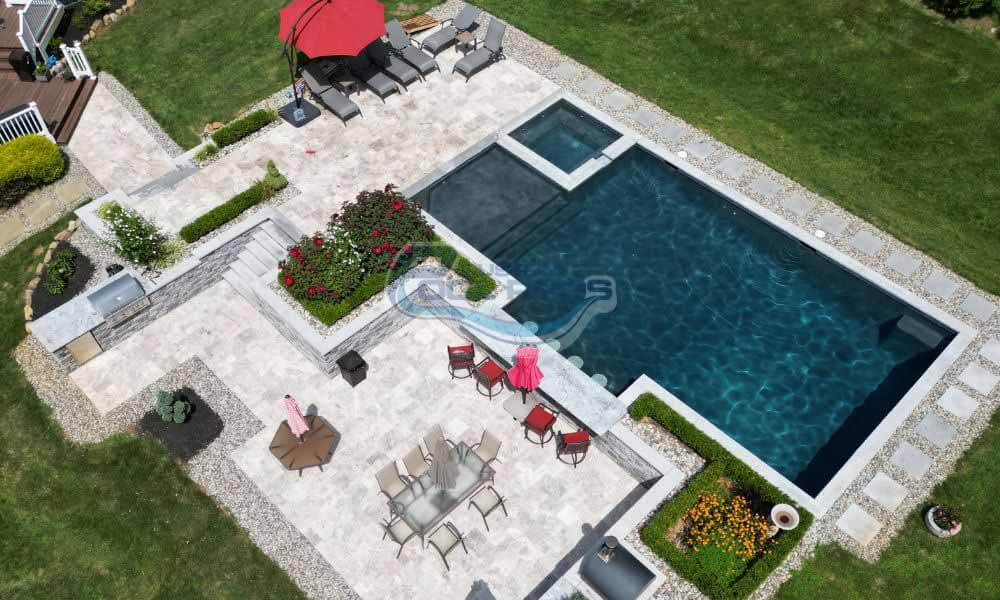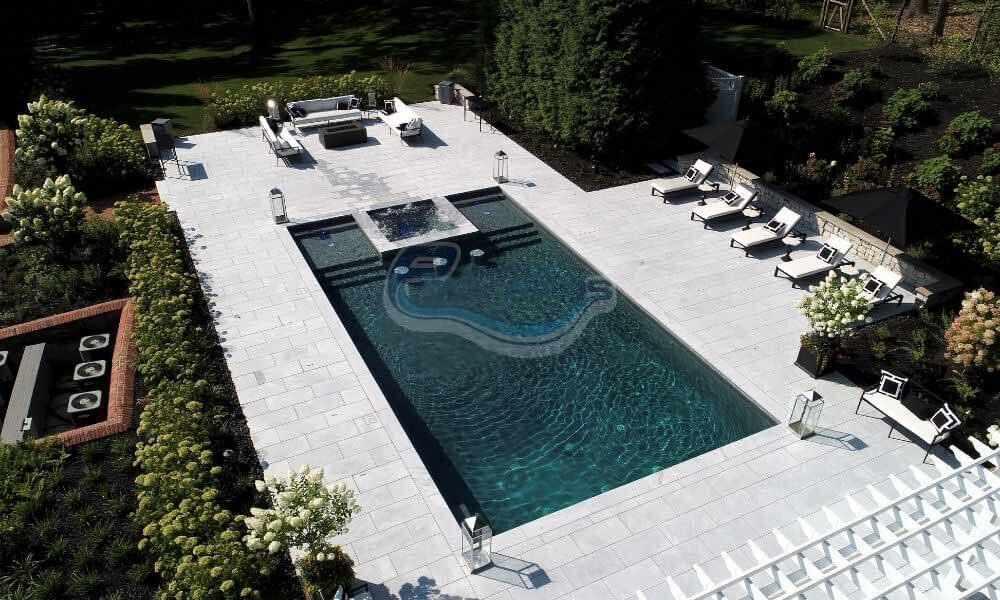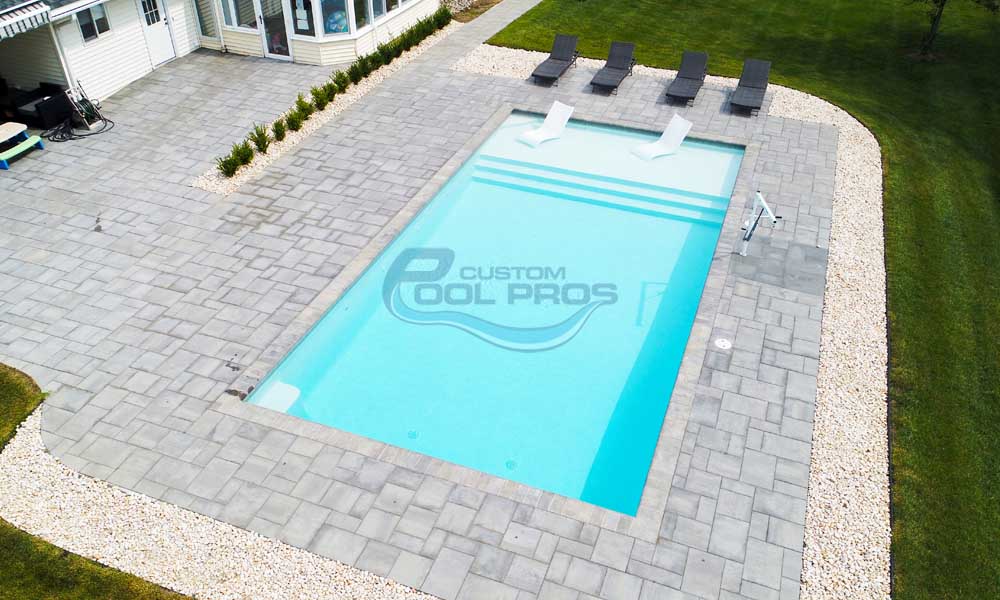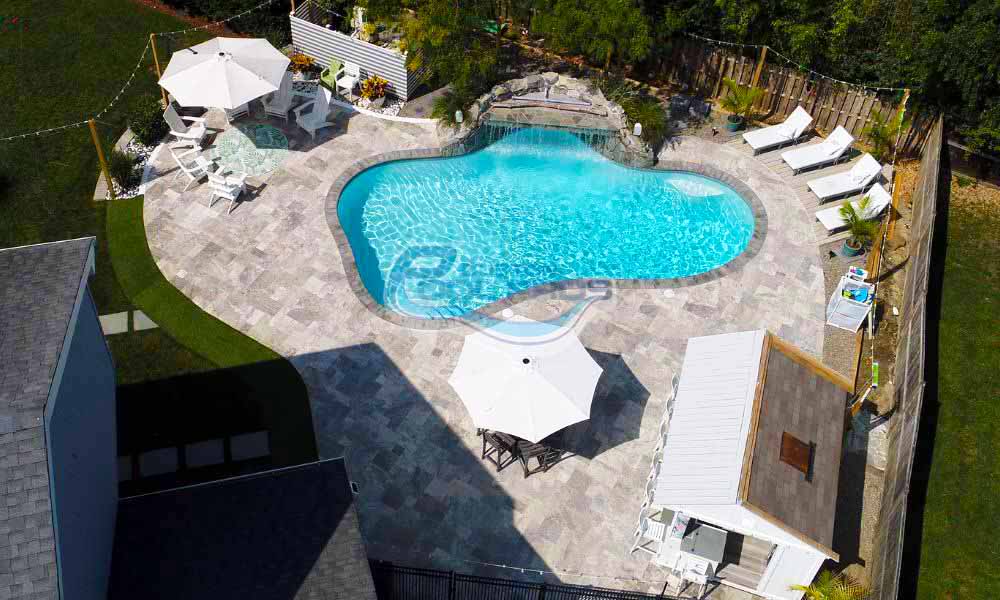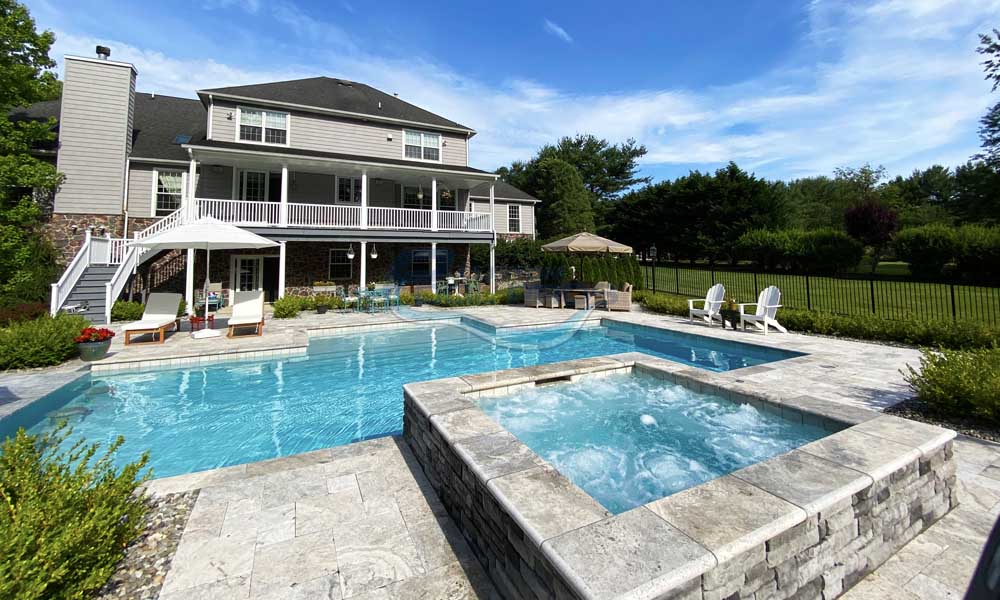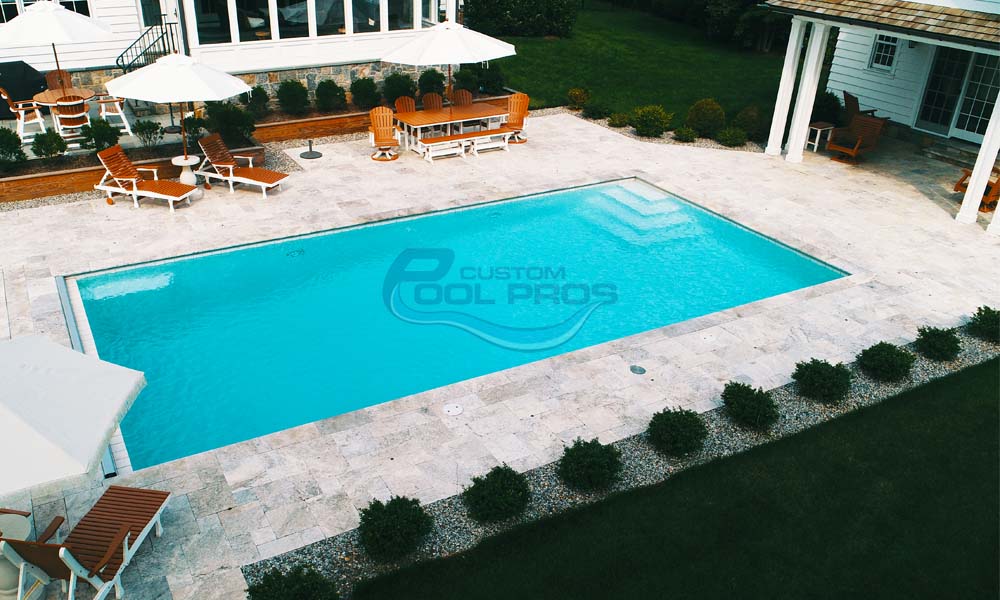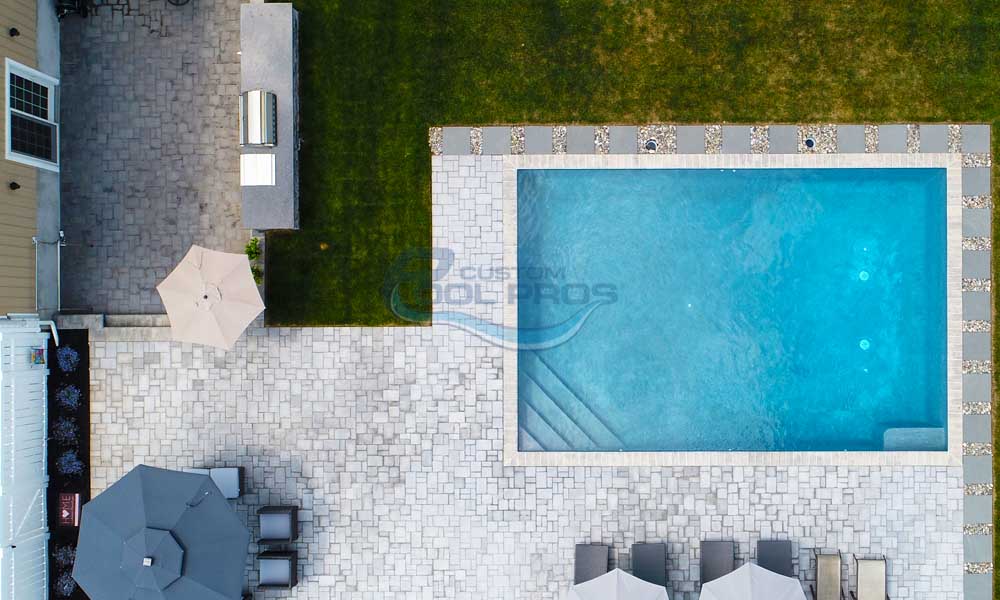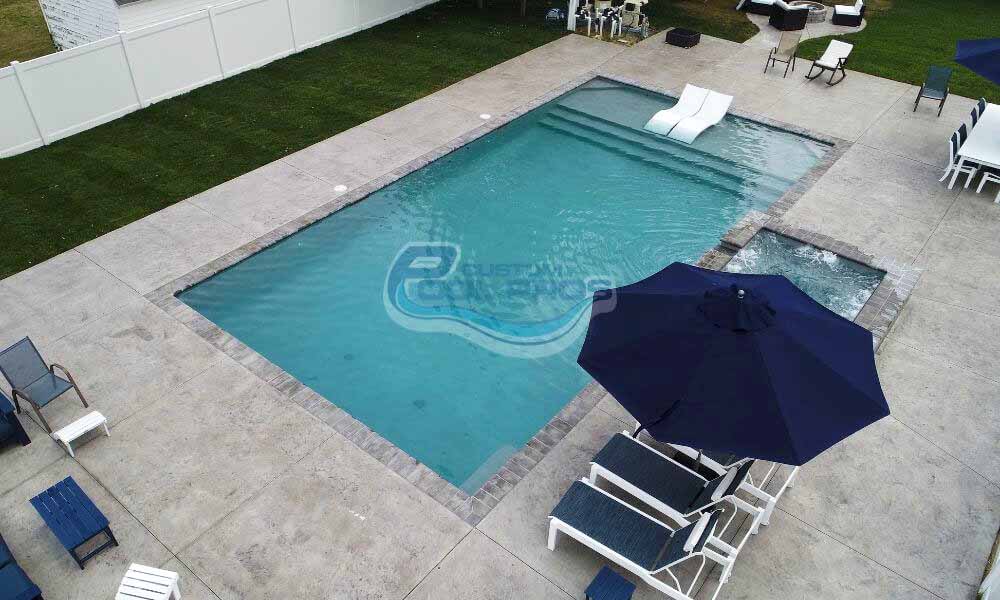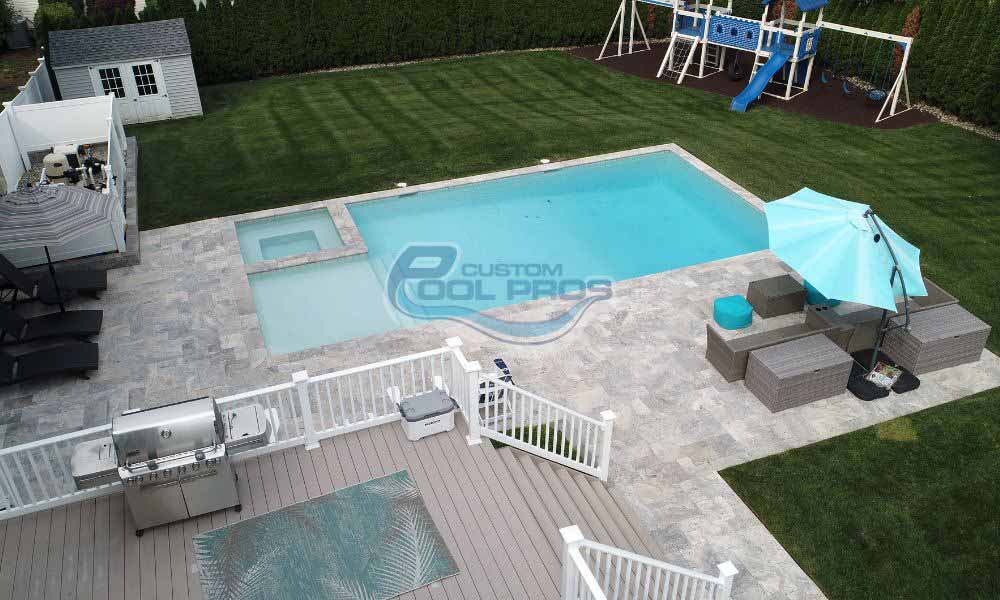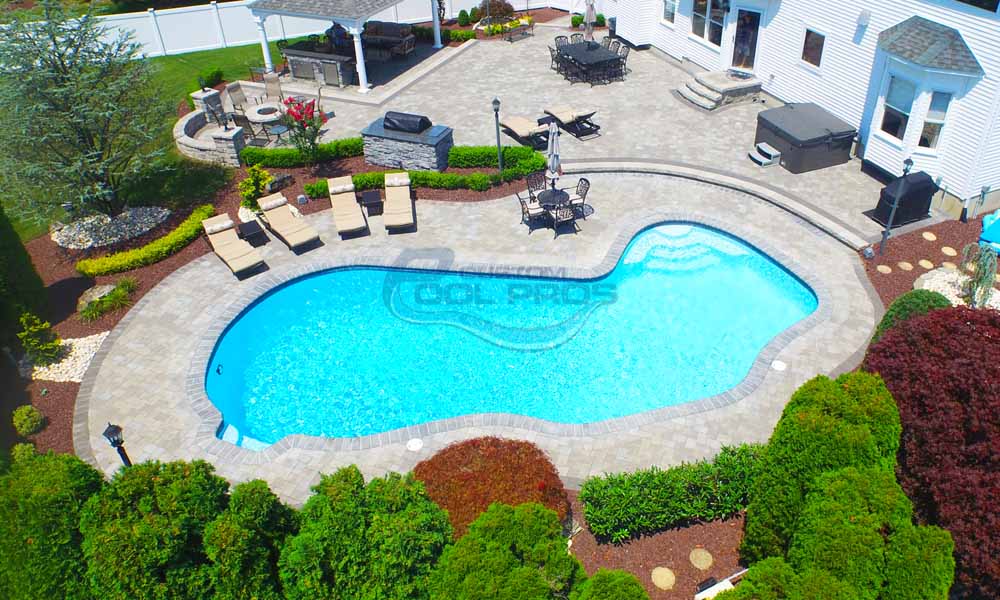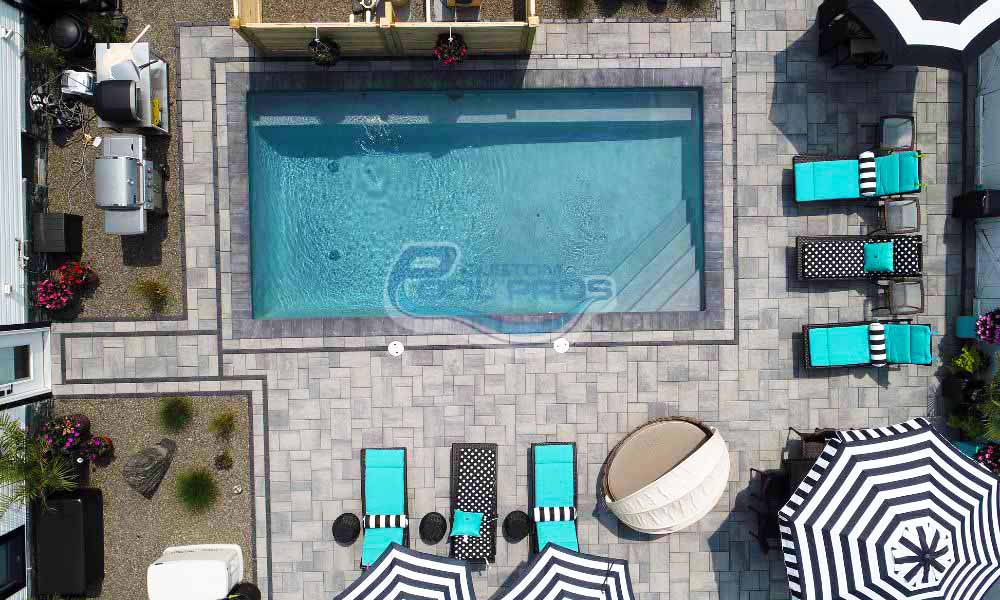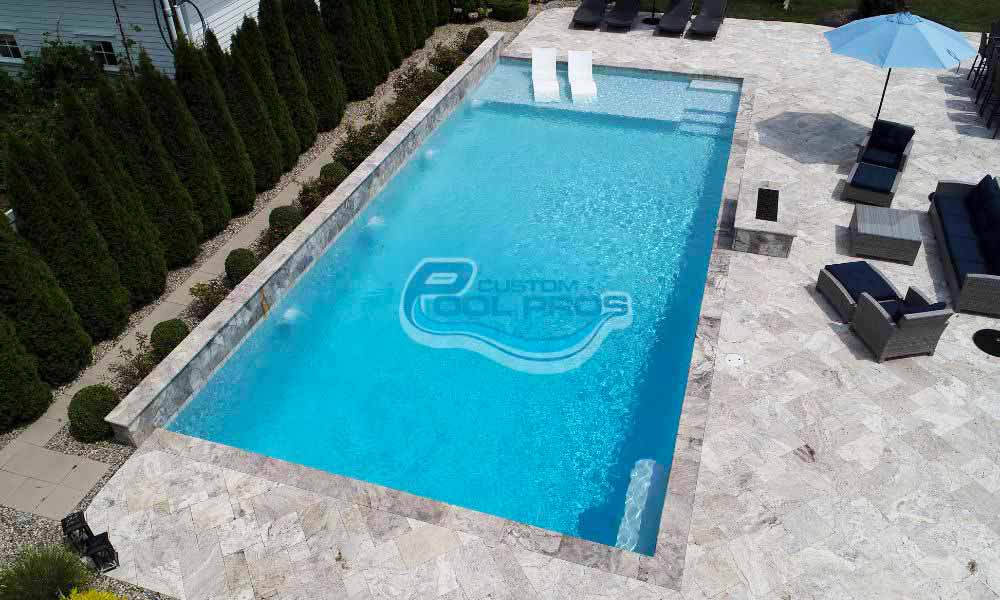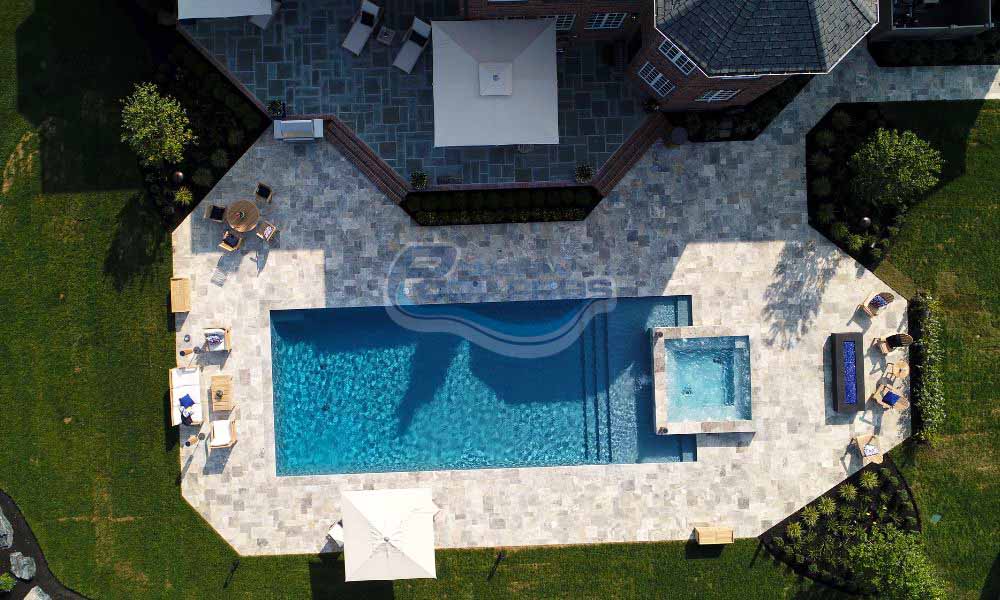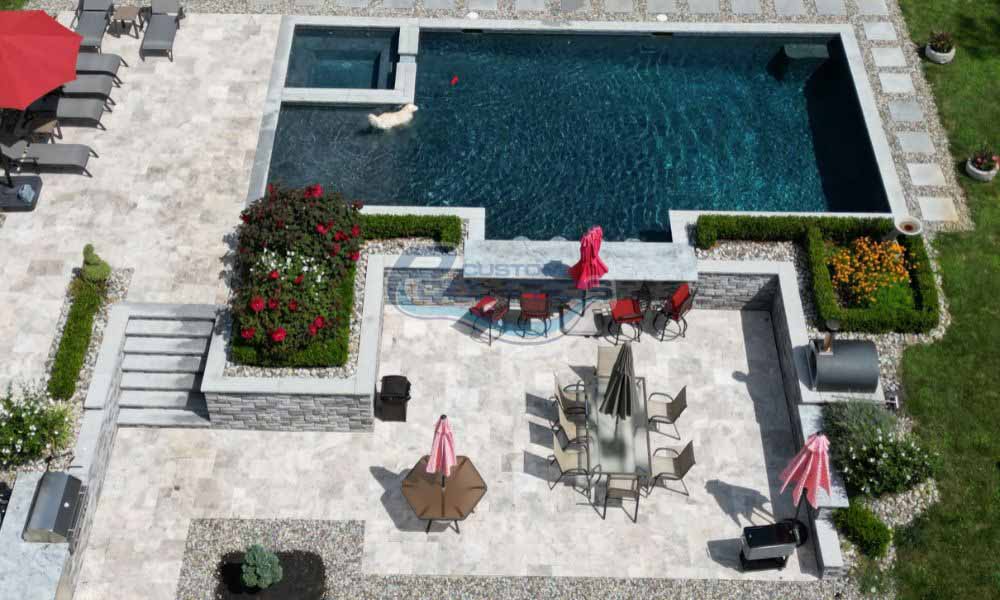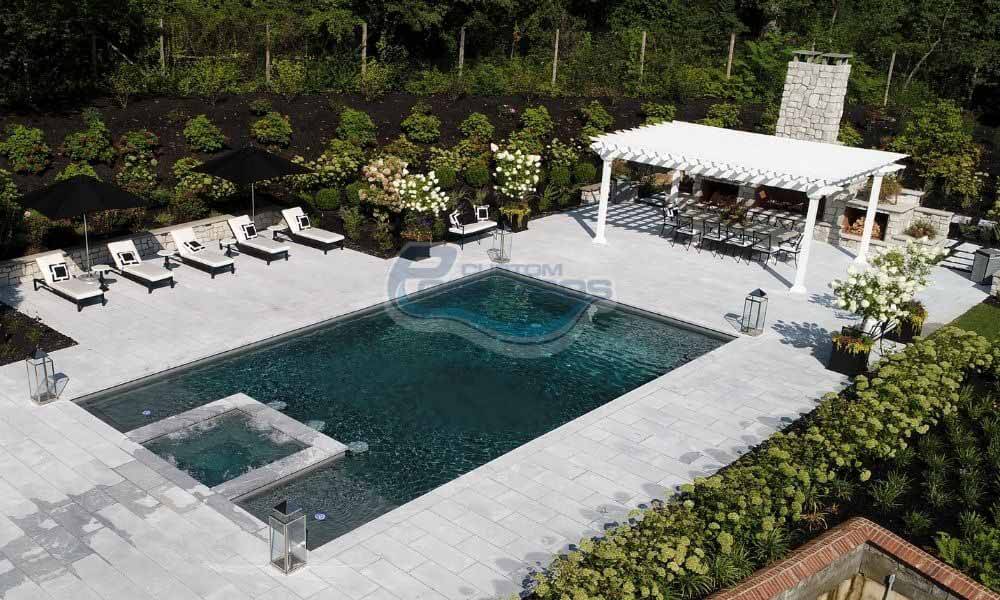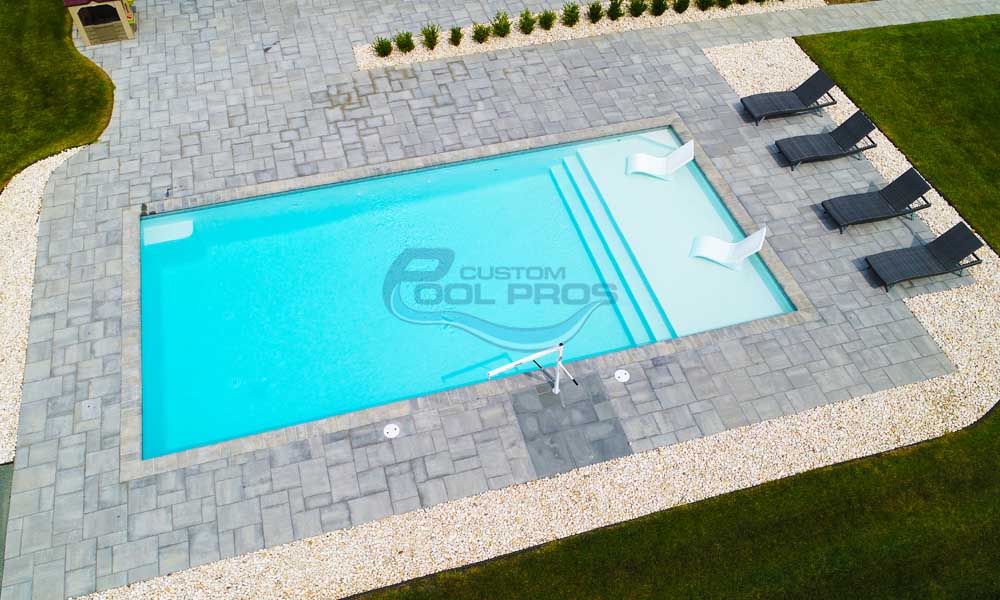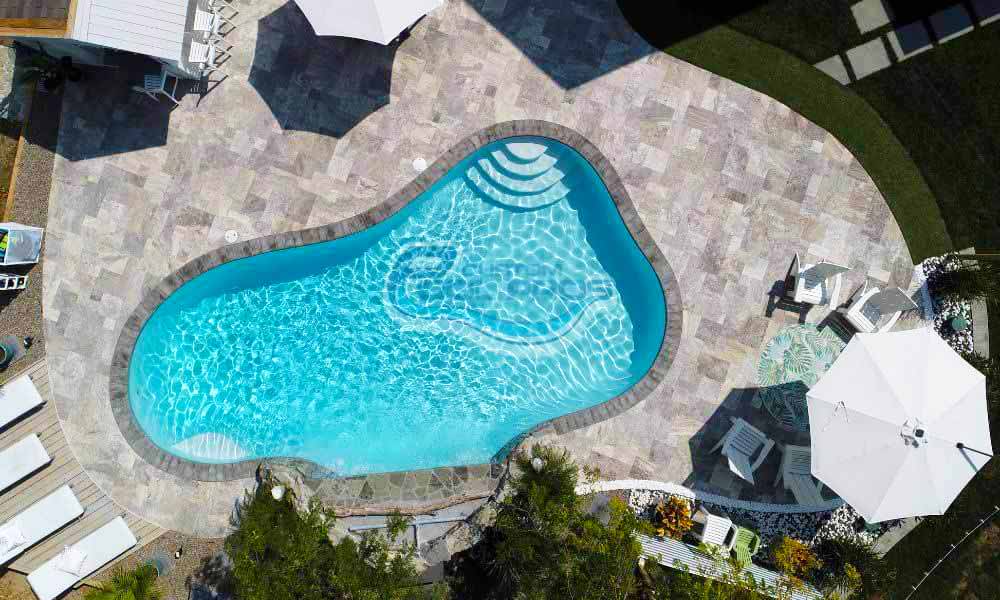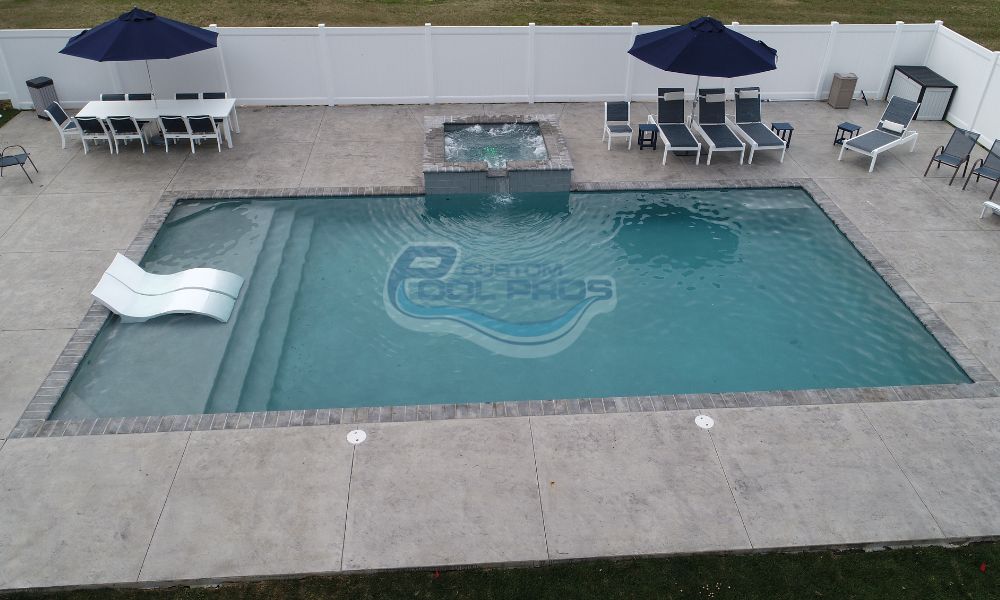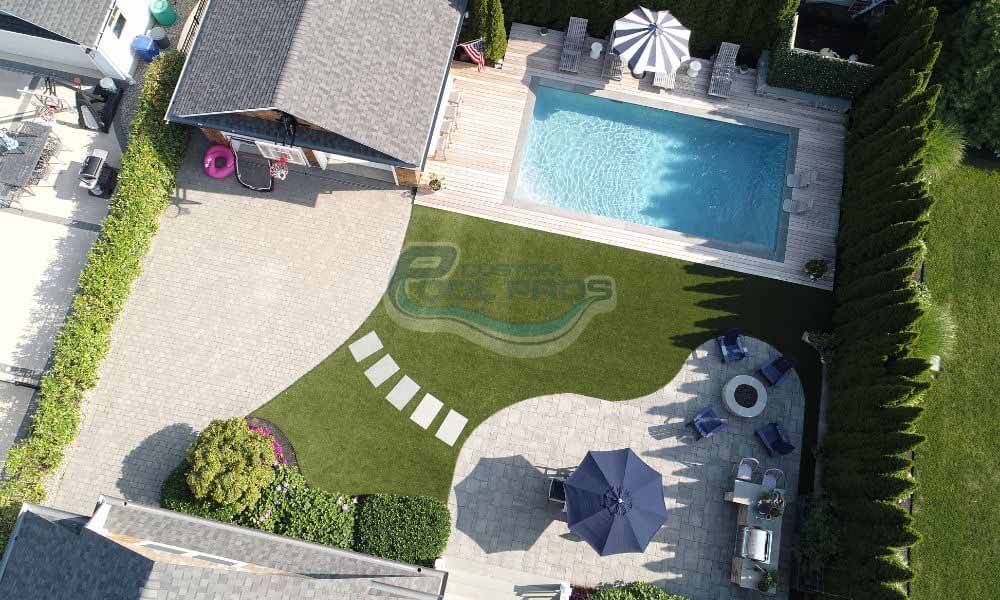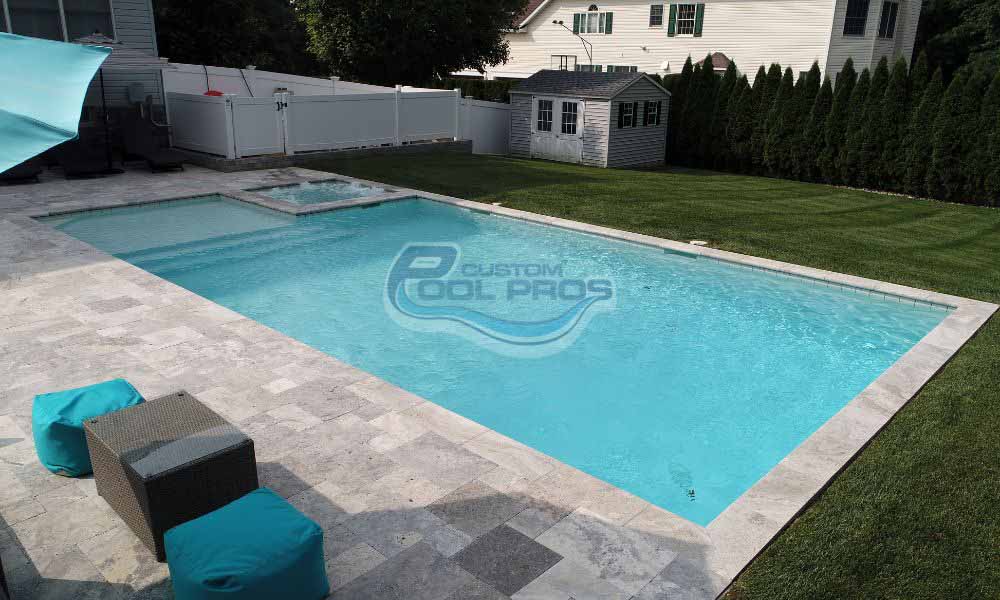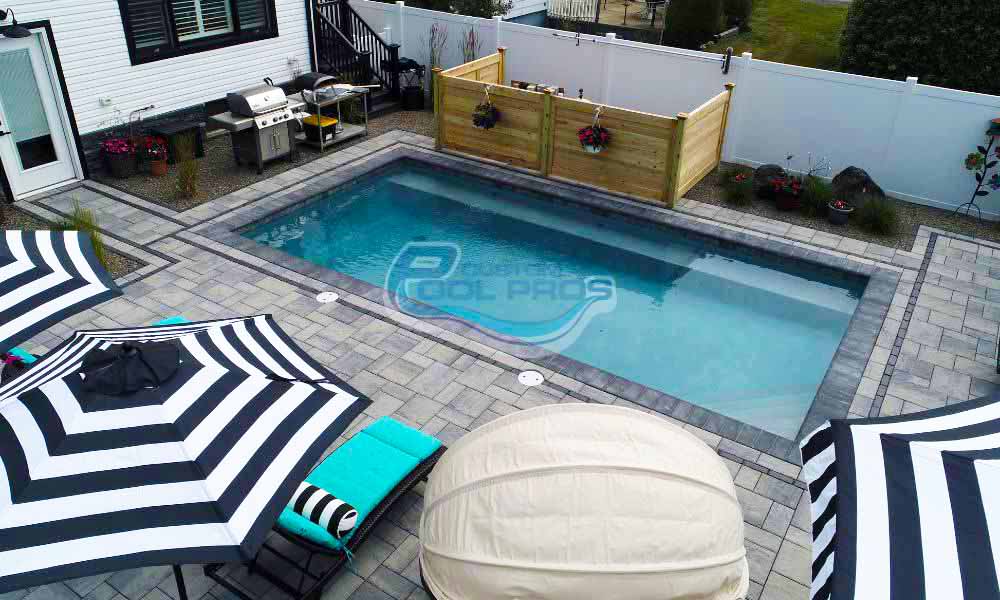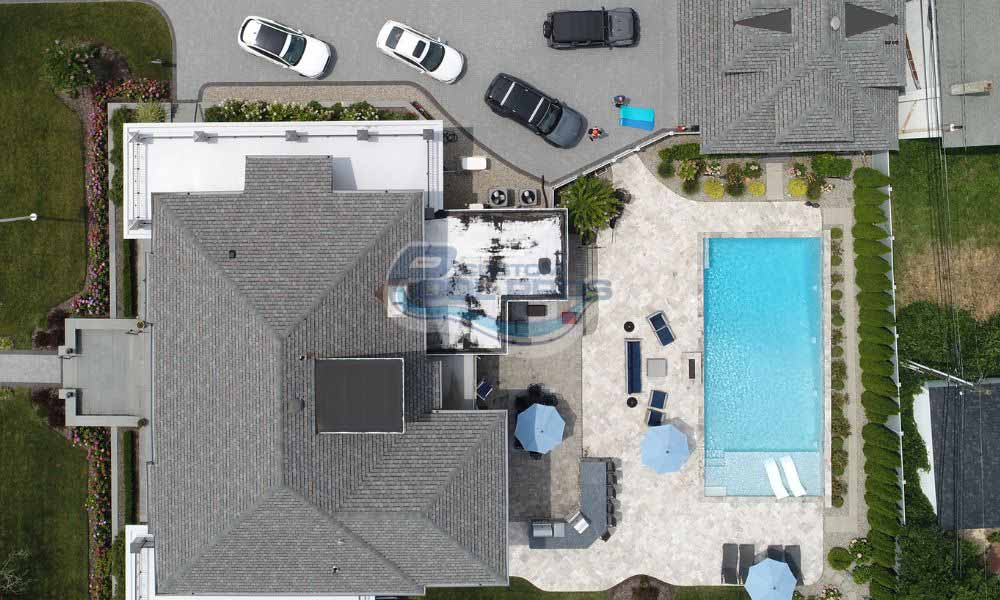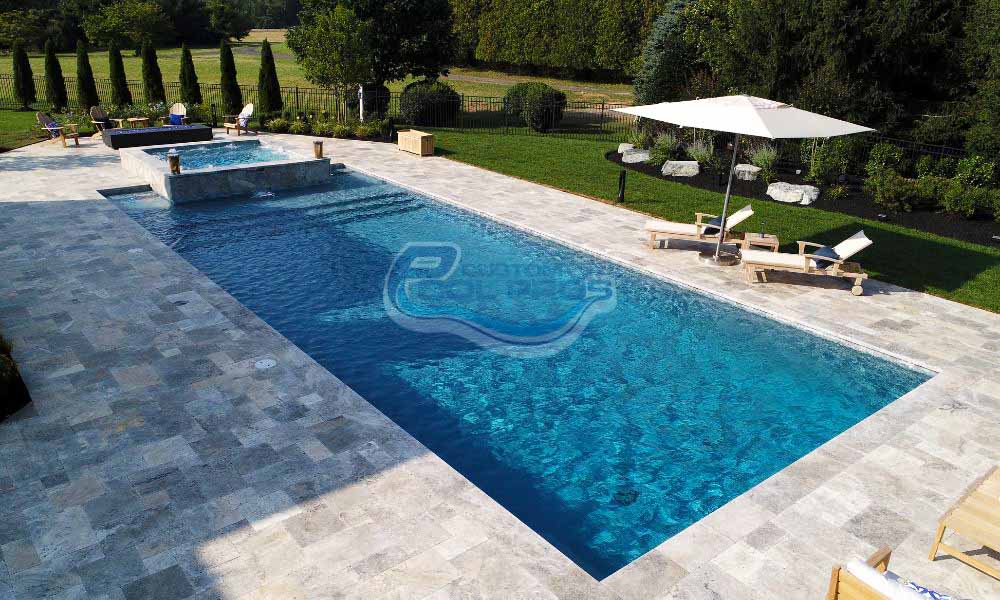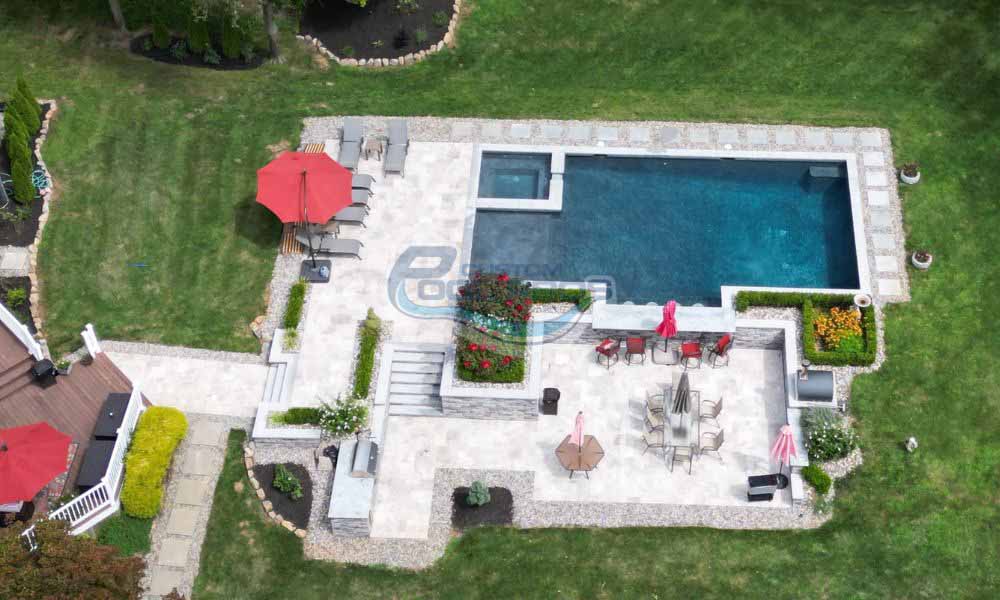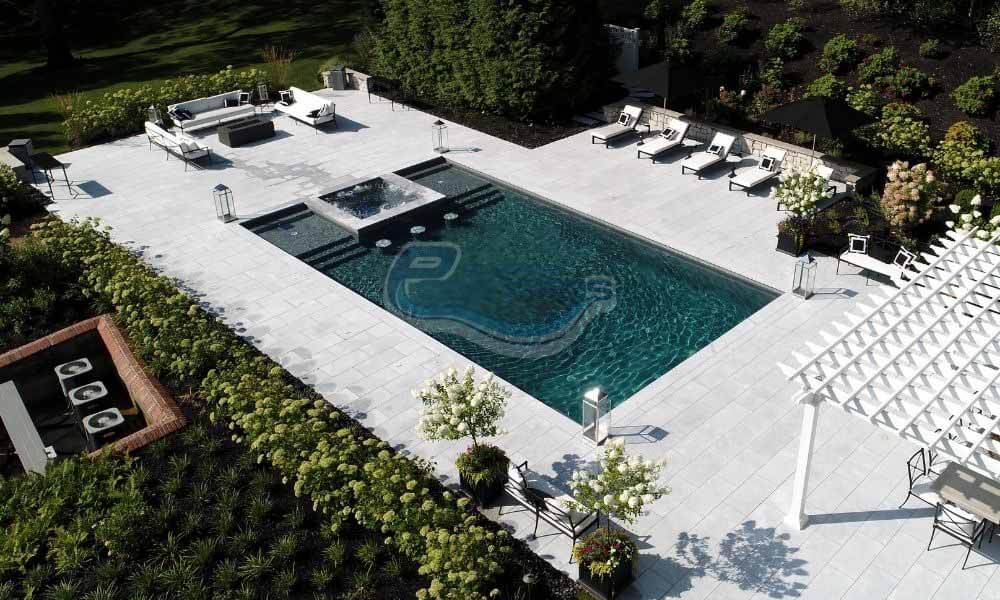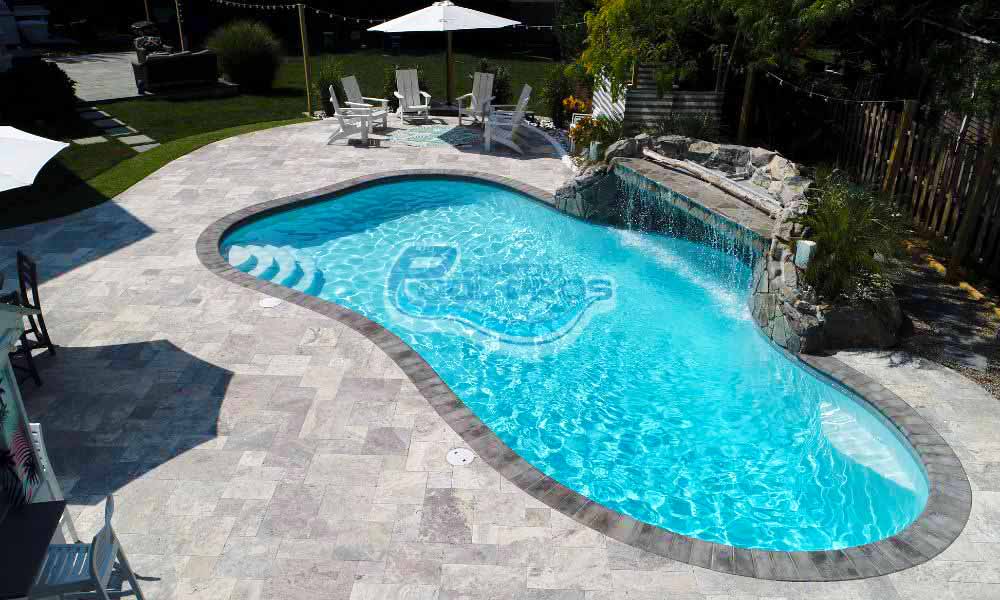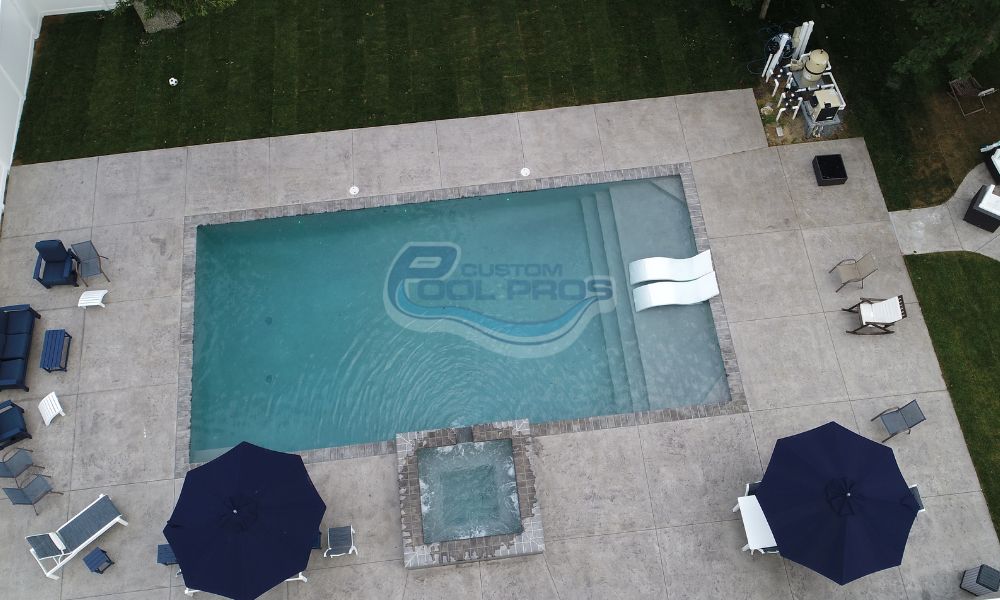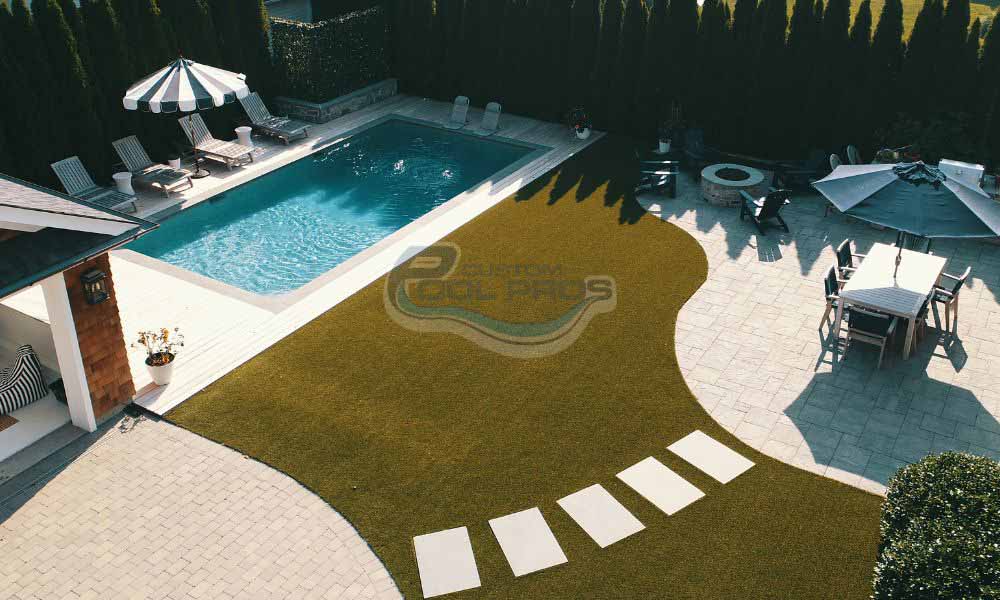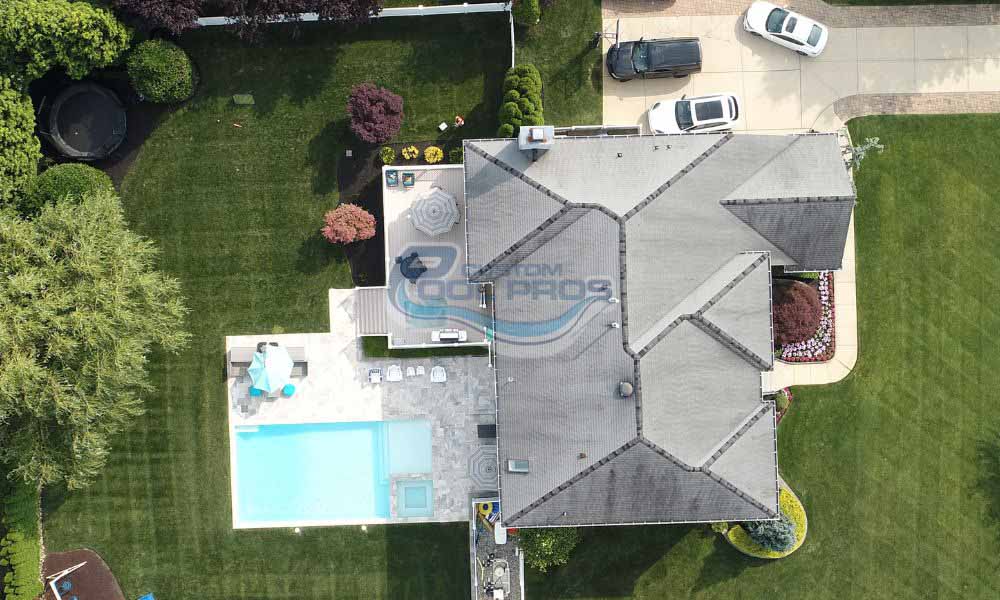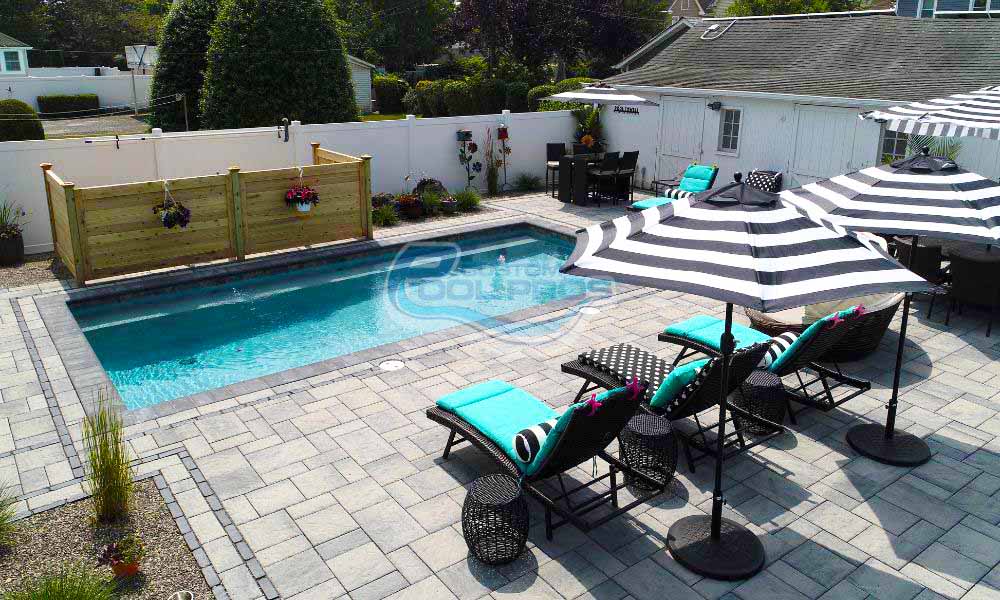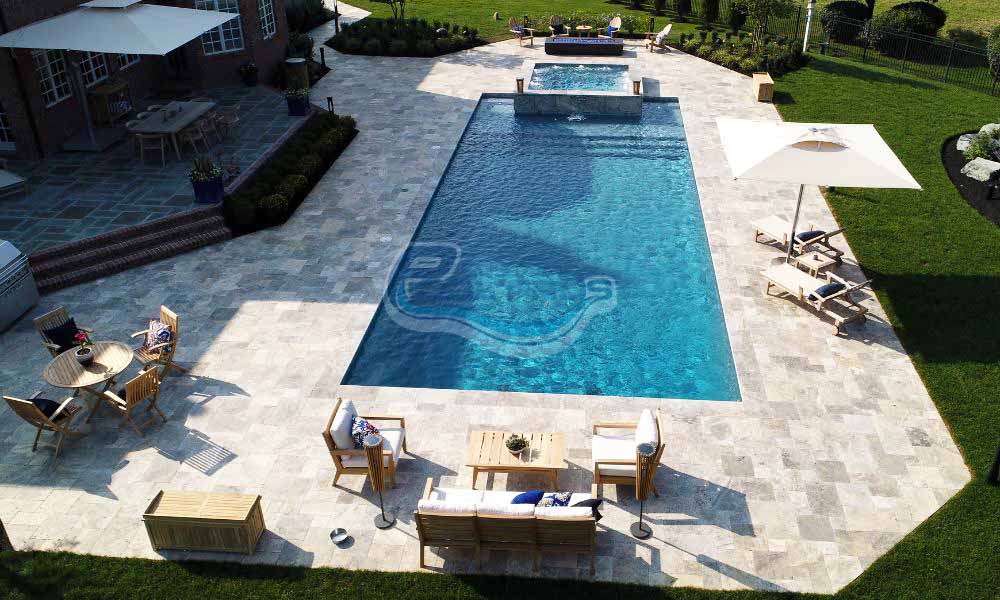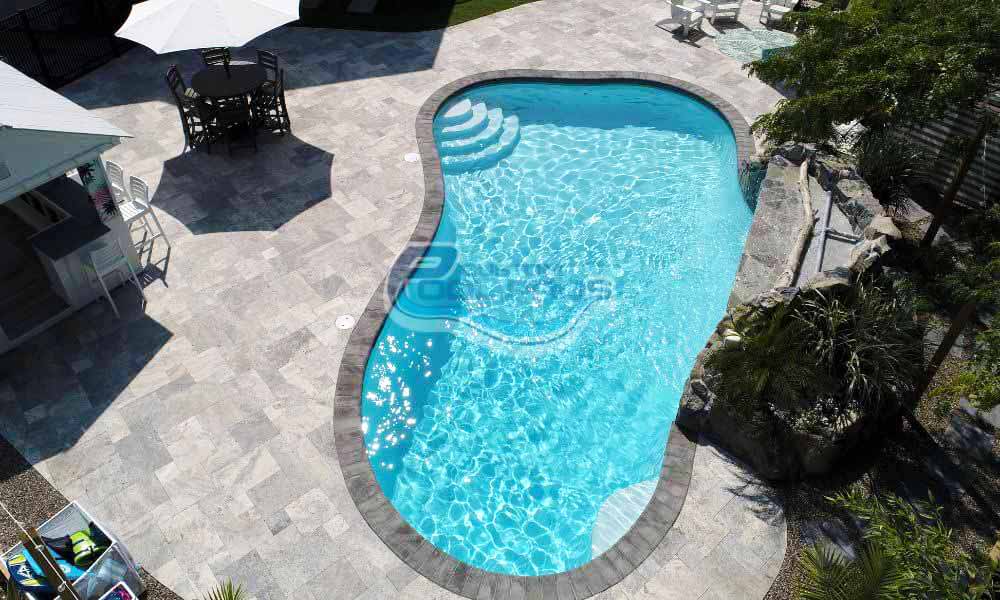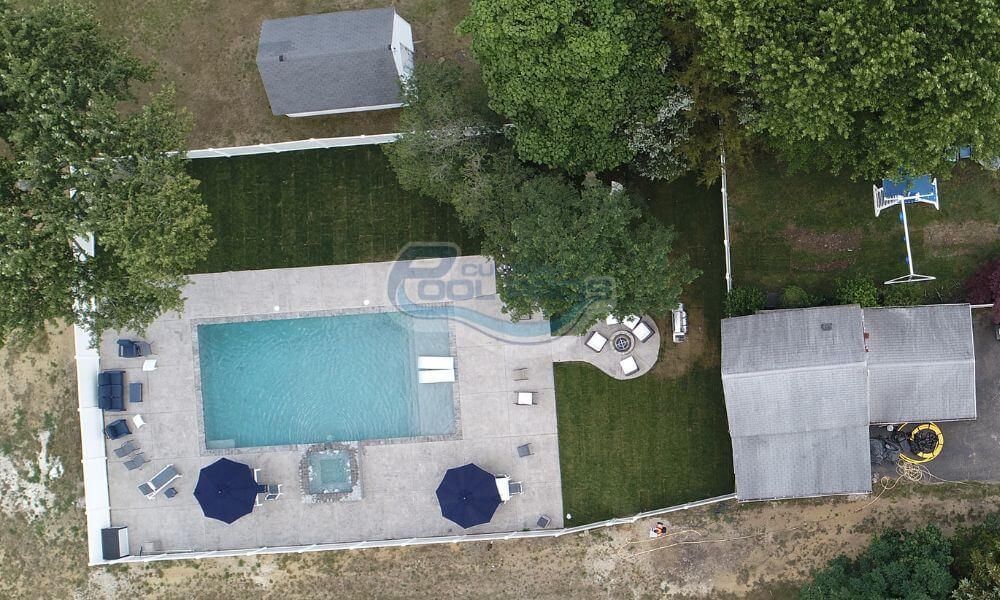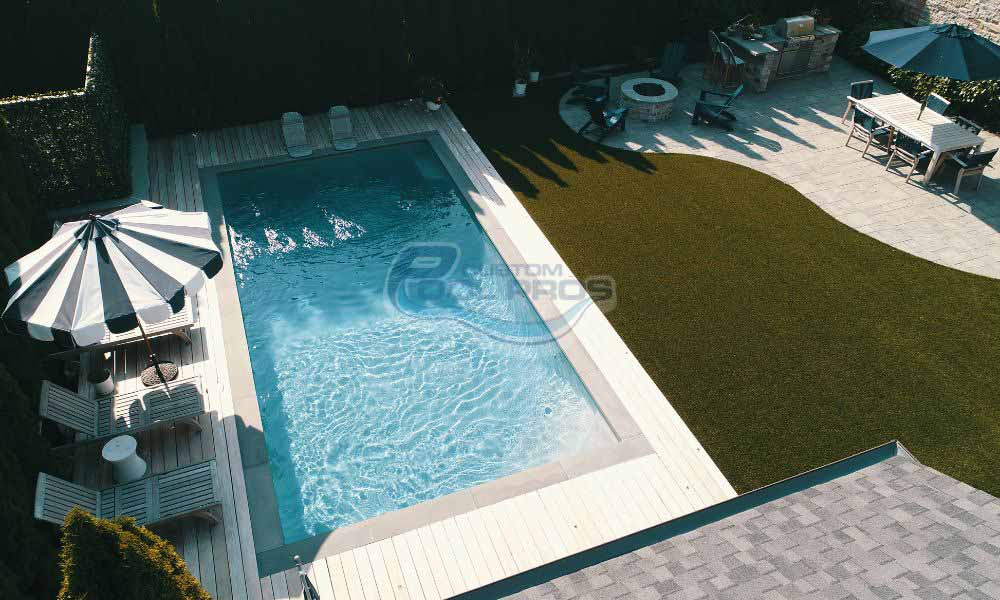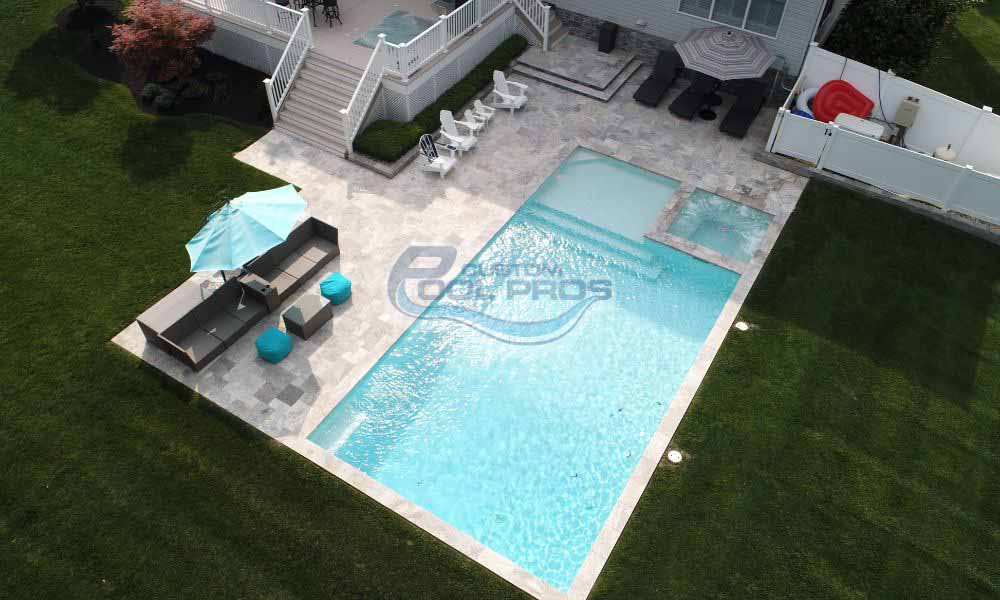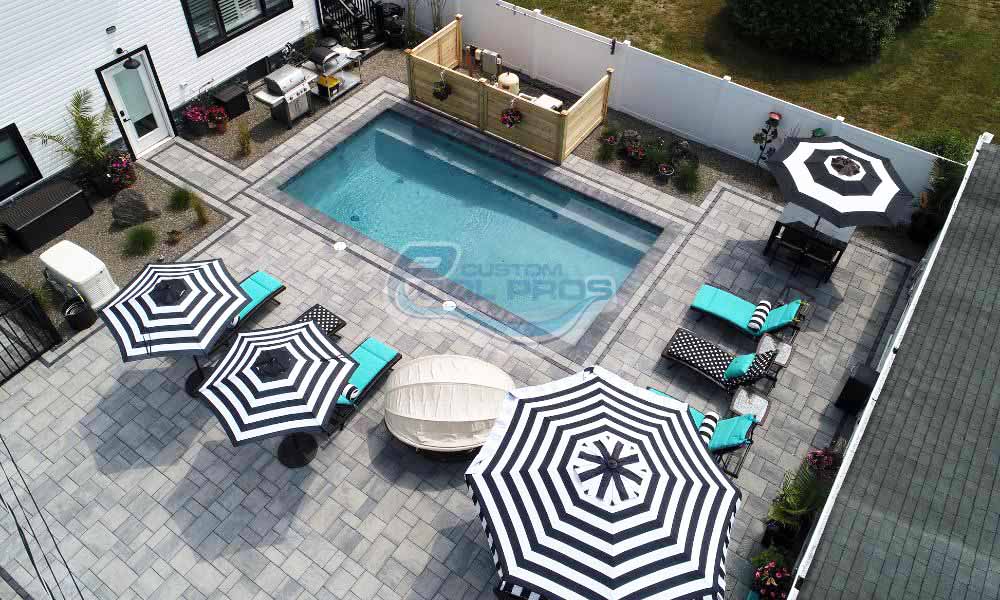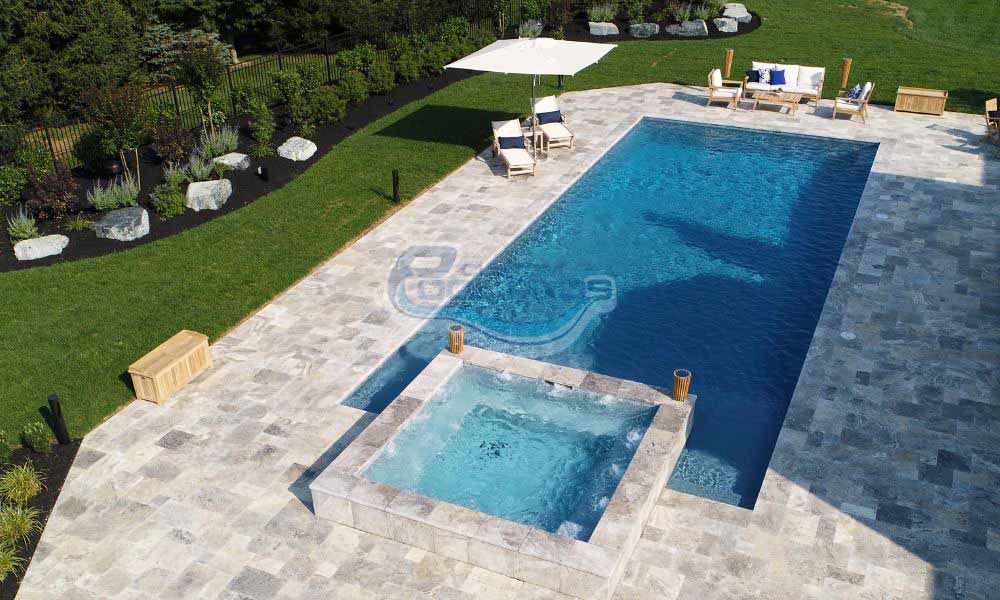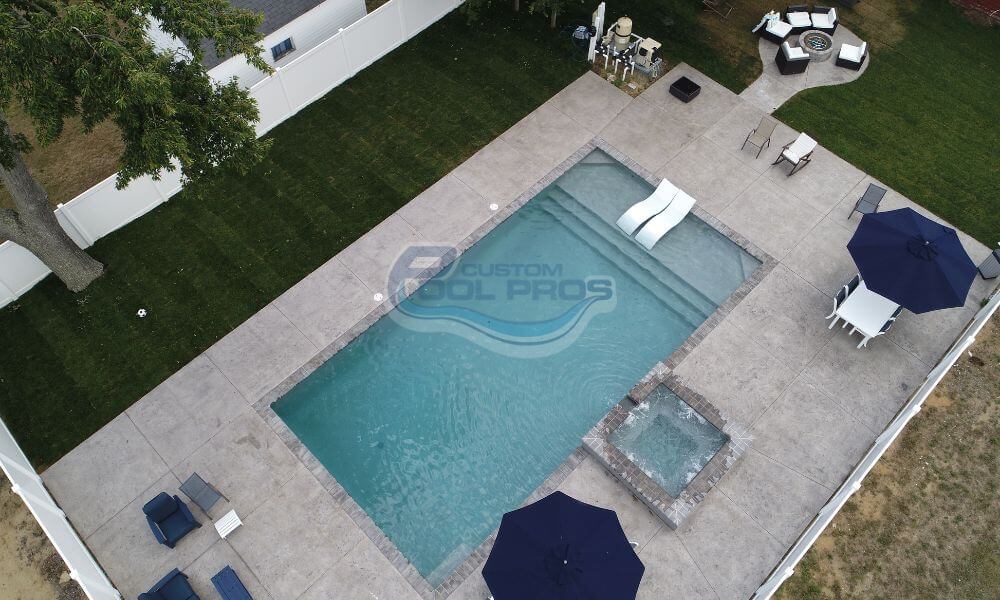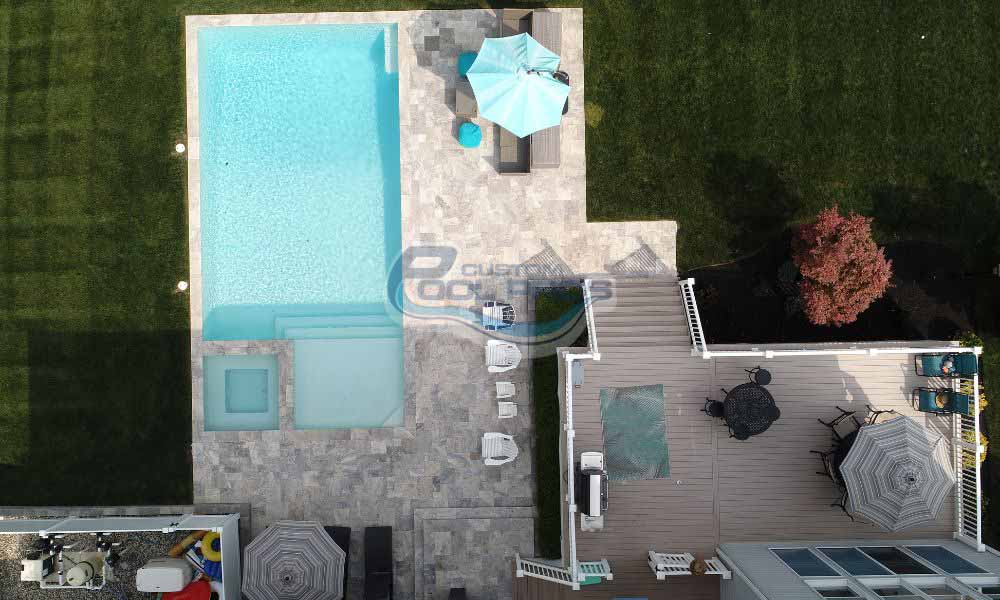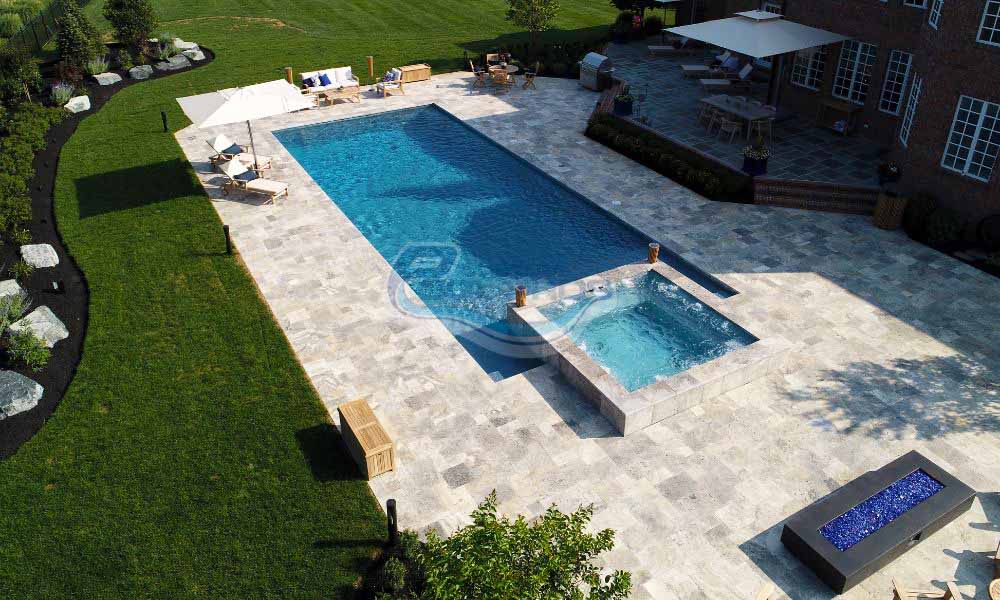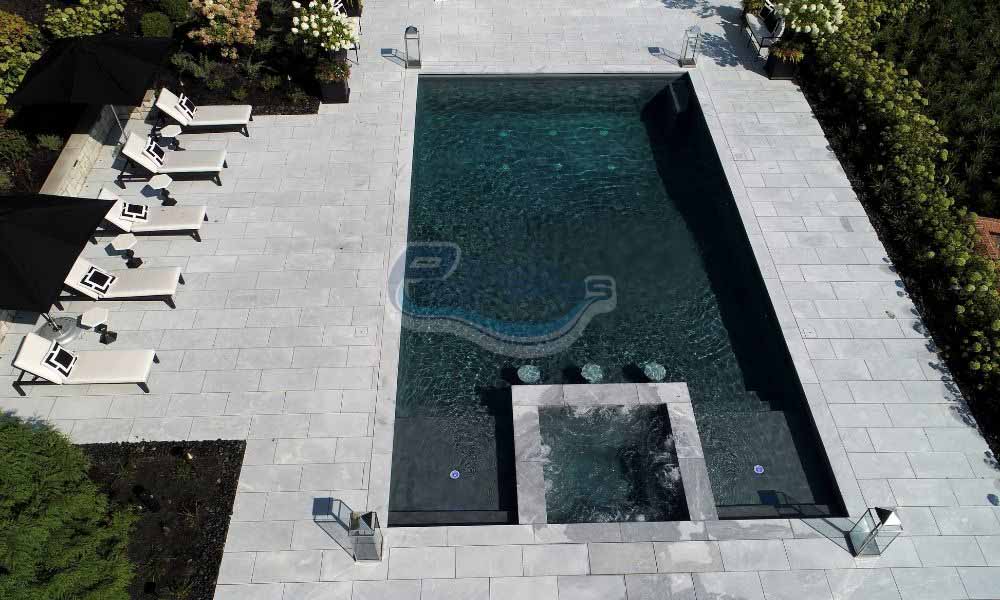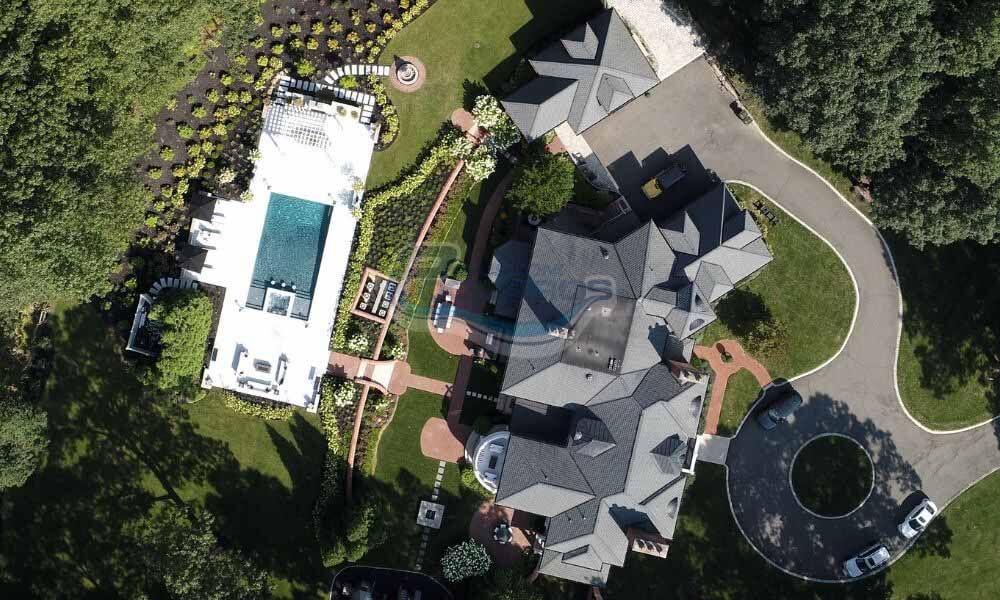So you’re wondering the best swimming pool to add to your backyard. While there is no set answer, you can consult with an experienced pool contractor about the various options. In the meantime, check out this selection of pool types to get an idea of what would work best for your new outdoor oasis. Knowing the traits, benefits, and drawbacks will help you to make an informed decision about such an important investment.
- Inground Swimming Pool
- Above-Ground Pools
- Gunite Swimming Pool
- Concrete Pool
- Backyard Swimming Pool
- Vinyl-Liner Swimming Pool
- Salt Water Pool
- Swim Spas
- Infinity Pools
- Plunge Swimming Pool
- In conclusion
10 Types of Pools That Are Best to Consider Before Breaking Ground
Inground Swimming Pool
Some of the best types of swimming pools include your inground options. In general, though they carry their own sets of pros and cons. One advantage is your range of choices from vinyl to gunite. With that benefit in mind, you’ll also have a ton of versatility depending on the type of pool you choose and the layout of your backyard. Additionally, inground pools last longer, depending on the type of material that’s used in constructing them.
Some downfalls include the level of maintenance, the duration of their construction (again, depending on the type you choose), and the price tag that comes with them.
Above-Ground Pools
Don’t underestimate the aesthetic quality of an above-ground pool. These days, you have so many options with decks and outside finishes. You can place your above-ground pool partially underground to enhance the ease of entry.
Other advantages that come with above-ground pools include lower maintenance compared to their inground counterparts. Also, you have the option of disassembling the pool for the winter or even for the sake of relocation. The downfall to this cost-effective option relates to the value of your property. Above-ground pools don’t do much for prospective home buyers and can even be a turn-off. Plus, they’re not as durable or permanent as inground pools.
Gunite Swimming Pool
For a permanent and flexible option, the best gunite pool proves to be one of the best types of swimming pools. This sturdy option is constructed entirely on-site which gives you plenty of choices of designs, shapes, and features, depending on the size and layout of your yard. Furthermore, if you maintain a gunite pool properly, it should last about 100 years or more. However, maintenance presents a challenge since the pool’s surface is quite porous and prone to algal growth. This also means a higher cost for chemicals since they have to be applied more often than other pools. And speaking of cost, the gunite does carry a large price tag for installation.
Concrete Pool
Another sturdy and customizable option is the concrete pool which (like the gunite) carries a heavy price tag but still carries its worth since it lasts for decades and adds value to your property. One reason relates to its overall aesthetic. A concrete pool can seamlessly pair well with a patio while including many different features such as fountains, fire pits, and in-pool seating. At the same time, you can expect a lot of maintenance at a high cost, similar to the gunite pool. Plus, you’ll have to resurface the pool every 10 to 15 years to prevent deterioration.
Backyard Swimming Pool
As you may know, all of the previously mentioned pools (and the ones mentioned below) have the potential to increase your home’s value–only if your house is one of the few that has a pool. Also, as mentioned, the inground pools tend to attract more potential buyers than the above-ground selections. In the meantime, you also have the initial sticker shock of installation costs and the residual maintenance costs over time.
On a lighter note, the price is worth not having to wait in line at a public or a neighborhood recreational facility, and you would save money in the long term by not having to pay admission or membership fees. Moreover, backyard aquatic spaces provide a relaxing setting for family gatherings for decades to come.
Vinyl-Liner Swimming Pool
One other inground pool that tends to go easier on the wallet is the vinyl liner pool. Counted as one of the best types of swimming pools for its lower price tag, vinyl liner pools also take less time than concrete or gunite pools to install. The maintenance is less time-consuming as well since this material is resistant to algae. The one downside to this option is that the liner has to be replaced every 7 to 15 years because of its susceptibility to tearing.
Salt Water Pool
Likewise, if you don’t want to deal with chemicals, you can opt for a saltwater pool, the best type of swimming pool with low maintenance. The water still contains chlorine, but instead of having to pour it in, the chlorine comes from the breakdown of the salt. Because the chlorine level is not as high, you won’t have issues with skin and eye irritation like other pools. Additionally, you don’t have to do as much regarding maintenance. Nonetheless, a technician who specializes in saltwater pools would have to perform any repairs which means a higher cost.
Swim Spas
This next selection may be the best type of swimming pool for those who seek other means of getting exercise. Also known as a spool, a swim spa is about six to eight wide and 15 feet long but with the whirlpool jets and gentle heating features of a spa. This is an excellent choice if you don’t want a full-size inground pool, but would like a work-out alternative to the treadmill. One great aspect of a swim spa is that it’s large enough to swim in, and the whirlpool action provides additional resistance. The only major downfall is the utility bill.
Infinity Pools
Another smaller, yet aesthetically pleasing pool is the infinity pool which has the appearance of having no edge around it. The optical illusion created by this design resembles the drop-off of a waterfall. The one disadvantage to this type of pool is that it costs 30% more than your average inground pool.
Plunge Swimming Pool
Also in the same category as small, yet beautiful aquatic spaces, is the plunge pool. These are much smaller and more shallow than most swimming pools and serve more of the purpose of relaxation after sitting in a sauna or cooling off on a hot day. Depending on the kinds of mechanisms that you add to the plunge pool, it might double up as a hot tub during the colder weather months due to its small size. The dimensions might be the only disadvantage, but most people who choose a plunge pool over a traditional size are looking for something smaller.
In conclusion
So, looking at all these choices, have you decided on the best type of swimming pool for your backyard? If not, then consulting with an experienced and knowledgeable contractor will help with making your final decision. Ultimately, the best choice will be the design that enhances your outdoor space and one that you and your family would gain the most enjoyment out of.

